0 Comments
A sacred celebration of vows took place within the Seeds of the Word Community on Sunday, March 3, 2024 in St. Mary's Cathedral. The Mass was celebrated by Bishop McGrattan, and concelebrated by Archbishop Alberto Taveira Corrêa (Archbishop of Belém in Brazil, and guaranteeing Bishop of the Seeds of the Word Community) and other priests in the diocese. Sister Mary Sarah, the community's superior, was also present. This celebration witnessed Christopher Kokot, now Brother John Paul, professing his first vows, while Brother Paul Andrew and Sister Clarisse took their temporary vows. In his speech during Mass, Brother John Paul noted in thanksgiving: "I want to thank you, Bishop McGrattan, for your love, your support, your care, and your welcoming of us Brothers here in the diocese of Calgary. Without your paternal care, without your true shepherding, we would not be here, and this celebration would not be taking place." He gave a special thanks to Fr. Cristino, Vicar of Vocations and Young Adults, "And I also must acknowledge a man who works tirelessly and diligently in this diocese, promoting vocations and helping bring people to God: Fr. Cristino. And while I’m not sorry that we the Seeds of the Word have made you cry like a baby this publicly twice in the span of a year, I do thank you for having encouraged my vocation, and encouraged me to follow God’s will in my life, encouraged me to live out the call to the Seeds of the Word Community, so that, with God’s help and grace, I can become the saint that I am meant to be." Brother John Paul shared about the new name he has now taking: "There is a triple mystery: St. John the Evangelist, St. Paul, and obviously, St. John Paul II." "John is the disciple who relies on Jesus, and he goes all the way to the Cross. The passage that finds my vocation comes from his Gospel." "Paul is the missionary, whose name means small. Paul doesn’t count the cost and rejoices in his weakness." "And, John Paul II. The Great. The Pope, the Pole, and for us Polish people, OUR Pope, but he truly is everyone’s Pope. With him come the ecclesial graces. He is the one who suffered and leaned on the cross to sustain him." Brother John Paul summarized what he found beautiful about these three great saints: they each gave their lives wholly and completely to God, albeit in different ways. He admires John's deep intimacy with the Lord, Paul's missionary zeal and sacrifice for the Church, and John Paul II's unwavering dedication to humanity and God, despite old age and illness. The vocation of consecrated men and women have been for our Church from her earliest days a living witness to the truth of the fact God alone is enough and it is ultimately He to whom we must cling now in preparation for an eternity of adoring Him forever." ~Fr. Cristino Bouvette, Vicar of Vocations & Young Adults. Let us give thanks for this beautiful continue to pray for those consecrated to God by the vows of chastity, poverty and obedience that they may seek to live their baptismal promises more intensely and have the grace to persevere in their commitment to the Lord and serve with open hearts and willing spirits. St. Joseph, pray for us. Photos credit: Victor Panlilio and Bandi Szakony, for Seeds of the Word Community
Rita Sweere, a parishioner since 1953 and a dedicated volunteer at Sacred Heart Church in Strathmore, AB, has seen the community through its ups and downs. Arriving from Holland, her family found a home in the parish, and she raised her children within the church's embrace. "One of the things that makes me smile is the young families that come to Mass," she said. "It reminds me of raising my own children." For Rita, a place of worship is not just a building; it's a support system that brings everyone together. Fr. Cristino Bouvette, currently the administrator of the parish, spoke highly of the energy and spirit of the community. He said, "There is an undeniable energy in this community for getting things done." This energy is part and parcel of the small-town, predominantly agricultural community spirit. "The lack of a constantly accessible place to gather and conduct normal parish activities has not slowed down my parishioners' efforts to keep the community spirit alive," he added. Anne and Tony Heuver, who have been parishioners for over 60 years, are another couple that have served as pillars of the parish. They've played a vital role in supporting the parish through their volunteer work and financial contributions. As local business owners, they believe that having a Catholic Church in Strathmore is essential to the community, offering a complete social network for those moving into the area. The Open House event held last week was not just a tour of the construction progress. It was a celebration of community rejuvenation, with over 300 people marking the start of Lent while over 200 others dropped by for a tour, hot chocolate, and cookies. Nettie Hendricks, chair of the parish fundraising committee, noted: "The vastness of the space was very noticeable from the inside. The positioning of the altar, pews, music, chapel, hall, and office areas provided parishioners with a visual representation of what the completed church will look like." For some parishioners who have been waiting for 15 years to celebrate in a church again, walking through the building was an emotional journey. With the community's support and the committee's unwavering commitment, the renovated church promises to be more than just a building; it will stand as a testament to faith, resilience, and the power of unity. From initial demolition work to fundraising efforts, the project has seen an outpouring of support from parishioners who have contributed thousands of hours to make this vision a reality. "Our pre-construction phase involved the dedication of volunteer parishioners who demolished the interior of the old IGA so that the new work could be done," shares Nettie. "The Building Committee has been headed up by a volunteer Engineer and a Spec Writer/Draftsperson that have committed thousands of hours over the past several years and are still involved today as we near completion." It's not just the physical labour that parishioners have contributed. The Pledge Drive and Fundraising Committees began their work in 2017, and through their efforts, over $3 million has been collected. Currently, the parish is in the process of kicking off its 7th Annual Golf Tournament and running a 50/50 fundraiser, both aimed at bridging the $2.2 million capital shortfall needed to meet the budget. Looking back on the journey so far, Nettie emphasizes the importance of communication in all aspects of the project. Keeping the parishioners engaged and updated about the progress has been crucial. But it hasn't always been easy. "There were times over the past 15-year journey that it was difficult to remain upbeat," admits Nettie. However, the dedication of volunteers, combined with prayer and hope, kept the project moving forward. But the renovation has done more than just transform a building; it has brought the parish community closer together. "Committee work has brought members together, and fundraising events have brought forward parishioners who might not otherwise have been engaged in volunteer work," shares Nettie. She also notes a significant increase in Mass attendance and more children receiving Sacraments than ever before. Fr. Cristino expressed his amazement at the turnout for their last community building event on Shrove Tuesday last month, which was attended by over 300 people. "The Knights of Columbus provided delicious homecooked pancakes and sausages," he said. "We had piñatas for the kids, and the high school gymnasium was filled with a diverse crowd. Many were guests of our active churchgoers who, for a variety of reasons, may not regularly attend church or have never done so." He added, "The capacity to bring that group of people together in the spirit of Renewal in our parish was a promising sign of what is to come when we move into our new home." The story of Sacred Heart Church is not merely about bricks and mortar, but about a community coming together, united in transformation of their worship space. It's a story of renewal, of hope, and of a parish reborn. Photos credit: Lynn Dumont, Sacred Heart Parish, Strathmore To support Sacred Heart Church's renovation project, visit the fundraising activities below:
Stepping into St. Gerard's in Calgary alongside Bishop McGrattan for a Parish Pastoral Visit last month, Deacon Dale Laing was filled with anticipation. The pastoral visit, an integral part of the Bishop's role, provided Deacon Laing an intimate view of a community united by faith and the joy of service. A Parish Pastoral Visit (PPV) is a three-day journey of discovery and connection where the Bishop gets up to date with the pastoral needs of the parish and maintains close contact with his people. "Our Bishop asks that a permanent deacon assists him on these visits," Deacon Laing explains. This includes meeting with the Pastor, those who assist him, visiting schools and other Catholic institutions, meeting with ministry leaders, and celebrating Masses. His duties span from reviewing the weekend's structure and flow with the parish staff to assisting in creating various reports highlighting the parish's vitality. For Deacon Laing, this was his fifth PPV accompanying the Bishop, and each visit enriches his experience of seeing how the people of God respond to the call of the Holy Spirit. "From the moment I contacted St. Gerard’s parish, there was a feeling of being welcomed!" he shares enthusiastically. "They are alive to the workings of the Holy Spirit within their congregation, and many see this parish as their second home." Over three days, Bishop McGrattan met with staff and members of St. Gerard's Parish, as well as the students and staff at St. Stephen's Catholic School. Together with Deacon Dale, the Bishop met with 24 ministry groups in the parish during his pastoral visit. Deacon Laing was deeply moved by the joy and pride the parishioners took in their service. The stories were as diverse as the parishioners themselves. Some had served for only a few months, while others had dedicated over 50 years. "Everyone’s passion and dedication to serve their neighbour is truly amazing to behold," he marvels. "We heard consistently from all the ministries that the people were proud of their parish and all the opportunities they had to share their inner joy of living out the Gospel with each other," Deacon Laing recalls. "I experienced a people of great determination for carrying out the work of God in their little corner of the vineyard. There were people; who were open to meet the new challenges which our current age presents; choir members and directors who are passionate to share their talents with others; parents who were excited to bring their young children to Mass; people open to the various suggestions the Bishop offered to them; young people who feel they are treasured and treated as equals; excitement surrounding the Parish Renewal initiatives." Before leaving on Sunday afternoon, Deacon Laing took a quiet moment in the Sanctuary to reflect on the weekend. "I turned around slowly to remind myself of all that I have seen and heard, and the stories people have shared with me about what God has done for them and continues to do throughout their lives," he shares. In the end, a PPV isn't just about the Bishop's visit. It's a celebration of the community, its faith, and the stories that bind it together. And as Deacon Laing discovered at St. Gerard's, it's also a testament to the power of the Holy Spirit working through a vibrant and welcoming congregation. Photos courtesy of St. Gerard's Parish, Calgary.
Canadian churches and Christian leaders call for peace as war in Ukraine enters its third year2/23/2024 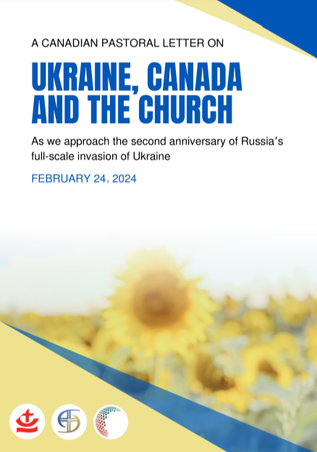 February 24 marks the second anniversary of Russia's invasion of Ukraine. National representatives of Orthodox, Catholic, and Protestant communities, in collaboration with the World Evangelical Alliance’s Peace and Reconciliation Network, the Evangelical Fellowship of Canada, and the Canadian Council of Churches, have signed this Pastoral Letter on Ukraine, Canada, and the Church, inviting all to join in praying for peace. The Letter can be accessed online: In English | In French | In Ukrainian “Without in any way minimizing or ignoring the suffering and sorrow caused by war and violence in other areas of the world, we stand together in inviting Christians and all people of goodwill to prayerfully consider how we are all called, and might contribute to, the achievement of peace in and for Ukraine.” – excerpt from the Pastoral Letter. Endorsed by 45 leaders, the Letter identifies six meaningful ways by which to foster peace:
The President of the Canadian Conference of Catholic Bishops, the Most Rev. William T. McGrattan, Bishop of Calgary, supported by the CCCB’s Executive Committee, is one of the aforementioned signatories to the Letter, now available in English, French, and Ukrainian You are invited to share these links to pray and work together for peace. === For Media Inquiries, contact Maribel Mayorga Director of Communications Canadian Conference of Catholic Bishops (CCCB) Email: [email protected] Telephone: 613-241-9461, ext. 225 On February 14th, a day that carries the dual significance of both Lent and Valentine's Day, we are reminded of these words from the gospel: “And whenever you fast, do not look dismal, like the hypocrites, for they disfigure their faces so as to show others that they are fasting. Truly I tell you, they have received their reward. But when you fast, put oil on your head and wash your face, so that your fasting may be seen not by others but by your Father who is in secret; and your Father who sees in secret will reward you.” ~Matt 6:16. This scripture passage encourages us to embrace our faith with joy as Catholics. Recognizing that men might occasionally forget about the Valentine's Day, God Squad Canada decided to organize an event that would assist them in strengthening their relationships. We planned a cabaret-style dinner on February 12th, aptly named 'Savor The Stage,' at the popular +39 Pizza and Pasta Bar in Calgary. This novel idea, conceived in collaboration with my son, Patrick, was a first-of-its-kind event. Patrick arranged the evening's entertainment, bringing together six professional singers and pianist Alex Szojka for a memorable performance. The response was overwhelming, with 75 people registering to attend, resulting in a packed restaurant buzzing with anticipation and excitement. We didn’t know exactly what to expect as it was a new idea which I had come up with my son, Patrick. Patrick took care of the entertainment for the evening with 6 professional singers with Alex Szojka playing piano. We had 75 people register to attend, which made for a very full restaurant. The evening started with old and new friends greeting each other, and mingling while people found a seat and got a drink. The program opened with prayer and after that, we were thoroughly entertained. It is hard to describe just how good the program was with these young singers pouring out their talent. When it was time for food service, the pasta and pizzas started hitting the tables. You could hear the constant ring of excitement as the conversations continued, enjoying the company and fellowship. A second set of music began that continued to get the crowd more engaged with loud cheers from many after every song. The guests were then treated to a wonderful tiramisu and dessert pizza as the vibrant conversations continued to resonate throughout the restaurant. The final set received a thunderous standing ovation. We were extremely pleased with what had taken place. What I didn’t expect was the positive feedback from the staff and performers. The staff talked about the joy they witnessed from the people there. The bartender commented how normally he has to chase people to pay their tabs, but this time, the patrons were chasing him to pay! The performers, too, spoke of never performing before a more attentive crowd. One said, “Thank you for allowing us to be part of the family.” Then, the staff mentioned to our team how happy they were that they had decided to come on their day off to be part of the evening. Once home, my wife, Michele, and I reflected on the event. We realized that the evening had become more than a social gathering. It had become an evening of evangelization. The staff and performers had witnessed people of faith coming together and showing the joy we share as committed Catholic Christians. As we enter this Lenten season, I encourage you to embrace your fast with joy. This can serve as a beacon of hope for those seeking the promise of Easter.
After a successful launch of Alpha at the parish as part of our community’s response to the synodal process, it was a natural progression to bring Alpha Youth to the students at St. Joseph’s Collegiate (SJC). SJC is a grade 9-12 Catholic school in Brooks, with about 460 students. We cater to a diverse community, with a wide range of cultural and language backgrounds, as well as varying practices of faith – most students non-practicing, many nominally and some practicing Catholics, some ethnic orthodox denominations, as well as a growing number from other Christian church communities. Just before the start of the school year, we committed to running the Alpha Youth series in our school during our 42 minute lunch break. Four staff were recruited to facilitate groups, the supervision schedule was adjusted to free us all up at the same time, and we started online training and promoting. The Alpha Canada website has training videos, print resources, digital and print media for promotion, suggested schedules and to-do lists based on the timeline of one’s Alpha session, with access to mentorship and online support. It is all high quality, and user-friendly – even the copyright guidelines. Alpha has a simple format for success: share some food, watch a video, discuss.
If it is true that if you feed them, they will come, it is even truer with teenagers. When we first started promoting our series at the school, the initial uptake was from a few practicing Christians looking for a place to gather with other faithful students – many of them already familiar with Alpha from other home churches – but as we started to get community commitments to provide food, and let the students know lunch was included, more students showed up. Overall, we have had a consistent 24 students who have made most if not all of the sessions, and probably had another dozen or so who checked it out a couple of times at the start. We have had three consistent small groups and the students are really receptive to the topics and getting into good discussion with their peers. Feedback consistently sounds like: “I love my group, so my favourite part is discussing ideas, expressing my thoughts, and listening to other’s opinions.” Or, my favourite part is “the connection and community.” Reassuringly we even gotten, “the food is great, but I also enjoy hearing other people’s perspective on the questions.” Almost half of the students are in one group, and do all of the discussion in Spanish; we are so blessed to have diverse staff as well as students so that we can facilitate this! (The first version of the Alpha Youth series is available dubbed in Spanish and other languages, so we will be looking at using that for an all-Spanish session in semester II.) We are nearing the end of our first session, and have just had our retreat day. It ended up working best to run after school on a Friday, to save the need for rides. With our short lunch hours and the gradual introduction to prayer, it was our first opportunity to really dig into prayer with each other. It was such a blessing to hear students praying for each other and to have the opportunity to pray within small groups. We had worship with great participation, led by one of our staff, and we were so blessed by members of our parish with meals and snacks for the day. The spring session at the church had such a positive impact on participants, that they have been very quick to support our youth session at the school – mostly by helping with food! Overall, just like the spring session at the church, our first Alpha Youth session has been awesome! The smiles on student faces as they come in for lunch, and join with their groups, are such a reassurance that Alpha has been an appreciated opportunity our school. Furthermore, the participating students are keen to get involved in hosting and helping with the next session, and are starting to prayerfully consider who they will invite to the next round. One thing emphasized in the planning is to make sure participants have a way to continue involvement after Alpha, so we will run the next session with them as the hosts of the small groups. They are excited to keep the conversations going to continue to explore and deepen their own faith, and to share it with their peers. God is Good! Submitted by Natalie Sturch, teacher at St. Joseph's Collegiate, Brooks,
Photo credit: St. Joseph's Collegiate. Poster: Alpha Canada. “Our Lord moves amidst the pots and pans,” St. Teresa of Avila once said, and indeed, I often find God in a busy kitchen. I love cooking, which was once described to me as the art of redistributing water, which is simply a clever way of saying chefs are masters of matter. Western culture is often derided as being materialistic, but the philosopher Alan Watts disagrees. In a passage contemplating proper Christian materialism, he writes:
St. Augustine noted that things are to be used, but only God is to be enjoyed. We enjoy the goodness of God’s creation in the bounty on our table, but especially in those at our table. As the Catholic Bishops of Japan wrote in Reverence for Life, “To sense each creature singing the hymn of its existence is to live joyfully in God’s love and hope.” At the best feasts, everything and everyone is singing joyfully in God’s love. One pillar of the Diocese of Calgary’s Pastoral Renewal is to Strengthen Family Life, and eating together as a family is a powerful bond. Harvard University’s Graduate School of Education says only 30% of families manage to eat together on a regular basis, but those that do experience lower rates of depression, anxiety, substance abuse, eating disorders, and higher rates of resilience and self esteem. The Father has always been calling us to a meal because this is one of the ways he keeps us free from all anxiety. A family dinner can be a minor mirror of the Mass. My most joyful cooking comes when I remember to recite my favourite lines from the Eucharistic prayer: Fruit of the earth and the work of human hands… Fruit of the vine and the work of human hands… A cosmic vertigo occasionally overwhelms me at the simple act of looking down at a carrot in my left hand and a knife in my right. Everything – the sun, rain, earth, fire, time, and human craftsmanship – everything is in my hands, and as I chop, I often recollect a passage from Martin Luther King Jr.’s A Christmas Sermon on Peace: You go to the bathroom and reach for the sponge, and that’s handed to you from a Pacific Islander. You reach for a bar of soap, and that’s given to you by the hands of Frenchman. You drink your coffee that is poured in your cup by a South American, or if you prefer cocoa, by a West African. Have you ever stopped to think that before you finish eating breakfast, you’ve depended on more than half the world?"
All of which likely explains why my favourite dishes are reductions, when the steam goes up fragrant from the pot like incense. In risotto, for example, at a crucial stage you must burn off the alcohol from a dry white wine to concentrate its sweetness. In pisto manchego, the water from the tomatoes, peppers, and squash slowly bubbles off until there’s nothing left but the flavour of God. And in this holy season of Lent, it is important to keep in mind that this sacred materialism allows us to fast in a meaningful way. When we temporarily go without God’s bounty, we turn away from the idols of comfort and convenience to focus our attention on the Father’s loving provision. When families reclaim this communion at the domestic church’s dinner table, they will once again find God in the midst of pots and pans.
After a brief hiatus caused by the pandemic, Our Lady of Perpetual Help Parish (OLPH) in Calgary sprang back into action, organizing their much-anticipated annual Chinese New Year celebration. The beginning of the Year of the Dragon, which fell on February 10, was celebrated by the parish at the Chinese Cultural Centre Saturday evening,February 17, 2024. The event saw an overwhelming response with parishioners, families, and invited guests of all ages attending in large numbers. Dressed in traditional outfits, Chinese parishioners added a joyful vibrancy to the gathering. Planning such a large-scale banquet is no mean feat. It took a year of meticulous planning by Carol Lam, her team at the Catholic Family Fellowship, and the involvement of parish volunteers to put together this magnificent feast. The event, which the parishioners eagerly look forward to each year, was a sell-out with 49 tables, accommodating nearly 500 people. David Chan, Parish Pastoral Council Chair of OLPH, likened the team's preparations to "having another full-time job!" However, their hard work paid off in abundance. The well-planned program was a hit among the parishioners and guests. The seamless coordination of entertainment and the 9-course food service ensured that everyone was engaged throughout the evening. The evening kicked off with an elaborate dragon dance. The rhythmic beating of the drums and energetic choreographed movements set the stage for the welcome message from Fr. Joseph Nguyen and an opening prayer by Bishop McGrattan. Parish groups of various ages and skills showcased their talents while the dinner carried on. The community's special care for its youth and young children was evident. Their active participation, from leading the singing to performing the lion dance, a basketball dragon slam dunk, and guzheng instrument performances, was a testament to the parish's commitment to nurturing their young parishioners. Their super charming 6-year-old main usher, Quintinus, was also kept busy all evening, spreading joy to all who saw him! The adults and senior groups were not to be left out of the performance lineups. Their choir singing and Tai Chi performance, complete with a sword dance, added to the evening's festivities. Alongside the ministries in the parishes, they also organized the highly anticipated raffle draw. An array of prizes was raffled off, sparking excitement among all the guests. Fr. James Hagel, one of the evening’s raffle winners, was particularly thrilled with his win of a super sharp meat slicer. However, the surprise act was the magic show by Fr. Joseph Nguyen. He performed a series of magic tricks with Bishop McGrattan as his willing volunteer. From a levitating table to card games and a box-burning trick, Fr. Joseph surely added a magical touch to the evening. His performance especially captivated the attention of the children gathered near the stage, who were beyond excited to watch him in action. "I've been doing it since I was young," he shared when asked about his magical tricks. At the end of the event, David Chan thanked all the hardworking team members and all the guests for their attendance. It was truly a delightful evening for the parish community, giving thanks for each other, and highlighting the importance of gratitude and mutual respect. As we continue to recognize the richness and beauty that each of our cultural communities offer, may we always be grateful for how wonderfully we all have been made by God, and for His continued blessings. Photos: Office of Communications, OLPH Parish
What an exciting time for us in the Diocese! Over 44 parishes sent their Parish Renewal Team members to an orientation which took place simultaneously on Saturday, Feb. 10, 2024, at St. Luke's and St. Albert the Great's in Calgary, St. Martha's in Lethbridge and Holy Family Parish at Medicine Hat. Close to 300 parish renewal team members joined in the orientation day, which was filled with lively conversation and learning opportunities. The sight of so many new faces, all eager to start their journey of renewal on behalf of their parishes, was truly uplifting. For many attendees, this was their inaugural experience with Parish Renewal. Over at St. Martha's in Lethbridge, it was a warm and welcoming atmosphere despite the cold weather. "It was a cold Saturday - but 43 people from 9 different parishes gathered at St. Martha in Lethbridge to begin a four-year diocesan-wide renewal program," shared Fr. Tim Boyle, a member of the diocesan Renewal Leadership Team (RLT). The staff and volunteers at all sites had prepared tables with signs welcoming each parish as well as an overflowing hospitality table. Parishioners were able to enjoy delicious treats and beverages as they caught up with old friends and welcomed newcomers from across the diocese. Organizing the Zoom conference to facilitate discussions and prayers across four sites proved more challenging than anticipated. The Renewal Leadership teams definitely had their fair share of anxiety. However, when the day of the event arrived, everything ran smoothly! "The technology was amazing and left us all with a feeling of being connected to the whole diocese without any of us having to drive for hours," shares Fr. Tim. The orientation included a morning prayer, a viewing of the Pastoral Renewal launch video, followed by a session with Bishop McGrattan on the Diocese's Parish Renewal process. "The presentation from Bishop McGrattan encouraged the participants as they learned more about the process and vision of the diocese’s renewal," shares Bonnie Annicchiarico, RLT chair who attended the orientation from Holy Family Parish, Medicine Hat. Then we heard the testimonies of three fellow parishioners who shared their personal experiences. Sarah Stamp from Vauxhall, AB spearheaded the testimonies, focusing on the primary goal of Pastoral Renewal: Strengthening Family Life. Lorand Szojka from St. Peter's Parish in Calgary spoke about Forming Missionary Disciples in Christ. Lastly, Liisa Honish, a parishioner from St. Albert the Great's Parish shared her experiences on being a Church of Encounter and Witness. The speakers emphasized the significance of personal connections and mutual care, rather than relying solely on programs. They highlighted the profound and lasting impact of simple acts performed with love within parish communities and families. Furthermore, they provided insights on integrating faith into daily life, embracing our roles within families, and fostering welcoming parish environments. Post-testimonies, participants discussed pastoral priorities that resonated with them, displaying evident passion and enthusiasm. "The discussions were very lively, and it was clear that the Holy Spirit was helping participants express their heartfelt views," noted Marc O'Loughlin, a member of the RLT who attended the orientation at St. Albert the Great's Parish. One member found the testimonies inspiring, stating, "There are people out there already living it. That means it’s possible!" Bonnie added, "Participants were really inspired by the testimonies of Sarah, Lorand, and Liisa and relished the opportunity to discuss renewal ideas in their small groups. They left feeling enthusiastic and encouraged by their colleagues and peers, and most especially by the leadership and support provided by the Diocesan Leadership Team." One participant said, "It’s a renewal, we have always been called, we have always mattered and we always will belong but we need to be reminded." Another added, "I feel some hope of moving forward in a concrete way to enliven our entire parish, not just separate groups." Following the grouop discussion, the sites were filled with a contagious enthusiasm. After getting an overview of what the next several months will look like for the teams, they were sent out with a prayerful commissioning by the Bishop. The pilgrimage has begun and we are greatly comforted knowing we walk together. We left with these encouraging words ringing in our hearts: We can make renewal happen! Here's to a future filled with love, growth, and renewal! Photo credits: Office of Communications, Marc O'Loughlin, Fr. Iqbal Khurshid, Bonnie Annicchiarico, and Fr. Tim Boyle.
This year, the 28th World Day for Consecrated Life was especially marked with great reverence and joy. Friar Michael Perras shared, "The Franciscan Friars invited all religious of the Diocese to join in this special commemoration. We gathered for the Eucharist, took time to connect, and enjoyed a noon feast together. I believe there were nine different communities represented. It was such a gift for us to gather and celebrate our vows!"
The World Day for Consecrated Life is celebrated every year on February 2. It is intended to "help the entire Church to esteem ever more greatly the witness of those persons who have chosen to follow Christ by means of the practice of the evangelical counsels and, at the same time, is intended to be a suitable occasion for consecrated persons to renew their commitment and rekindle the fervour which should inspire their offering of themselves to the Lord." (Pope St. John Paul II) Following the gathering at Mount St. Francis in Cochrane, many of the religious priests and consecrated men and women of the Diocese joined Fr. Avi at the Cathedral to celebrate the Mass of the Feast of the Presentation of the Lord, also known as Candlemas. After the gathering at Mount St. Francis in Cochrane, many religious priests and consecrated men and women of the Diocese joined Fr. Avi at the Cathedral to celebrate the Feast of the Presentation of the Lord, also known as Candlemas. Fr. Avi led the Mass and invited people discerning a call to consecration to come forward for a blessing alongside those who had already taken vows. He encouraged the congregation to invite young people to consider the Consecrated Life and prayed especially for more vocations in the Diocese.
Novena to the Holy Trinity
We invite you to join us in praying the Novena to the Holy Trinity during the Pastoral Renewal, especially from Feb 1 - 9, 2024. Let us seek the gifts of the Holy Spirit, surrender to God's divine plan, and pray for our special intentions in supporting our pastors and parish renewal leaders in their mission, ultimately contributing to the spiritual renewal of our entire community.
Day 1
᛭ Sign of the Cross
Glory be to the Father, who created me in the image and likeness of God. Glory be to the Son, who through his Passion and Cross, triumphed over hell and showed me the way to heaven. Glory be to the Holy Spirit, who cleansed me of my original sin at Baptism and blesses me with graces every day. Glory be to the Holy Trinity! Amen. O most Holy Trinity, bless me with the gifts of the Holy Spirit. Please give me wisdom so that I may recognize the importance of others and keep God central in my life. Stir the hearts of the faithful in the Diocese of Calgary to accept the invitation to follow Christ more deeply, and grant me the courage to extend that invitation to others. May those called to lead in parish renewal be inspired to respond generously, guiding others through their witness of mercy and passion for your Kingdom. With my voice and my heart, I glorify You, Father, Son and Holy Spirit. You are great and do wonderful things. You alone are my God. All praise and honour and glory are yours now and forever, O most Holy Trinity! Amen. Glory be.. ᛭ Sign of the Cross
Day 2
᛭ Sign of the Cross
Glory be to the Father, who created me in the image and likeness of God. Glory be to the Son, who through his Passion and Cross, triumphed over hell and showed me the way to heaven. Glory be to the Holy Spirit, who cleansed me of my original sin at Baptism and blesses me with graces every day. Glory be to the Holy Trinity! Amen. O most Holy Trinity, bless me with the gifts of the Holy Spirit. Please give me understanding so that I may grasp the meaning of God’s message. Stir the hearts of the faithful in the Diocese of Calgary to accept the invitation to follow Christ more deeply, and grant me the courage to extend that invitation to others. May those called to lead in parish renewal be inspired to respond generously, guiding others through their witness of mercy and passion for your Kingdom. With my voice and my heart, I glorify You, Father, Son and Holy Spirit. You are great and do wonderful things. You alone are my God. All praise and honour and glory are yours now and forever, O most Holy Trinity! Amen. Glory be.. ᛭ Sign of the Cross
Day 3
᛭ Sign of the Cross
Glory be to the Father, who created me in the image and likeness of God. Glory be to the Son, who through his Passion and Cross, triumphed over hell and showed me the way to heaven. Glory be to the Holy Spirit, who cleansed me of my original sin at Baptism and blesses me with graces every day. Glory be to the Holy Trinity! Amen. O most Holy Trinity, bless me with the gifts of the Holy Spirit. Please give me knowledge so that I may think about God’s revelation and know that there are mysteries of faith beyond my understanding. Stir the hearts of the faithful in the Diocese of Calgary to accept the invitation to follow Christ more deeply, and grant me the courage to extend that invitation to others. May those called to lead in parish renewal be inspired to respond generously, guiding others through their witness of mercy and passion for your Kingdom. With my voice and my heart, I glorify You, Father, Son and Holy Spirit. You are great and do wonderful things. You alone are my God. All praise and honour and glory are yours now and forever, O most Holy Trinity! Amen. Glory be.. ᛭ Sign of the Cross
Day 4
᛭ Sign of the Cross Glory be to the Father, who created me in the image and likeness of God. Glory be to the Son, who through his Passion and Cross, triumphed over hell and showed me the way to heaven. Glory be to the Holy Spirit, who cleansed me of my original sin at Baptism and blesses me with graces every day. Glory be to the Holy Trinity! Amen. O most Holy Trinity, bless me with the gifts of the Holy Spirit. Please give me counsel so that I may know the best way to follow God’s divine plan in my life. Stir the hearts of the faithful in the Diocese of Calgary to accept the invitation to follow Christ more deeply, and grant me the courage to extend that invitation to others. May those called to lead in parish renewal be inspired to respond generously, guiding others through their witness of mercy and passion for your Kingdom. With my voice and my heart, I glorify You, Father, Son and Holy Spirit. You are great and do wonderful things. You alone are my God. All praise and honour and glory are yours now and forever, O most Holy Trinity! Amen. Glory be.. ᛭ Sign of the Cross
Day 5
᛭ Sign of the Cross
Glory be to the Father, who created me in the image and likeness of God. Glory be to the Son, who through his Passion and Cross, triumphed over hell and showed me the way to heaven. Glory be to the Holy Spirit, who cleansed me of my original sin at Baptism and blesses me with graces every day. Glory be to the Holy Trinity! Amen. O most Holy Trinity, bless me with the gifts of the Holy Spirit. Please give me fortitude so that I may have the courage to do what is right in Your eyes. Stir the hearts of the faithful in the Diocese of Calgary to accept the invitation to follow Christ more deeply, and grant me the courage to extend that invitation to others. May those called to lead in parish renewal be inspired to respond generously, guiding others through their witness of mercy and passion for your Kingdom. With my voice and my heart, I glorify You, Father, Son and Holy Spirit. You are great and do wonderful things. You alone are my God. All praise and honour and glory are yours now and forever, O most Holy Trinity! Amen. Glory be.. ᛭ Sign of the Cross
Day 6
᛭ Sign of the Cross
Glory be to the Father, who created me in the image and likeness of God. Glory be to the Son, who through his Passion and Cross, triumphed over hell and showed me the way to heaven. Glory be to the Holy Spirit, who cleansed me of my original sin at Baptism and blesses me with graces every day. Glory be to the Holy Trinity! Amen. O most Holy Trinity, bless me with the gifts of the Holy Spirit. Please give me piety so I may pray to God with real devotion. Stir the hearts of the faithful in the Diocese of Calgary to accept the invitation to follow Christ more deeply, and grant me the courage to extend that invitation to others. May those called to lead in parish renewal be inspired to respond generously, guiding others through their witness of mercy and passion for your Kingdom. With my voice and my heart, I glorify You, Father, Son and Holy Spirit. You are great and do wonderful things. You alone are my God. All praise and honour and glory are yours now and forever, O most Holy Trinity! Amen. Glory be.. ᛭ Sign of the Cross
Day 7
᛭ Sign of the Cross
Glory be to the Father, who created me in the image and likeness of God. Glory be to the Son, who through his Passion and Cross, triumphed over hell and showed me the way to heaven. Glory be to the Holy Spirit, who cleansed me of my original sin at Baptism and blesses me with graces every day. Glory be to the Holy Trinity! Amen. O most Holy Trinity, bless me with the gifts of the Holy Spirit. Please give me fear of the Lord so that I may experience the feeling of amazement before God. Stir the hearts of the faithful in the Diocese of Calgary to accept the invitation to follow Christ more deeply, and grant me the courage to extend that invitation to others. May those called to lead in parish renewal be inspired to respond generously, guiding others through their witness of mercy and passion for your Kingdom. With my voice and my heart, I glorify You, Father, Son and Holy Spirit. You are great and do wonderful things. You alone are my God. All praise and honour and glory are yours now and forever, O most Holy Trinity! Amen. Glory be.. ᛭ Sign of the Cross
Day 8
᛭ Sign of the Cross
Glory be to the Father, who created me in the image and likeness of God. Glory be to the Son, who through his Passion and Cross, triumphed over hell and showed me the way to heaven. Glory be to the Holy Spirit, who cleansed me of my original sin at Baptism and blesses me with graces every day. Glory be to the Holy Trinity! Amen. O most Holy Trinity, bless me with the gifts of the Holy Spirit. Please give me joy so that I may know that all happiness comes from You. Stir the hearts of the faithful in the Diocese of Calgary to accept the invitation to follow Christ more deeply, and grant me the courage to extend that invitation to others. May those called to lead in parish renewal be inspired to respond generously, guiding others through their witness of mercy and passion for your Kingdom. With my voice and my heart, I glorify You, Father, Son and Holy Spirit. You are great and do wonderful things. You alone are my God. All praise and honour and glory are yours now and forever, O most Holy Trinity! Amen. Glory be.. ᛭ Sign of the Cross
Day 9
᛭ Sign of the Cross
Glory be to the Father, who created me in the image and likeness of God. Glory be to the Son, who through his Passion and Cross, triumphed over hell and showed me the way to heaven. Glory be to the Holy Spirit, who cleansed me of my original sin at Baptism and blesses me with graces every day. Glory be to the Holy Trinity! Amen. O most Holy Trinity, bless me with the gifts of the Holy Spirit. Please give me goodness so that I may be an example of Your goodness in the world. Stir the hearts of the faithful in the Diocese of Calgary to accept the invitation to follow Christ more deeply, and grant me the courage to extend that invitation to others. May those called to lead in parish renewal be inspired to respond generously, guiding others through their witness of mercy and passion for your Kingdom. With my voice and my heart, I glorify You, Father, Son and Holy Spirit. You are great and do wonderful things. You alone are my God. All praise and honour and glory are yours now and forever, O most Holy Trinity! Amen. Glory be.. ᛭ Sign of the Cross The Fun Night with Sisters, initially set for Friday, January 12th, had to be cancelled due to the extreme weather. But our Sisters were quick on their feet, rescheduling the event to the following Friday. While some had to pull out due to scheduling conflict, it also opened the door for others who couldn't make the initial date. In the end, the group comprised of 10 young women and 8 Sisters - which turned out to be an ideal group size, as it allowed for more personal interactions. The evening kicked off with a prayer led by the Dominican Sisters, followed by a delightful dinner including pizza (meat-free since it was Friday), vegetables, cookies, and engaging conversation. Each attendee had the opportunity to introduce herself, and the Sisters briefly spoke about their respective communities. The communities represented were the Faithful Companions of Jesus who sponsored the event in their large parlour, the Dominican Sisters of the Immaculate Conception, the Providence Sisters, the Franciscan Missionaries of Mary, and the Franciscan Sisters of St. Elizabeth. Ting, our game maestro and a postulant from the Providence Sisters guided the evening's entertainment. First up was 'Name the Song', but with a twist - the tunes were hilariously mimicked with animal sounds, leading to roars of laughter and cheers. Much like last year, we also enjoyed a round of Pictionary, but with a sweet reward - candies for all participants! As the evening drew to a close, we concluded the event with a silent prayer session in the chapel, followed by the collective recitation of the Night Prayer. Please stay tuned for future events organized by the Sister of the Assembly of Women Religious of the Diocese of Calgary. Submitted by Sr. Dianne Turner, Office of Vocations.
Photos courtesy of Sr. Dianne. Five years ago, on a cold winter night, the St. Francis Xavier Chaplaincy was fittingly born in a small yet beautiful church. I remember watching Bishop McGrattan and Fr. Cristino process down the aisle at St. Bernard’s church, and giving thanks for the great turnout of 60-120 young adults. Last week on Sunday, January 21, 2024, I witnessed the fruits of this once small community as we celebrated the 5-year anniversary of the St. Francis Xavier Chaplaincy at St. Mary’s Cathedral. This time, the turnout was not just 120 young adults, but over 500, and we were blessed with not just one chaplain, but four! As I watched familiar faces come into the Cathedral and then later into the hall for a joyous reception with our Bishop, I reflected on how much our community has embodied the spirit of this Pastoral Renewal that our good Shepherd has embarked us on. I caught a glimpse of a friend who had just entered the Church last Easter and gave thanks for our co-laborers in Catholic Christian Outreach (CCO) who have helped us welcome 90+ young adults into the Church through our RCIA program over the last 5 years. We are witnessing in real time the forming of missionary disciples in our community. I turned my head and saw a young family with their newborn and praised God for the marriages and families that have come out of SFXC. The joyous laughter, warm smiles and great conversations filling the hall reminded me how the Holy Spirit has been working powerfully to create a welcoming community; creating a haven for young adults to first encounter Christ and his Church. This community will then go out and hopefully be a shining witness of His love to the rest of our Diocese and the world. All the fruits that SFXC has borne would not have been possible without the faithful leadership of our chaplain, Fr. Cristino Bouvette. I had the chance to speak with him on the last 5 years and all that God has done in our community. Here are some snippets from our conversation. How has God surprised you with this ministry? Fr. Cristino: I had no doubt when we got the chaplaincy going that there would be a positive response, but I never could have foreseen the speed at which the community would grow to the size and activity level it already has. How has working with SFXC impacted you personally in the past 5 years? Fr. Cristino: It has been pretty exhausting to advance this vision, especially keeping things going during the very difficult challenges which covid presented, and the six months of absence I effectively had from overseeing the operation during preparations for the papal visit, but despite all those things, people continuously came forward to help the community grow and thrive. It has profoundly humbled me. What is an impact that SFXC has had that might not be obvious? Fr. Cristino: People from outside of the chaplaincy would probably not notice just how many marriages are coming to birth from relationships that are being formed from within the community. People are finding spouses who equally desire Christ-centred sacramental marriages. Do you have any specific stories or memories that sum up what you think SFXC is? Fr. Cristino: While in the most intense throes of preparation for the Holy Father's visit to Canada in 2022, I also celebrated the 10th anniversary of my ordination to the priesthood. Somewhat begrudgingly, I drove down from planning commitments in Edmonton to celebrate our usual 7 pm Mass in the Cathedral (knowing I would have to turn around and go back to Edmonton that night). The details that were considered on my behalf in organizing an exquisitely beautiful Mass and the social which was put on to celebrate with me in the hall afterwards, attended by so many of my beloved young adults, will forever remain a cherished memory of witnessing a community I love so much show that same love in return, and in abundance. Shepherding SFXC on behalf of Bishop McGrattan has been one of the greatest joys of my life! ----- While people in leadership positions are often praised for the success of a community, I believe that is also important to recognize the people behind the scenes, those who constantly sacrifice their time, talents and resources to help it thrive. It has been a joy to watch the countless missionary disciples develop and grow in our community as they advance its spirit of Renewal. Thank you to all of our volunteers for helping bring faith, formation and fellowship to the young adults of our Diocese. Written by Kathryn Yakielashek, SFXC Program Coordinator. Photos courtesy of Francene Maranan.
In the winter of 2023, St Mary’s parish council, after reviewing the diocesan synodal synthesis, invited an interested group of parishioners to start the conversation of pastoral renewal in our parish. As part of the process, a group of 24 individuals began to discuss, reflect on and research parish renewal. Through our research, we discovered the dynamic parish ministry, Divine Renovation. Originating in Canada, Divine Renovation currently has a worldwide reach and extensive resources and stories to share. Central to Divine Renovation’s ministry is Alpha. Following prayer and discernment, study of Divine Renovation, consultation with our pastor and further exploration of the Alpha program, the renewal group decided to host an 11-week Alpha session for our parish. Many parishioners were unfamiliar with the current Alpha program and were interested in knowing more about this new ministry in our parish. We were thrilled when 63 people registered! 42 came as guests who fully received, and the remaining 21 received as they gave generously of themselves in various volunteer positions such as the core planning team, prayer, registration, advertising, hospitality, set up, food donations, and so on. For those unfamiliar with Alpha program and looking for inspiration for parish pastoral renewal, this is a wonderful renewal resource and experience. It particularly addresses priorities 1 and 2 of the diocese’s renewal plan: Forming missionary disciples in Christ and Becoming a Church of encounter and witness. Alpha invites others to know Christ and to learn the great story of Jesus and His Church (Priority 1). It is the perfect opportunity to build relationships that listen to others’ lived experiences (Priority 2). This is the heart of Alpha. Leaders have many chances to exemplify Christ's values to lead with mercy and passion. Divine Renovation deems Alpha vital to their mission, a sentiment we share based on our experience. Alpha fosters an inviting space for engagement, nurturing discipleship and leadership. It's a program that lays out Christian basics, and is a doorway to faith for those who are searching. It is open to anyone and is meant to be a place where people can come up with honest questions to engage in community, compelling content, and conversation. One of our major wins was the fact that this group heard the gospel message, was invited to start or renew a relationship with God, had the opportunity to be empowered by the Holy Spirit, and was given tools in the areas of prayer, scripture, discernment, spiritual warfare, evangelization, and healing. At the end of Alpha, individual participants discerned their next steps, with different options in the areas of growing in personal holiness and mission. As our session drew to a close, the Alpha core team created an exit slip to provide feedback from our first Alpha experience. Here are only some of the highlights: Alpha was welcoming and not judging." Alpha is just a piece in the puzzle of the bigger picture of Parish Renewal for St. Mary’s in Brooks. It has been one of our first steps, with many more steps to come. Parish Renewal is a marathon, and we need to have a long-game mindset. It has been recommended that we run Alpha 3-4 times, as Alpha has the potential to be the pump from which our parish draws to flow into our other ministries. Divine Renovation encourages this and reports that they have seen parish ministries and groups flourish after successfully running multiple Alphas. With this in mind, our parish has just completed our second Alpha session this fall and we look forward to Alpha remaining at the heart of our parish. We are also thrilled to share that as a result of our first Alpha session, our local Catholic school: St Joseph’s Collegiate, has begun an Alpha for Teens initiative. Stay tuned about this exciting development through Faithfully! Submitted by Christine Kleiboer & Bonnie Annicchiarico, parishioners of St. Mary's Church in Brooks.
Outside felt like -45, but inside, it was 'ablazing' at St. Bonaventure's last Friday night. The Ablaze Youth Ministry team has been planning their first youth night with FacetoFace Ministries for months. Despite the freezing temperatures, the excitement was so palpable that cancelling was not an option. We weren't sure who would show up, so we made an act of faith, and opened the doors to the church. Over 80 youths came! God is good! It was an amazing surprise to see this level of participation from our parish families, and those coming from other parishes in the Diocese. FacetoFace Ministries led our inaugural event, bringing a fantastic lineup of games, while helping the youth connect with each other. Not only did youth participants have fun, but they also learned about the history of salvation and God's timing. We are also blessed with the help of our 20 volunteers, and St. Bonaventure's Knights of Columbus who generously volunteered to make hot chocolate and hot dogs for all. We felt so much love and encouragement from the community and parents. But what really stuck with us was how these students braved the elements from all over the city to come to the youth group! Their presence really says that, "Youth ministry is important to us; we crave community, we seek Jesus, and we're willing to endure -45 weather just for that experience!" I am thrilled to see Ablaze being used as a tool for evangelization and pastoral renewal. It helps us teach the story of Jesus and the work of salvation to our youth and engage them and their families in the life of the Church. My hope is that we can continue to nurture the flame that is already burning within these young people, and help them to develop an even greater love for God and His Church. Let's set this passion ablaze!
When I travel, my mind wanders. I hadn’t seen the movie Bladerunner in years, but while waiting to depart on the redeye for a pilgrimage to Quebec, the crescendo of this movie kept replaying in my mind. Roy Batty, the artificially intelligent creature, is fighting for his life when he delivers his famous speech beginning with the words, “I have seen things you people would not believe.” We were making a pilgrimage to various shrines in Quebec to thank God for helping us through 15 years of marriage, a marriage we had both fought hard for. We journeyed with gratitude for answered prayers, and for continued discernment on our diaconal journey. My wife and I honeymooned in Quebec in 2008, and we first visited St. Joseph’s Oratory on that trip (years before she would become Catholic and my return to the faith). The visit left a deep imprint upon us, and we were excited to return with our 12-year-old son. We arrived early on August 9th, a detail God orchestrated, to take in St. André Bessette’s birthday celebration. Pilgrims’ prayers to St. Joseph St. André’s devotion to St. Joseph was, quite literally, monumental. I tried to focus on St. André, but the sad climax to Bladerunner kept replaying. I supposed that silent St. Joseph, if he were to deliver any speech, would likely begin by uttering the same words: “I have seen things you people would not believe. I’ve listened to angels tell me that Mary had conceived the Son of God by the power of the Holy Spirit. I witnessed kings bow before my son and offer him precious gifts in a manger, and I was visited by God’s messengers telling me to flee to Egypt. I heard Simeon’s prophetic words that my foster-son was God’s light revealed to all nations, the same boy who impressed the wisest rabbis in Jerusalem. Oh yes, I have seen things you people would not believe!” Father André could also exclaim, “I have seen things you people would not believe.” The humble doorman who funded the Oratory’s original chapel with profits from haircuts would see the lame walk and the sick healed at this remarkable shrine to the patron saint of Canada. We arrived at St. Joseph’s on a fresh dewy morning in Montreal. After touring the Basilica and attending Mass in the Crypt Church, we prayerfully walked the larger-than-life outdoor Stations of the Cross. I’d been up for about 30 hours at this point, and I was starting to feel (and perhaps smell) like a pilgrim. I was tired, hungry, and sweaty, but walking the Stations reminded me that I could never feel as tired as Jesus did on the road to Calvary. “The statues look like they’re weeping,” my son said. Indeed, the stone faces were marked by years of exposure to the elements and stains ran down their faces. As we climbed toward the crucifixion, my son’s observation helped me make sense of another line from this famous sci-fi dirge: “All those moments will be lost in time, like tears in the rain.” This forlorn heartache expressed the anguished love I had for my life during my years as an atheist. I experienced awe without glory, wonder without purpose, passion without peace. The replicant Roy Batty loves his life and mourns he can’t have more of it because he inhabits an irredeemable universe that can’t love him back.
Brothers and sisters I didn’t know and would never meet reminded me how big God’s love is. St. Joseph strengthened me in my noblest vocation to care for those God entrusted to me, my wife and family. And St. André still proclaimed how to live an authentic Catholic life in a skeptical world. I sought and found things some will never believe - I would never be alone, not even in my final hour, and there would be, in the slogan of St. Joseph’s Oratory, peace beyond my days.
Fr. Cristino Bouvette knew the first guided tour of the future Sacred Heart Parish would be a profoundly stirring experience for his congregation. After all, Catholics in Strathmore, Alberta, have prayed for a new house of worship since their original parish closed its doors in 2008 when the church and rectory were deemed unsafe. Last month’s open house did not disappoint Bouvette, who arrived as pastor in October. “Everyone else in our parish has waited longer and invested far more than I certainly have,” said Bouvette. “The highlight for me was watching them come in and see it and realize this is happening and getting somewhere. There were tears in people’s eyes and smiles on their faces, and the kids were running around in the areas safe to do so. You could see excitement.” Work began in August to transfigure a former 16,000 sq. ft. IGA into a place parishioners envision as the new “beating heart” of this prairie community east of Calgary. The new Sacred Heart Parish’s potential to be a lively hub of activity and fellowship is considerable. It will boast a parish hall for approximately 300, a community kitchen and plenty of meeting rooms for lay groups. For the past 15 years, liturgical services have been held in the gymnasium of Holy Cross Collegiate. The congregation has not only endured after all these years but has actually grown and will serve more than 500 families. Nettie Hendricks, chair of the parish fundraising committee, said excitement over the new parish and the arrival of Bouvette has inspired people to return to church in recent weeks. “Fr. Cristino was only with us for two weeks, and he had to do a funeral. Many people who had not come to Mass for some time came. They had fallen away but have now come back. People who have followed the building of the Church are coming back. We had people at that open house that fell away. They said, ‘We are blessed. We see the pastor you have and the building you have. And we are coming back to our church.’ ” Bouvette, who played a key planning role in Pope Francis’ penitential pilgrimage in 2022, has almost exclusively ministered to youthful Catholics in recent years as he was — and still is — a vicar for vocations and young adults at the St. Francis Xavier Chaplaincy in Calgary. “I did mention to (Bishop William McGrattan) a few months ago that I miss old people,” said Bouvette with a chuckle. “I have a lopsided experience of pastoral ministry. He just laughed at me. Then, when he needed to assign someone to Strathmore, unexpectedly, he sent me. He said, ‘There, you said you missed old people. Well, you’ve got old people in Strathmore.’ ” When he arrived in Strathmore, he found it was so much more. “When I got here, I realized there are many people here of a wide range of ages, demographics and experience. It is exciting to be with them.” Bouvette treasures all the diverse experiences afforded him during his clerical service, but “this project is the most rewarding experience of priestly ministry in the sense that it captures all that could be asked for from a priest.” “When you go to the seminary as a young man like I did, what I am doing now is all you ever dream of or think you will do,” said Bouvette. “But then to inherit a building project that is not really even a building project, but a transformation project — it has a remarkable experience.” This diverse parish community has amassed $7.4 million to date, holding 50/50 raffles, golf tournaments and dinners with auctions. The parish has also received funds through a pledge form initiative and serving beer at the town’s annual rodeo. Strathmore Catholics still have work to do as architectural costs have driven the project price to $10.4 million. Catholics across Canada have also visited the parish website to submit online donations to the retrofitting project. Hendricks said such gifts are appreciated and important. The parish posted a video showing photos of the construction completed during October and November and detailing the tasks ahead at sacredhc.ca/construction. Written by Quinton Amundson for The Catholic Register. Article was first published on Jan. 4 for The Catholic Register here. Reposted with permission.
|
Author
Catholic Pastoral Centre Staff and Guest Writers Archives
July 2024
Categories
All
|
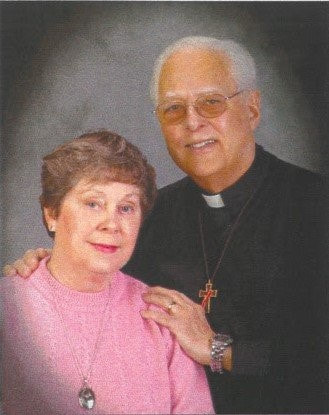
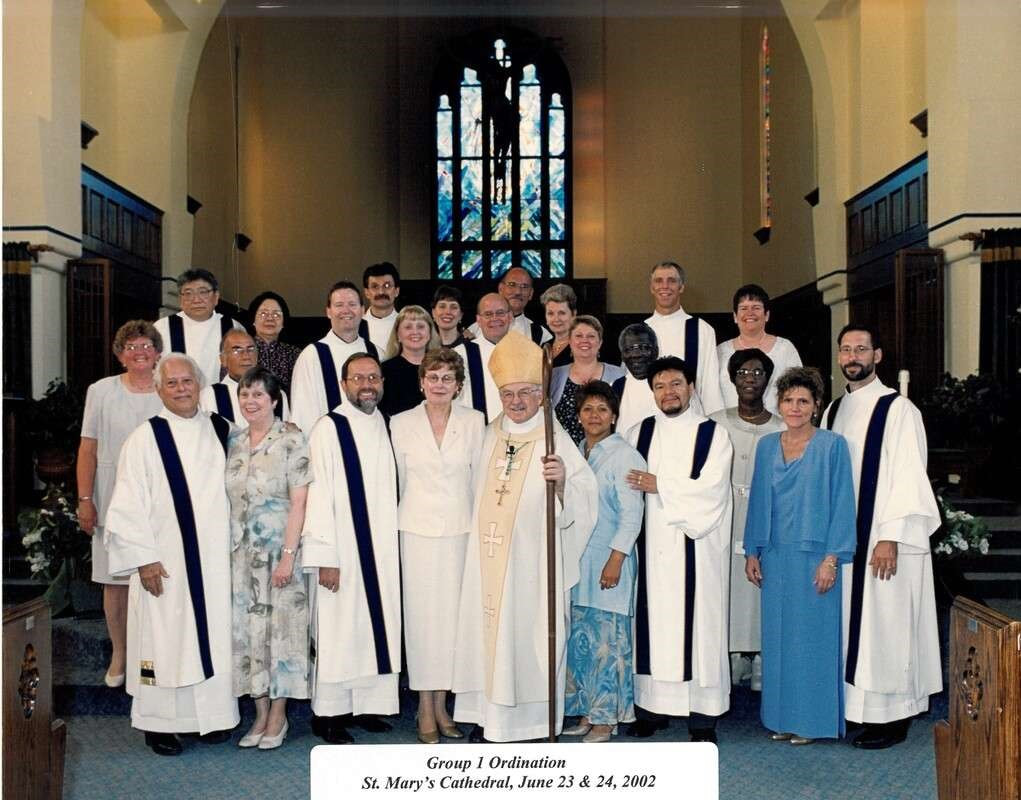
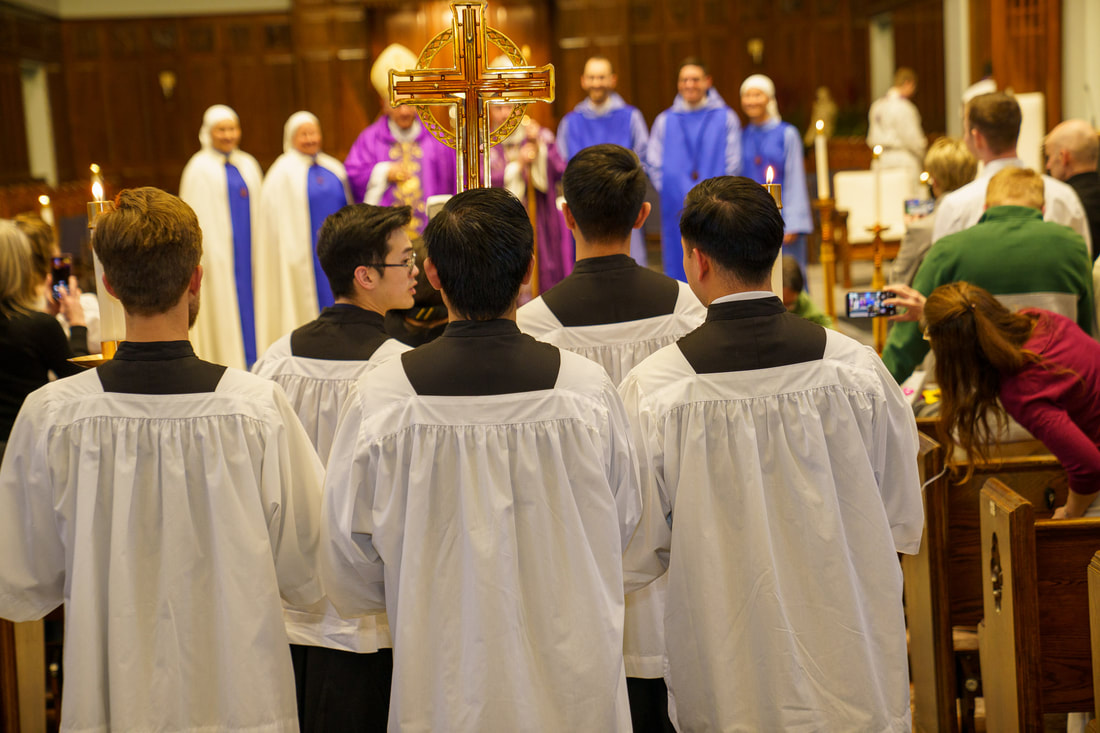
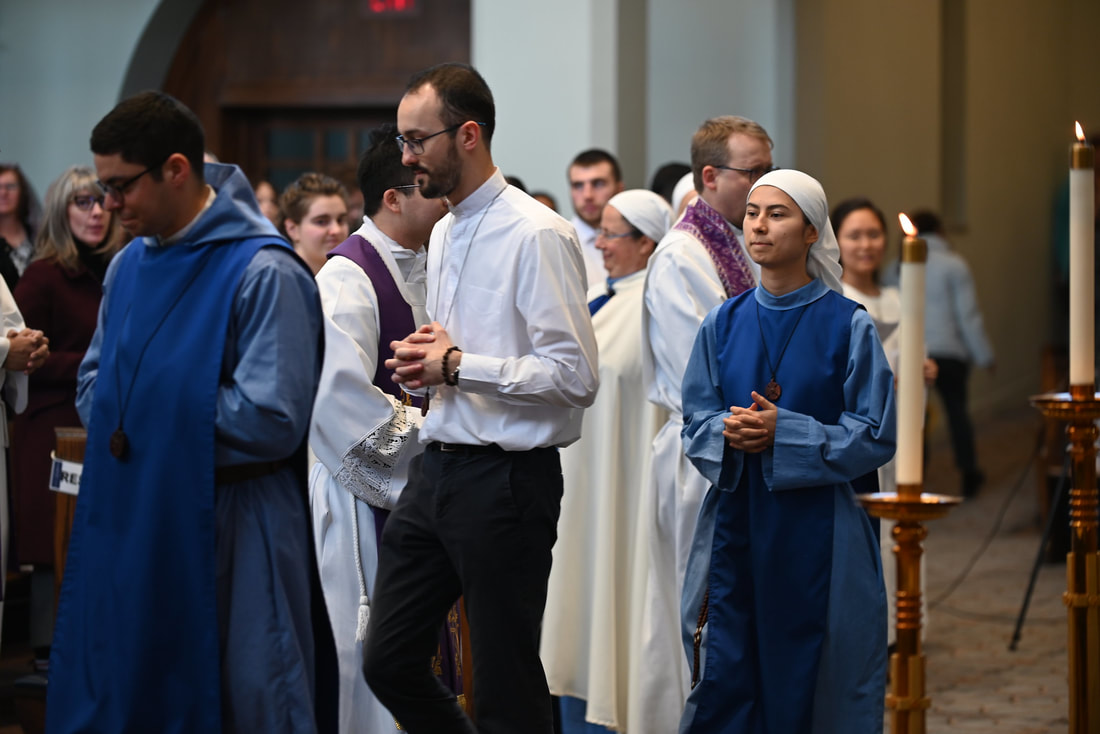
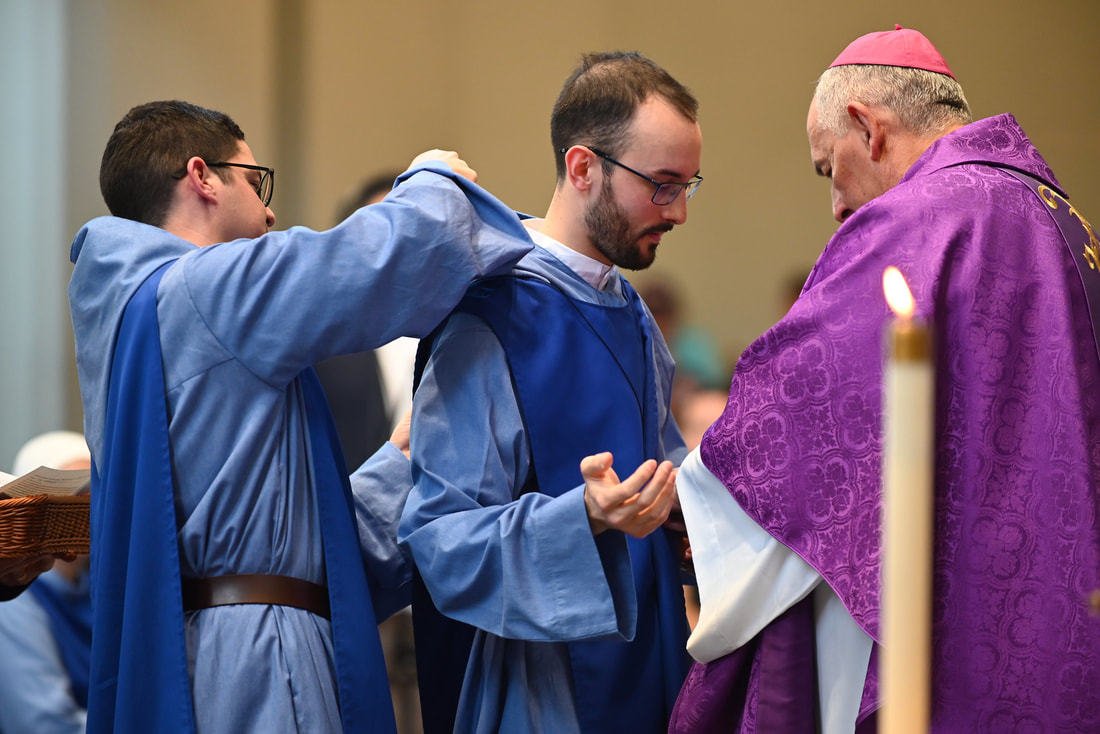
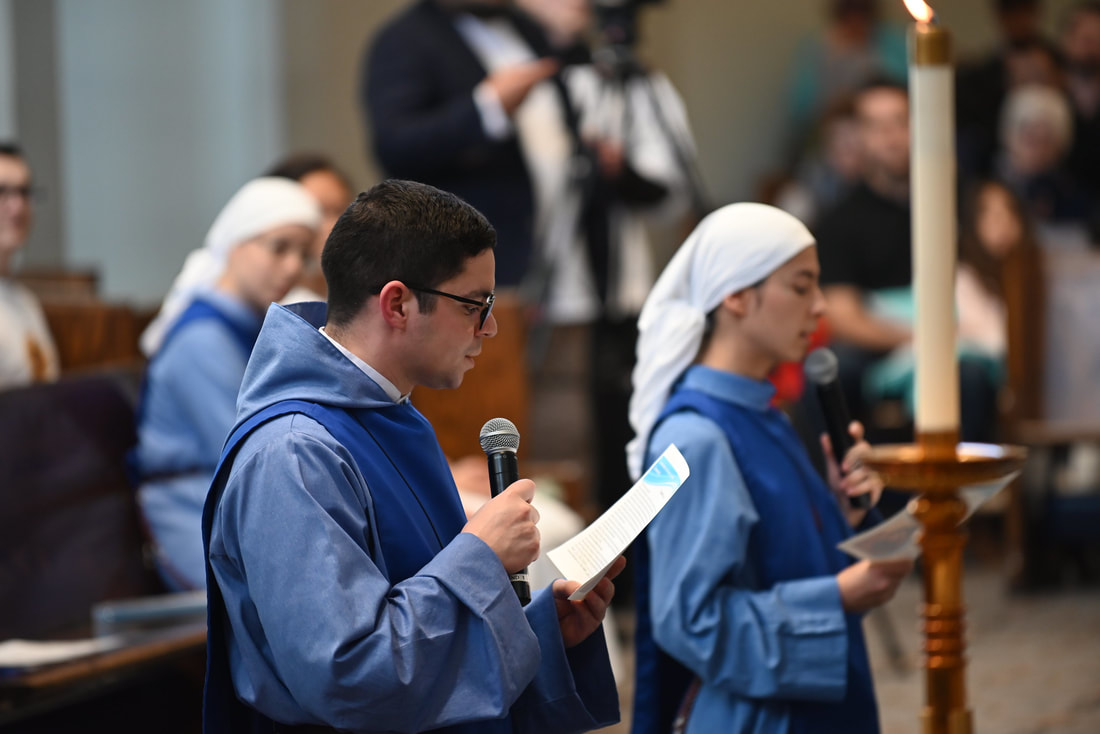
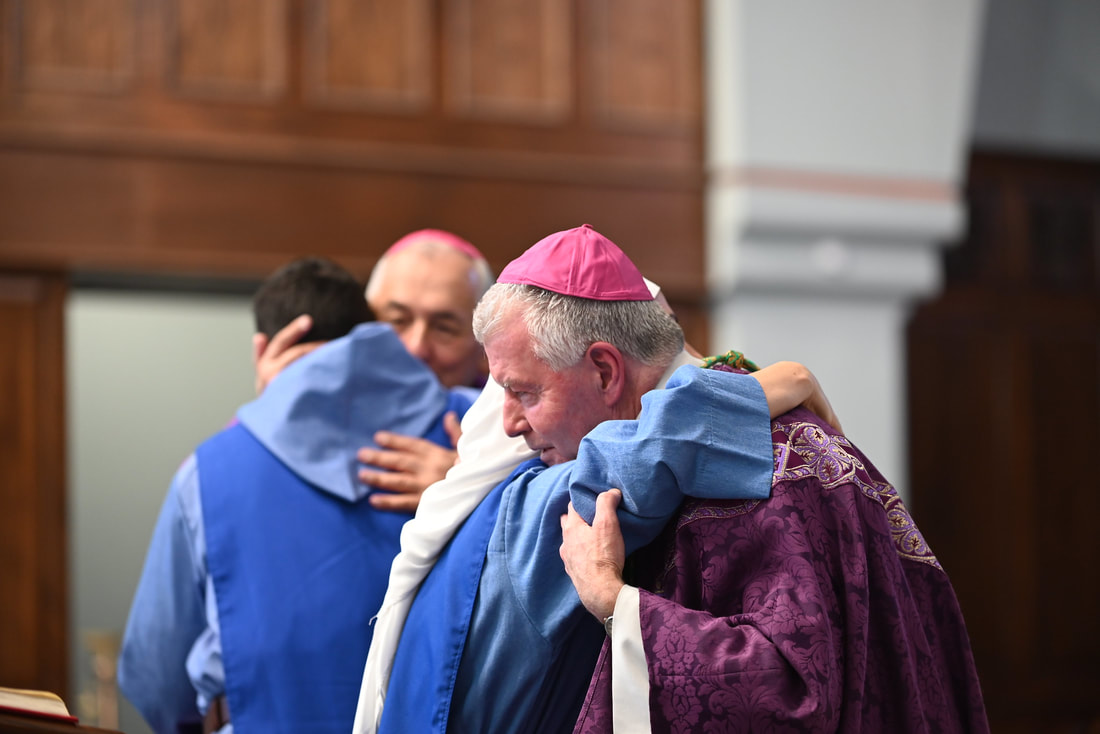
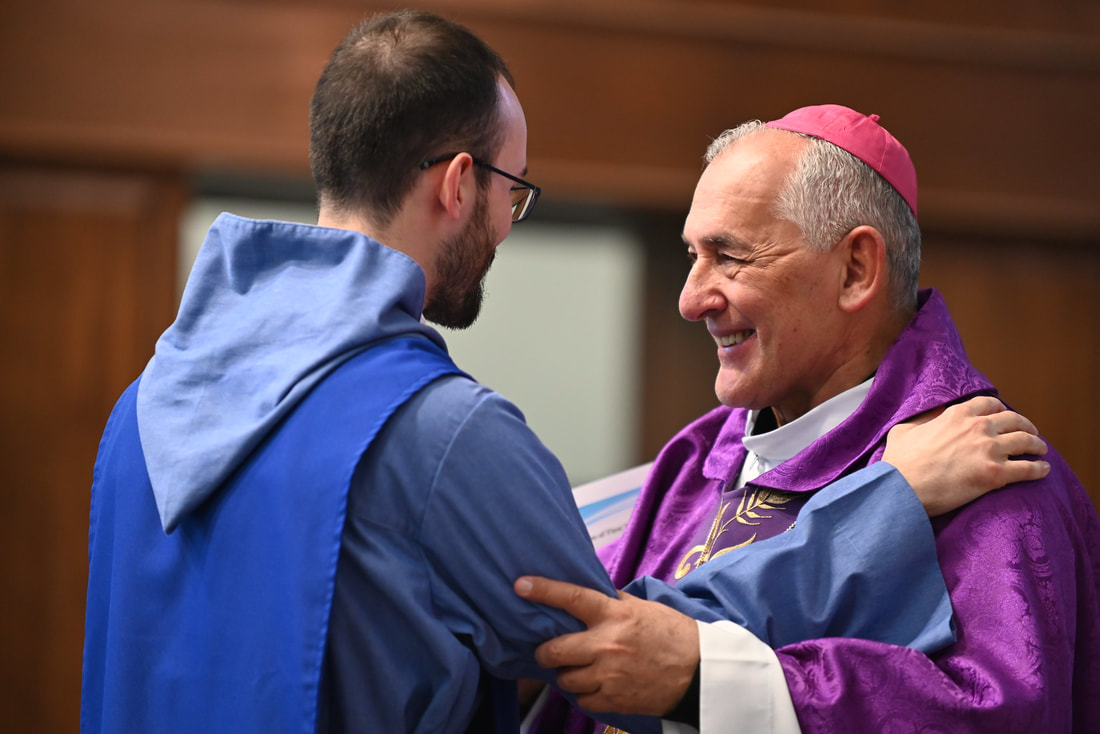
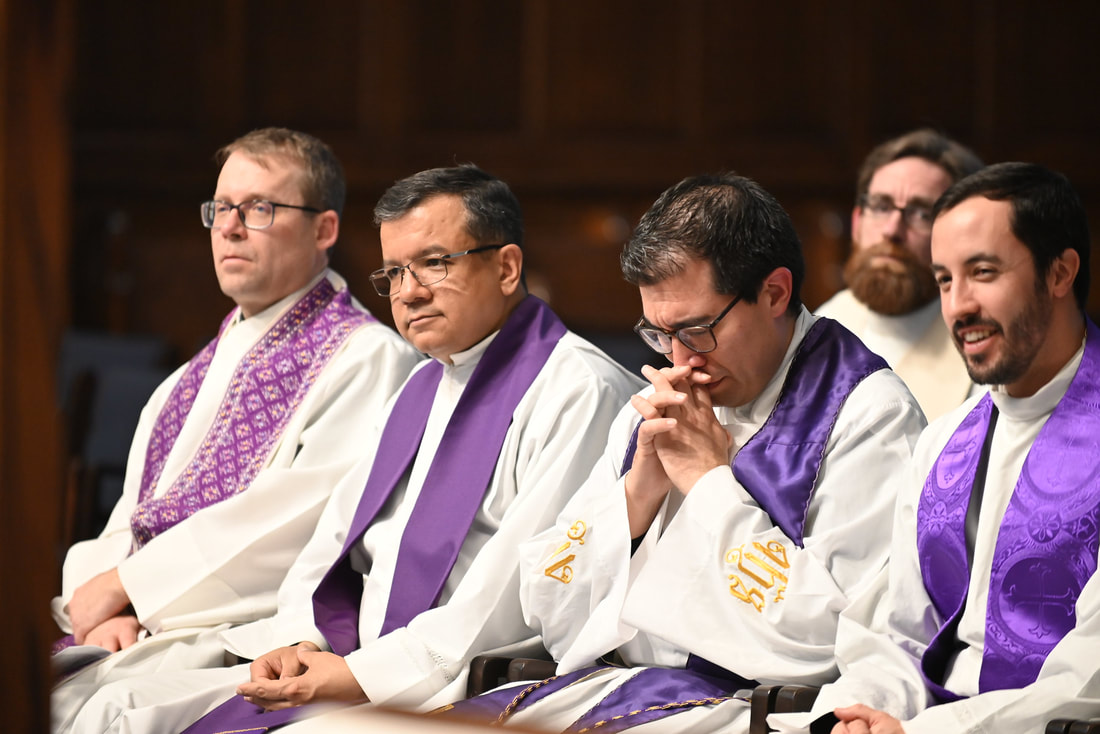
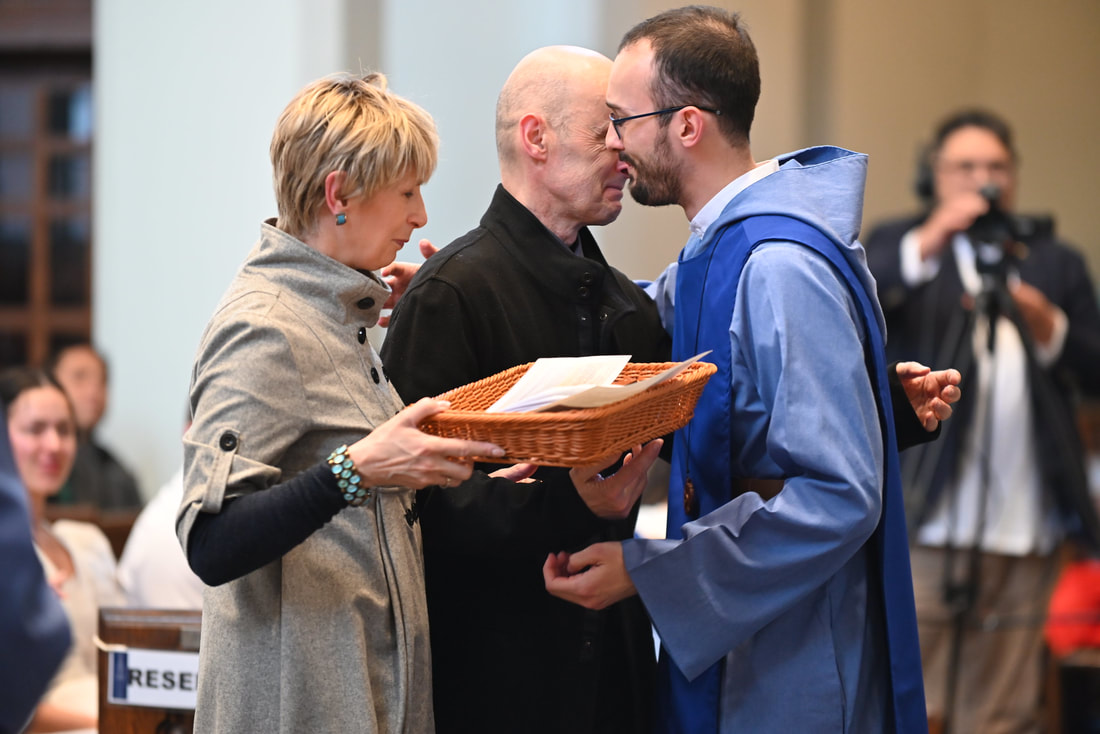
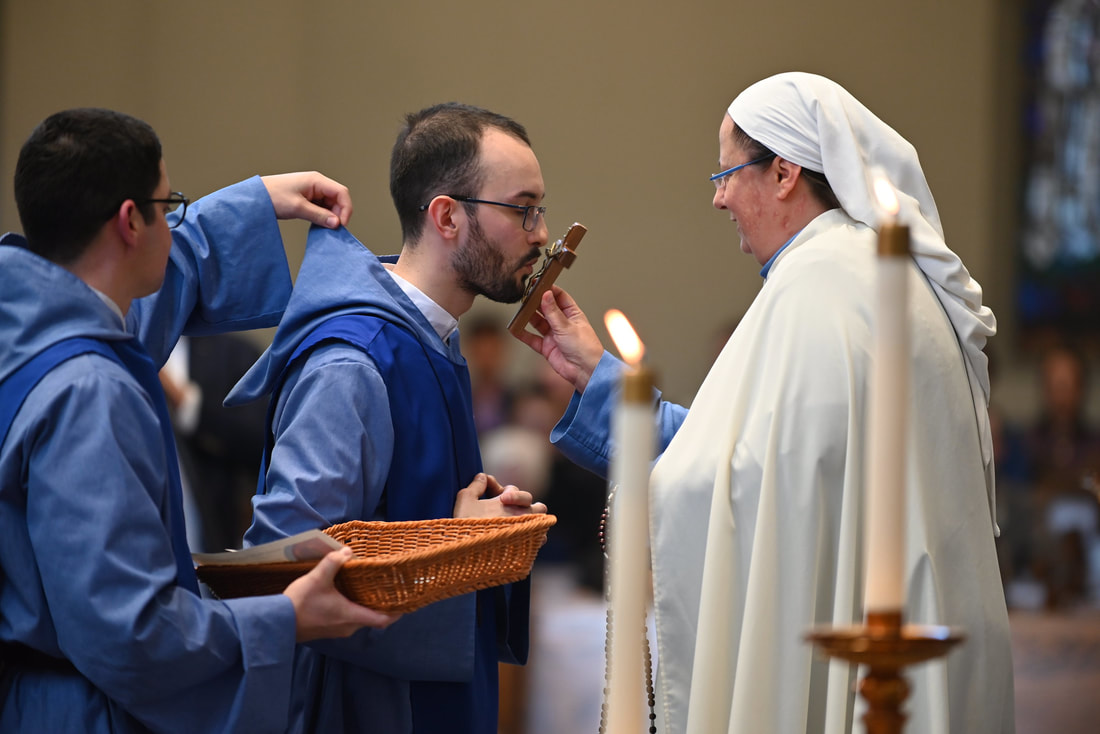
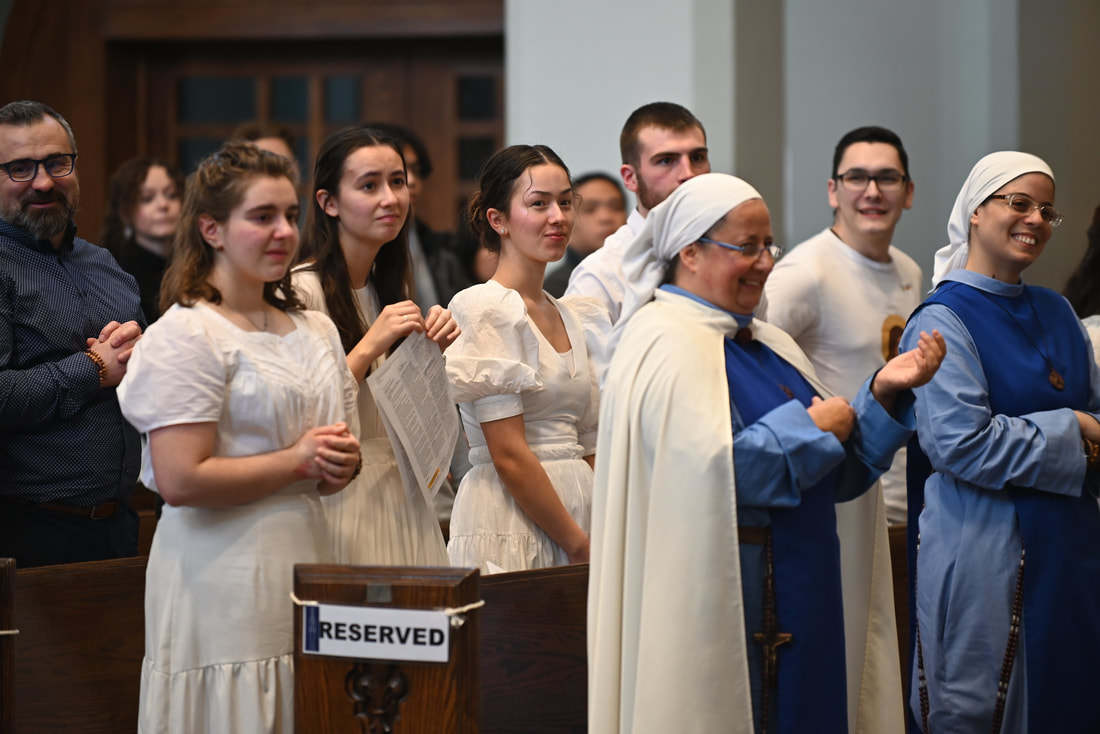
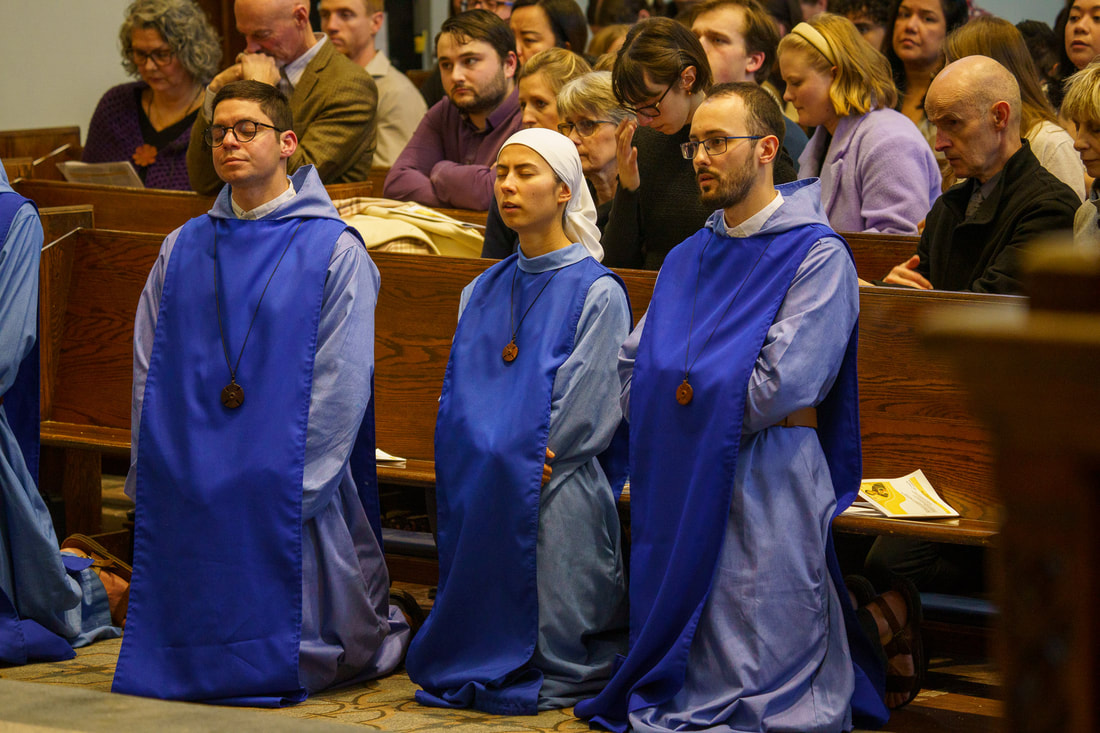
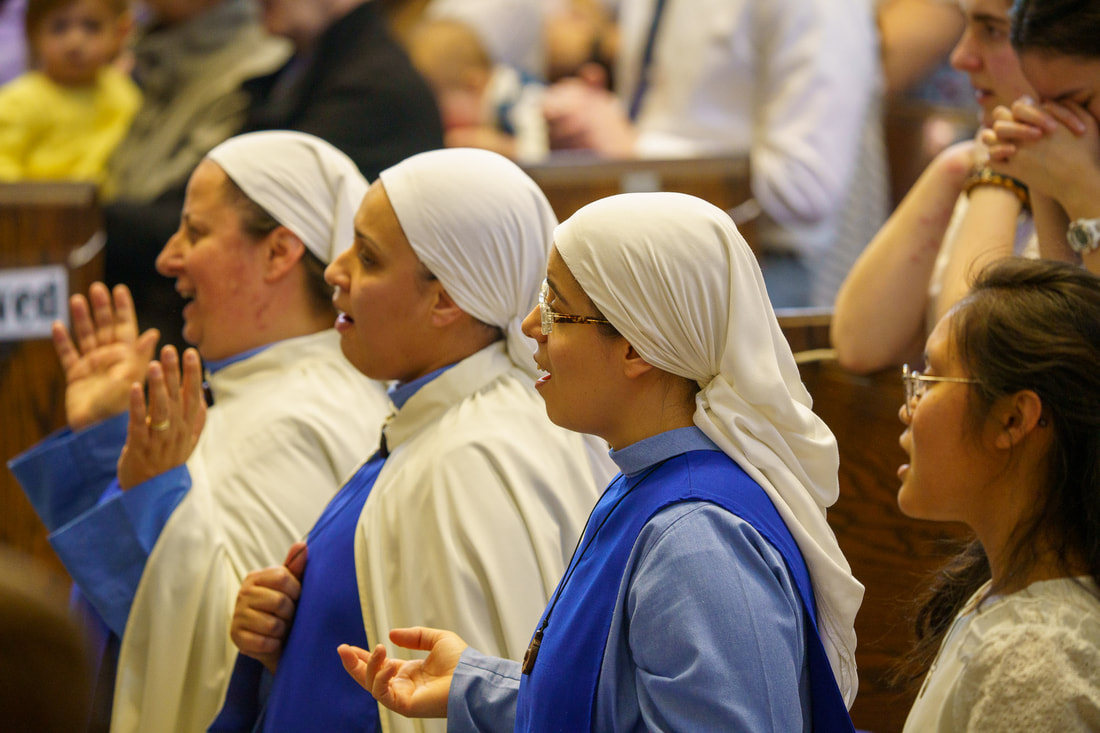
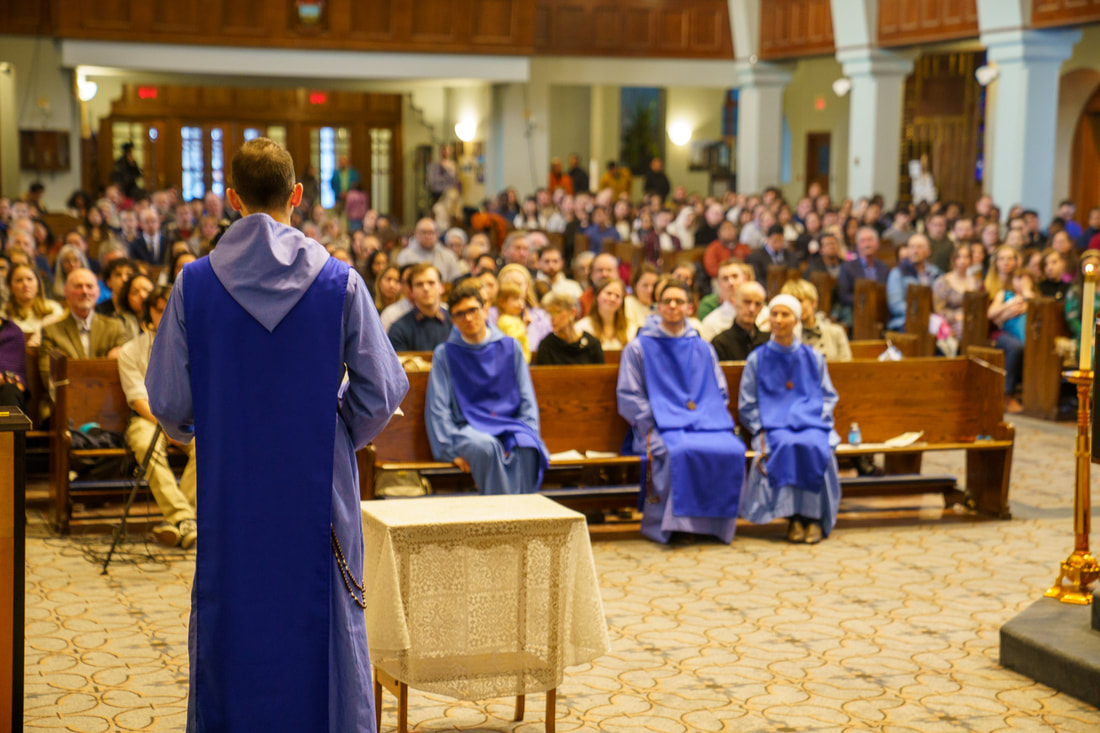
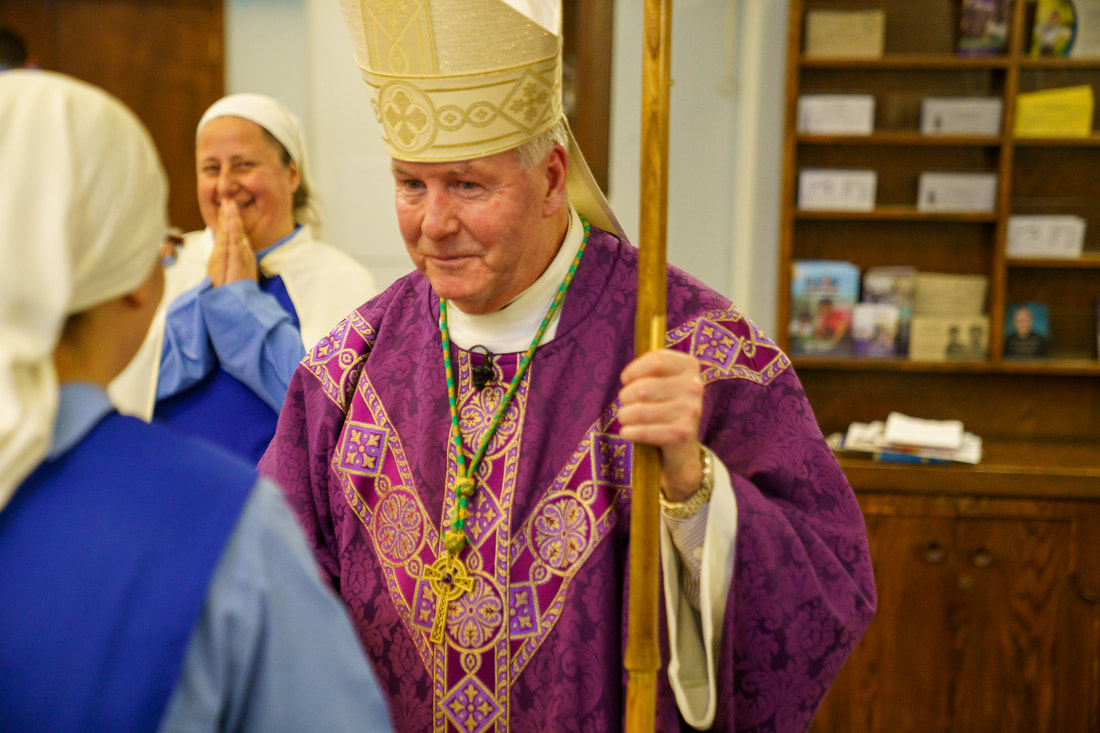
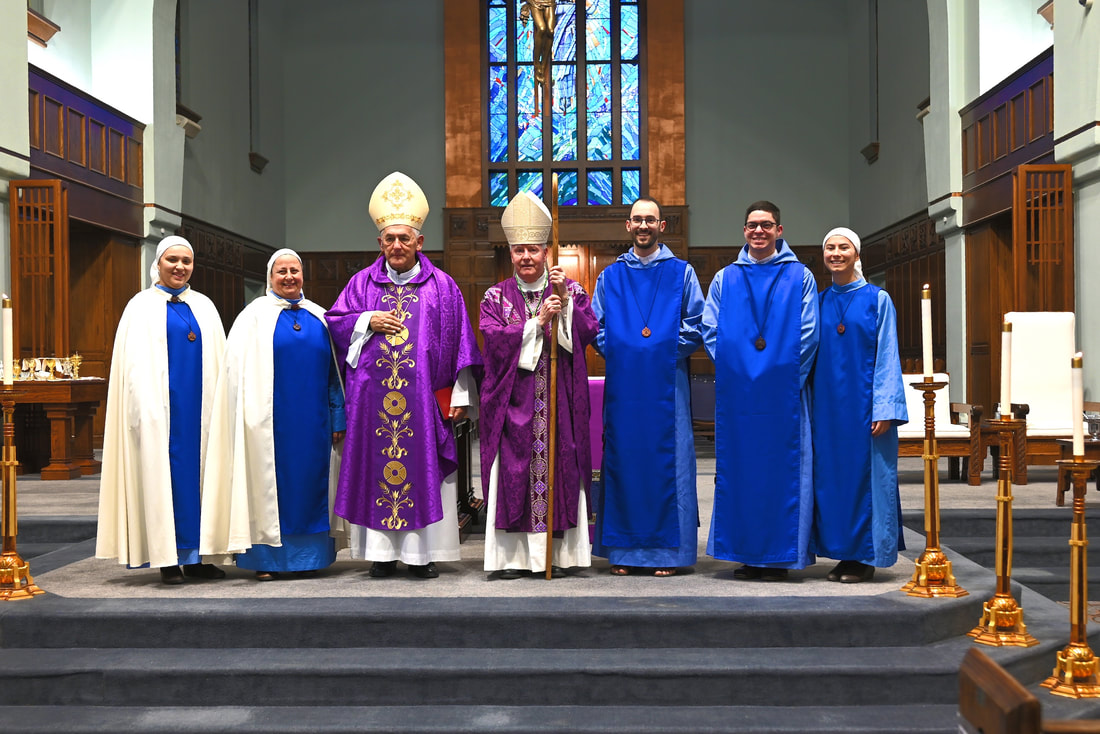
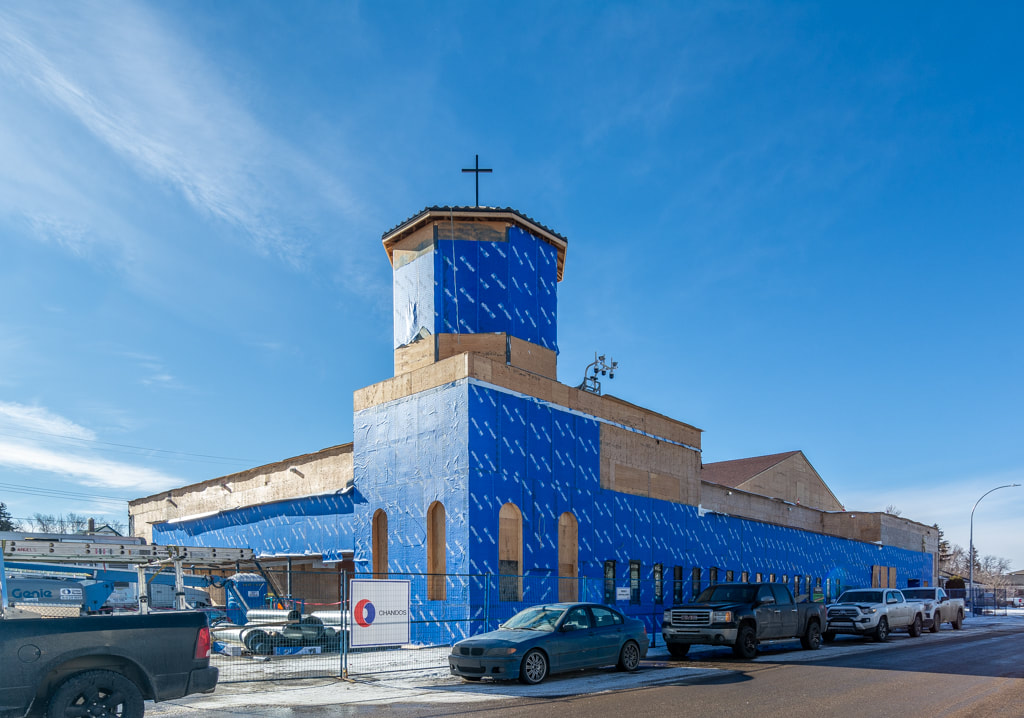
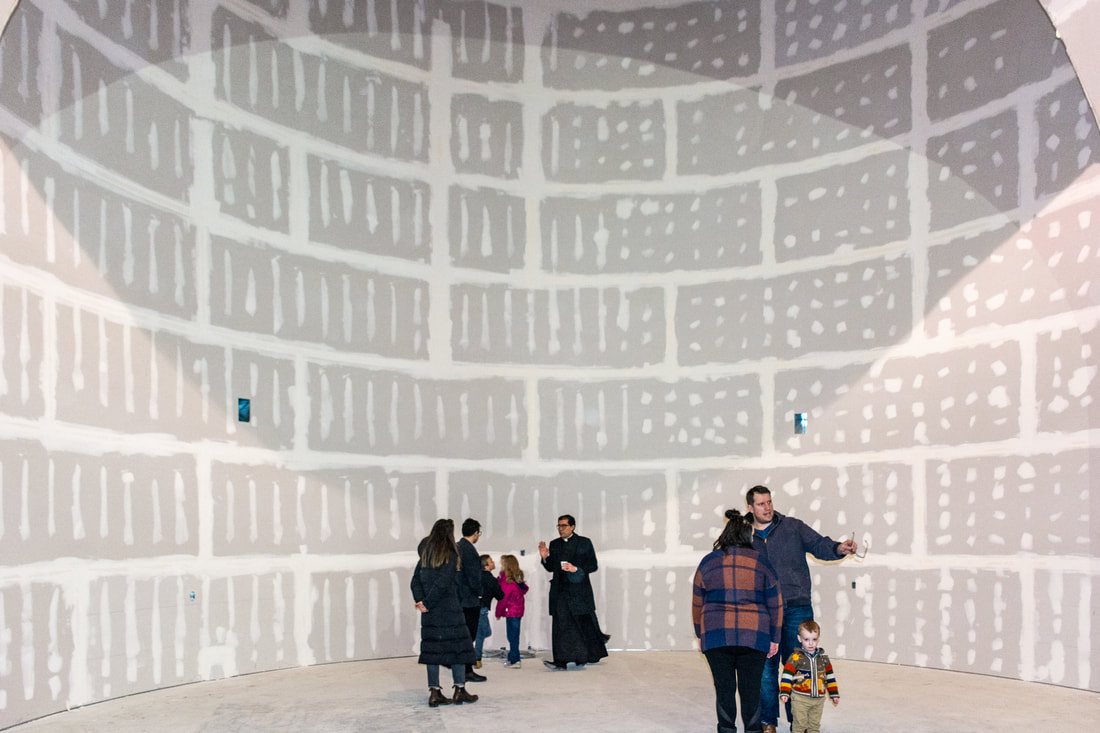
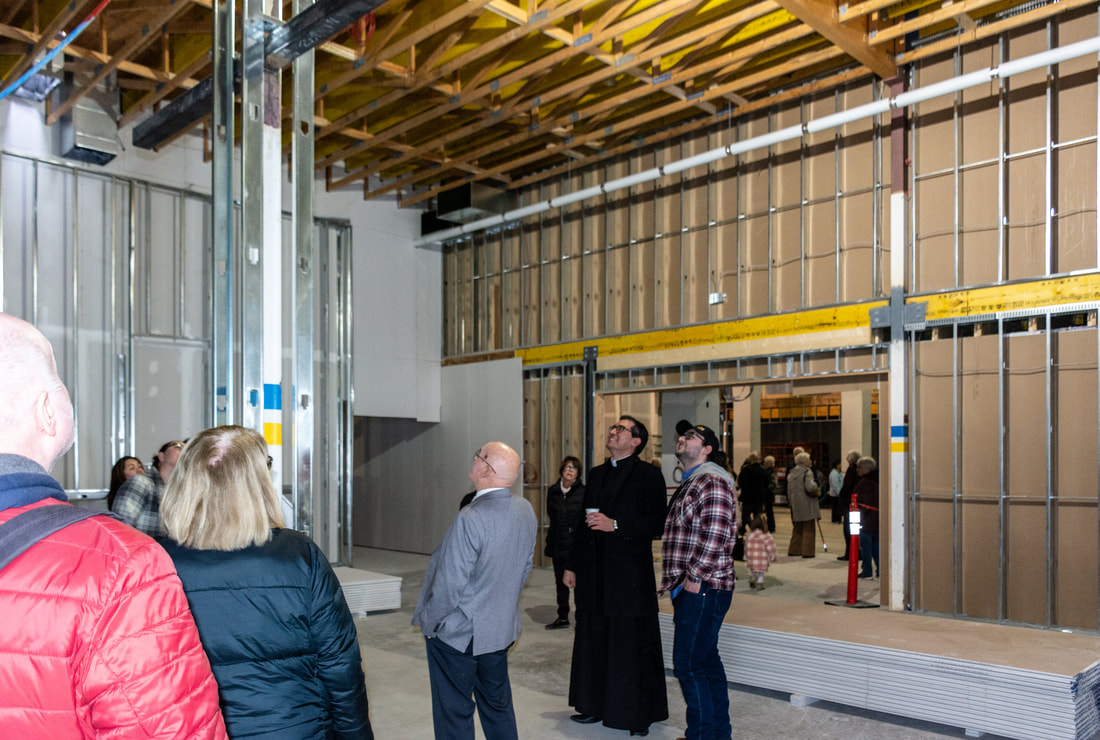

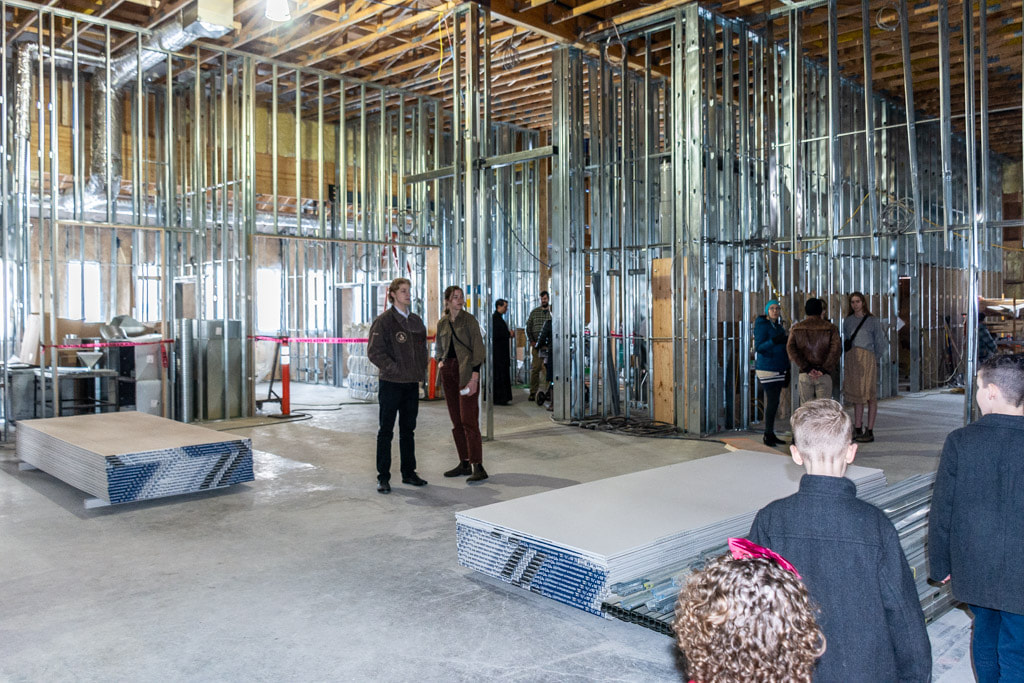
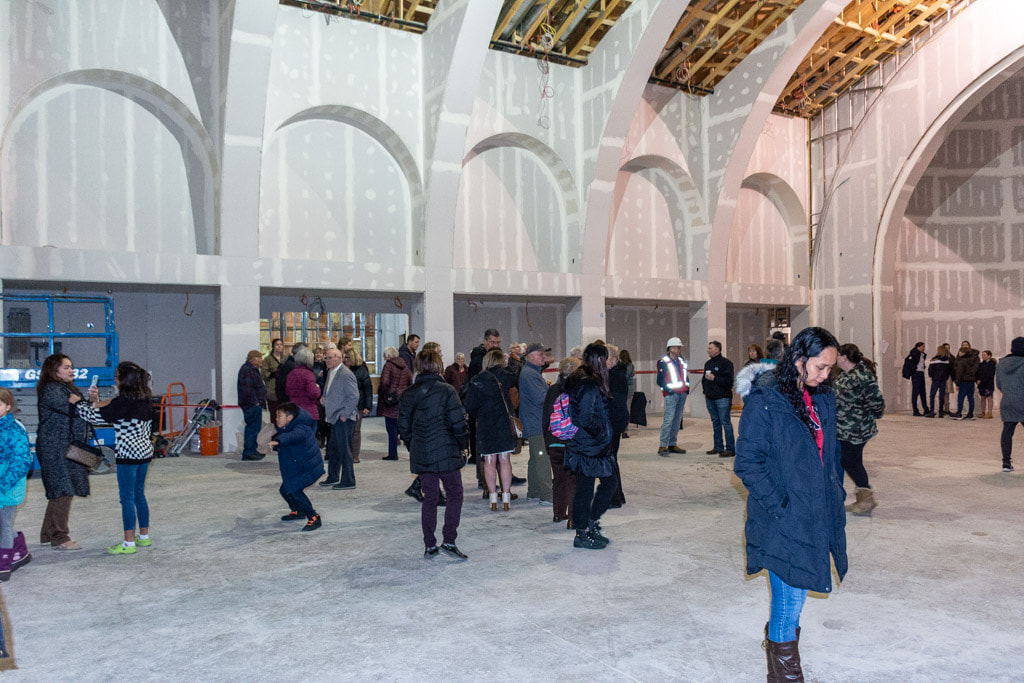
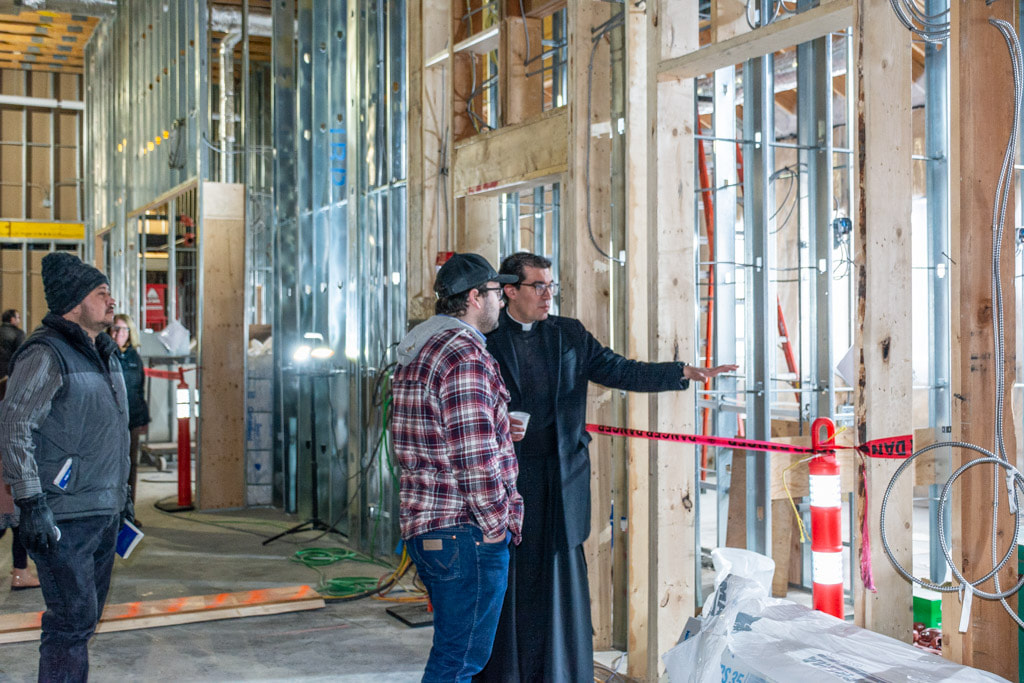
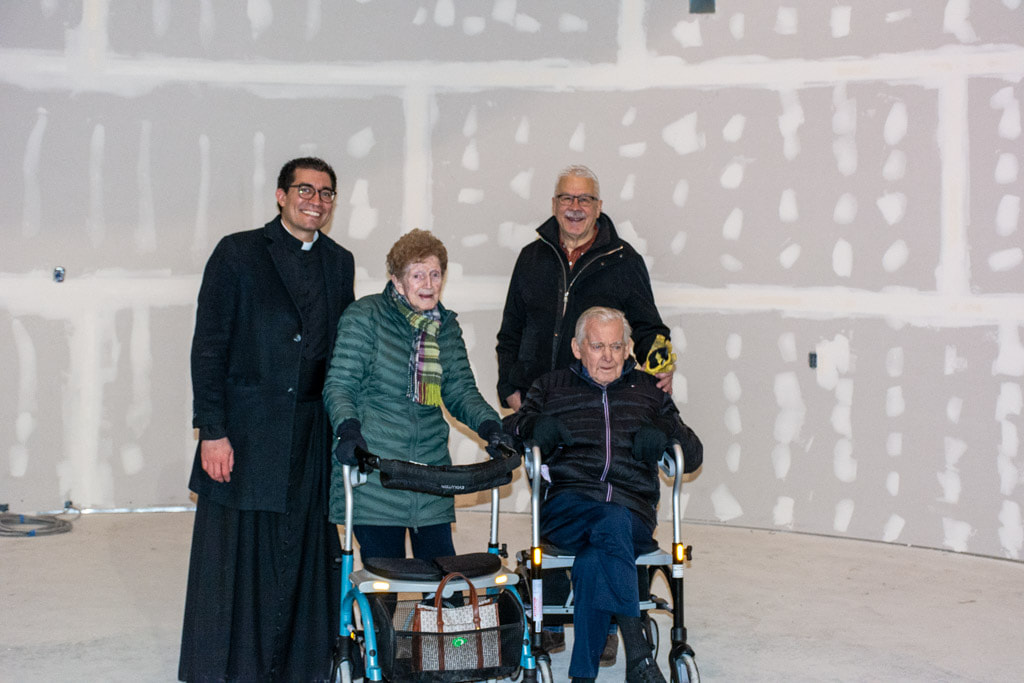
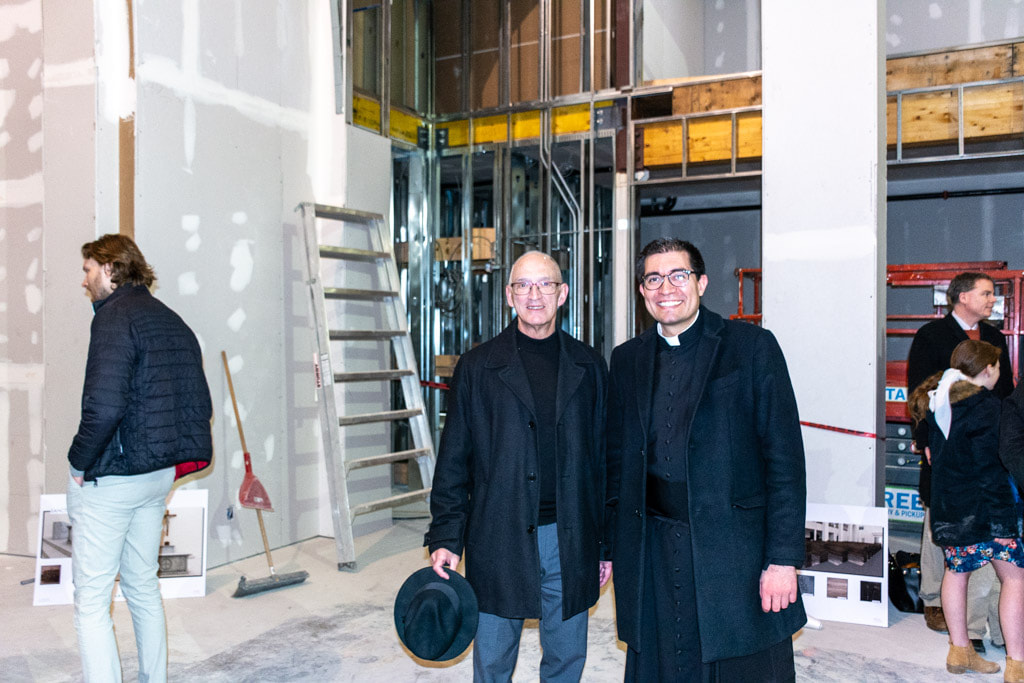
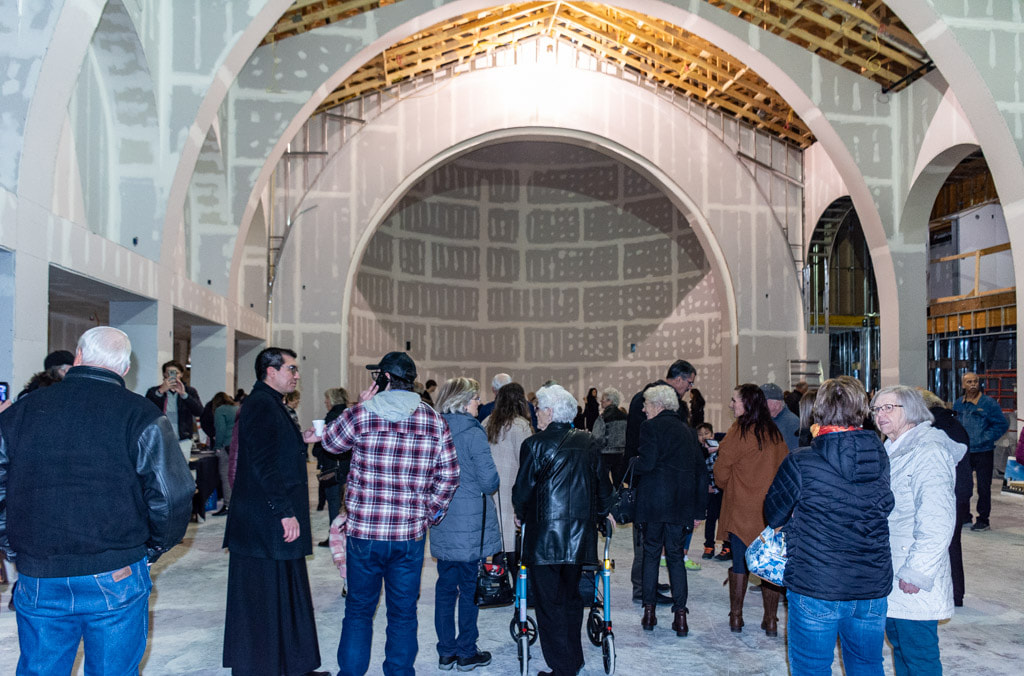

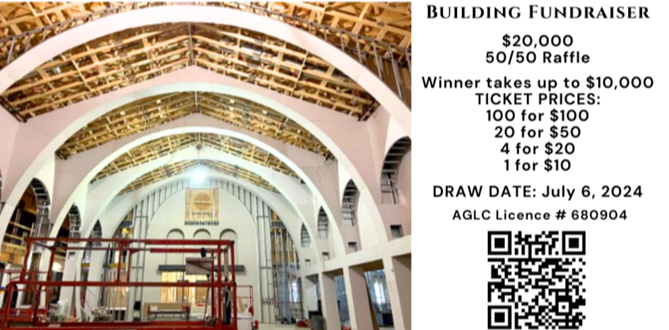
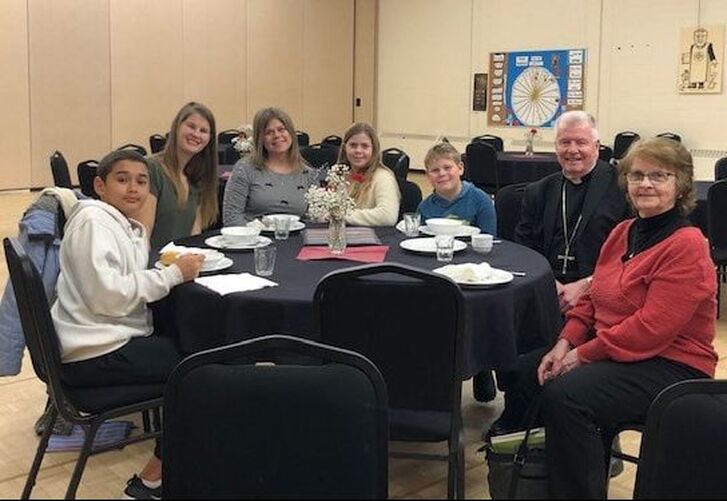
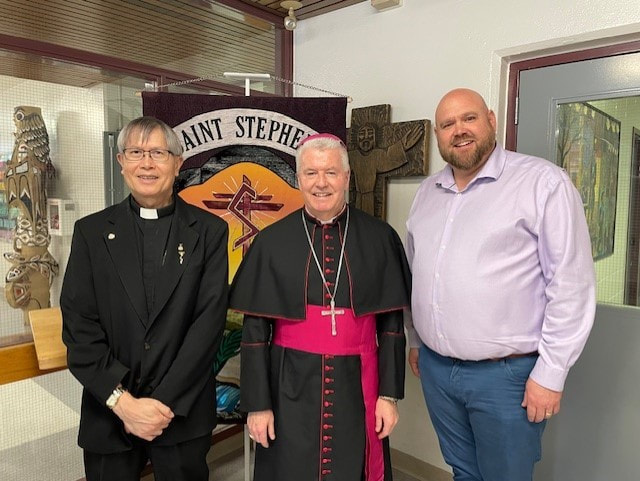
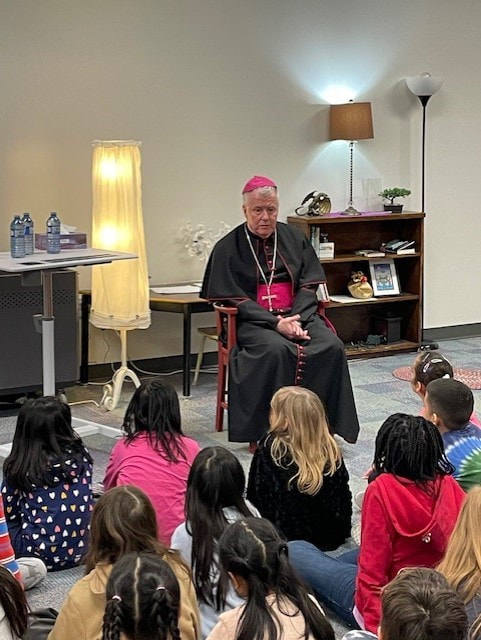
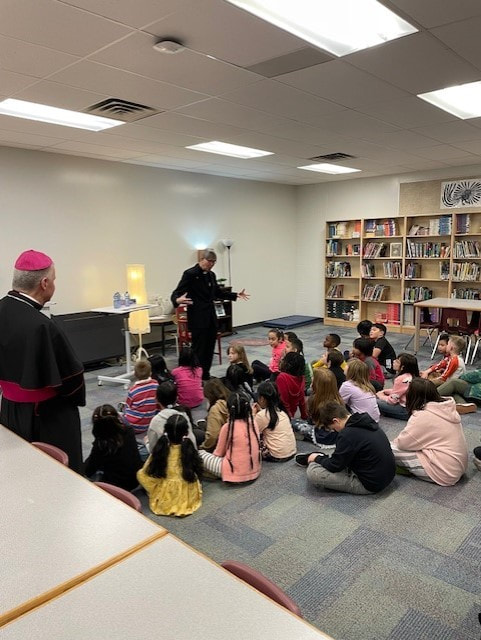
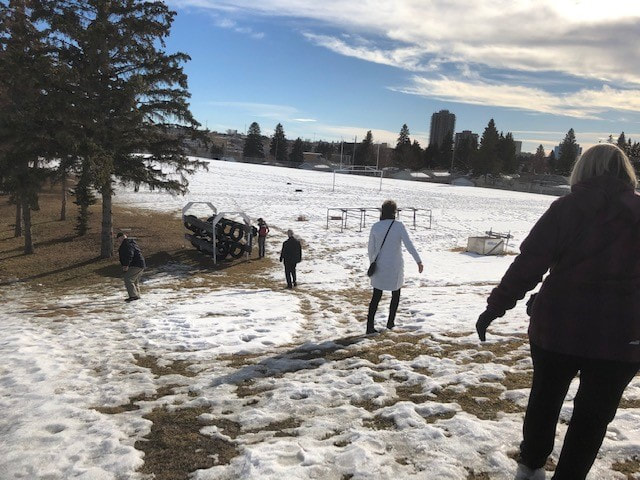
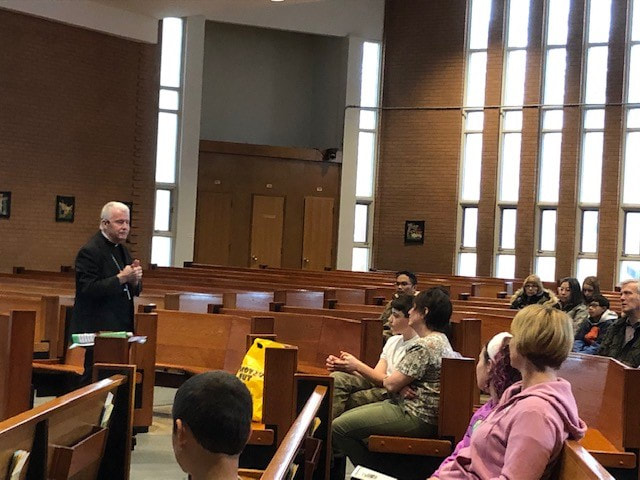
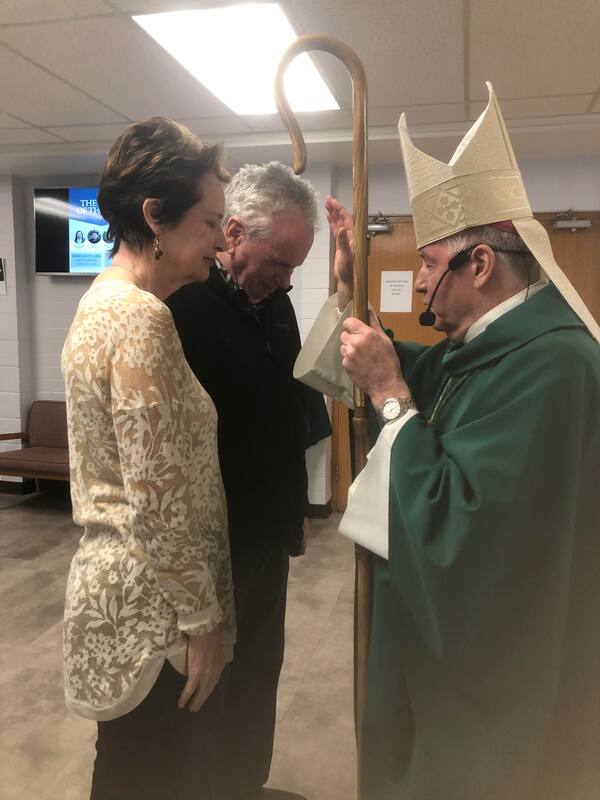
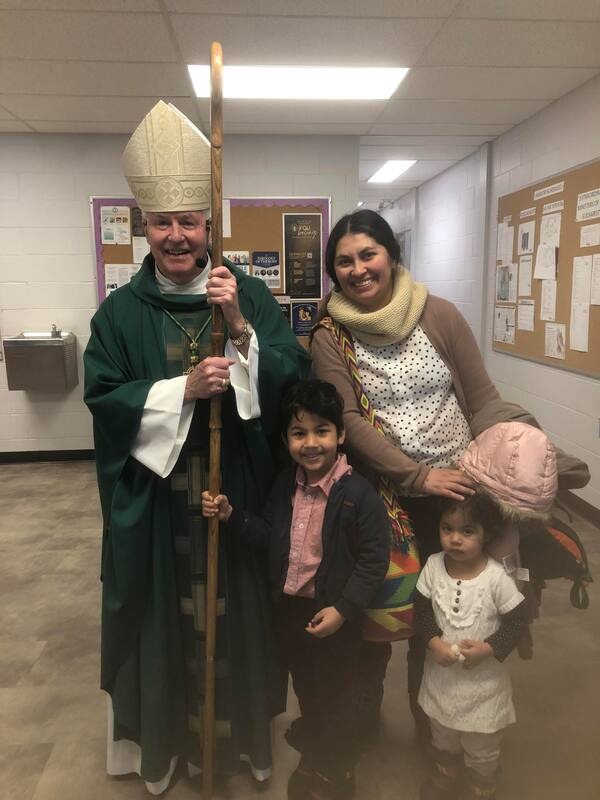
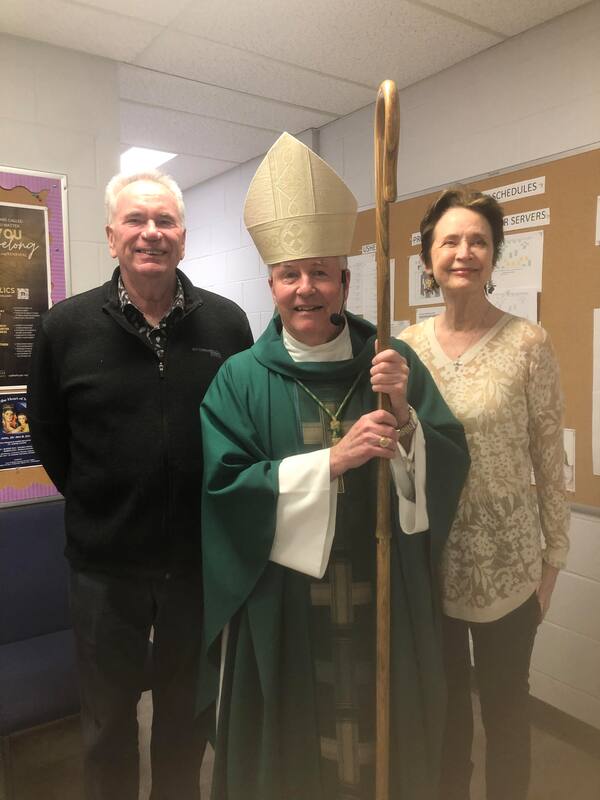
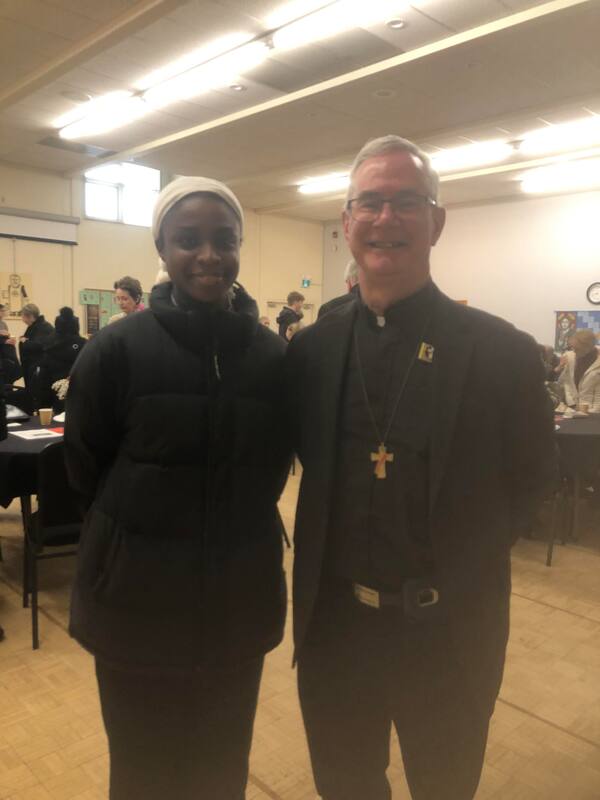
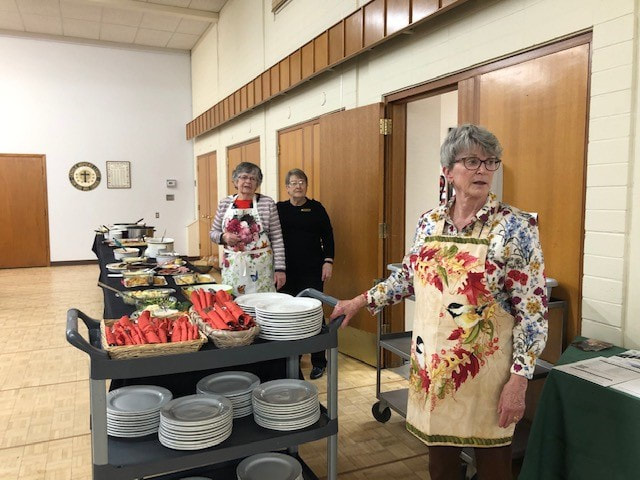
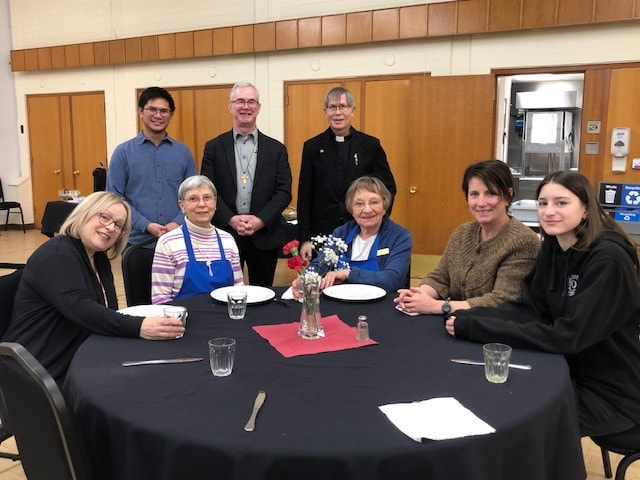
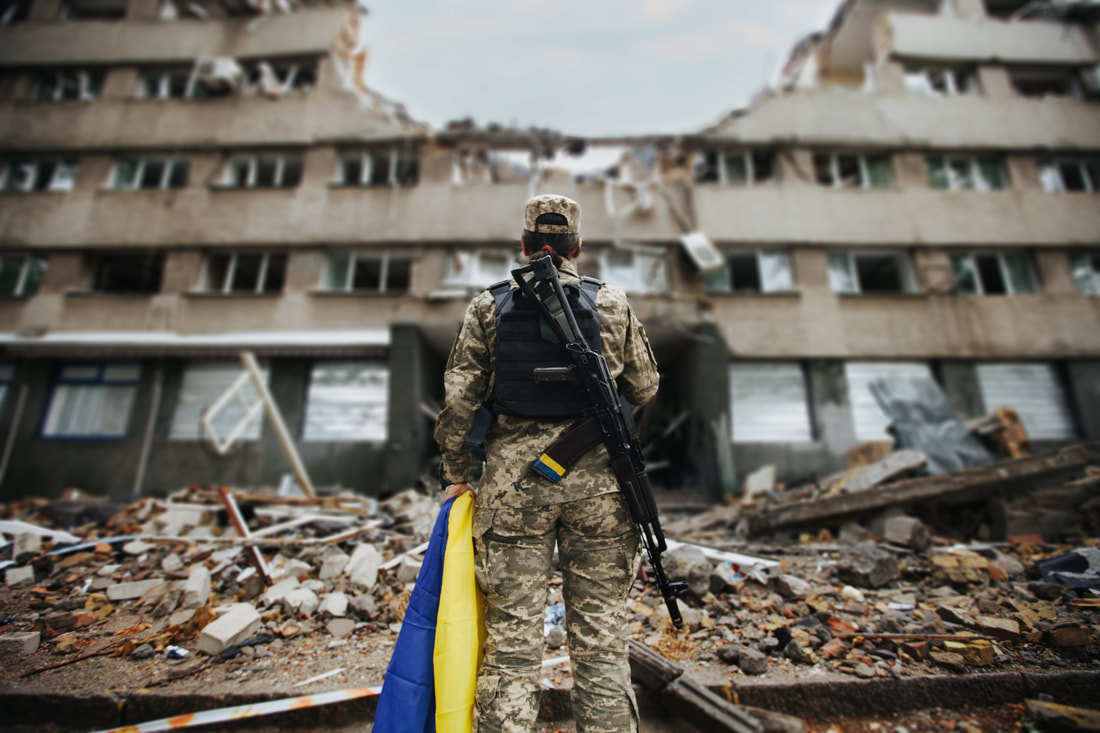

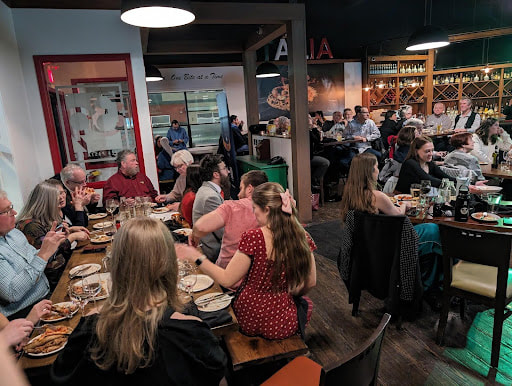
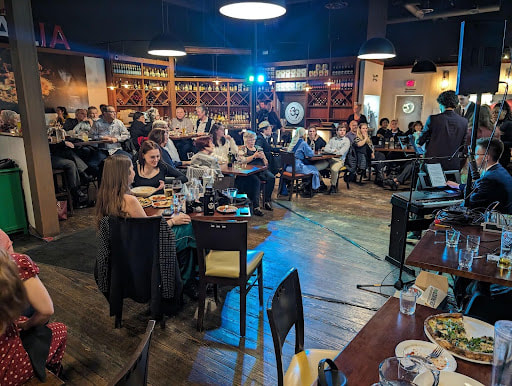
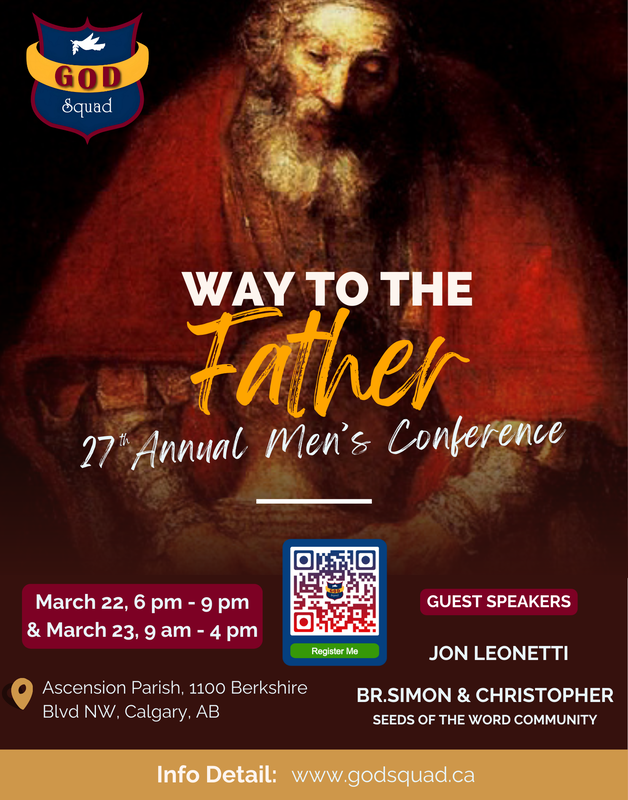
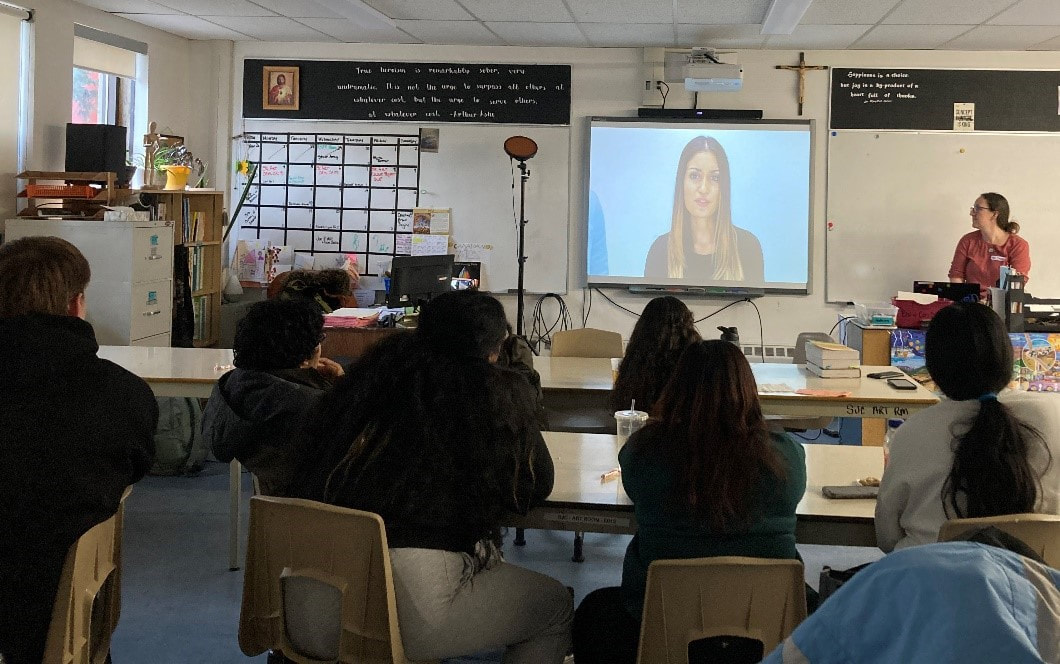

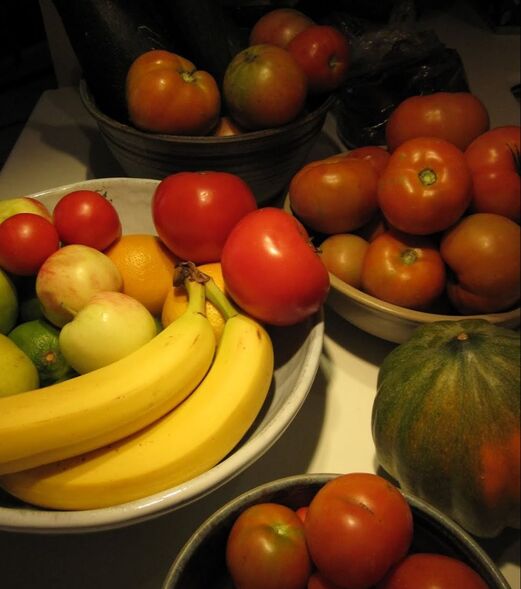




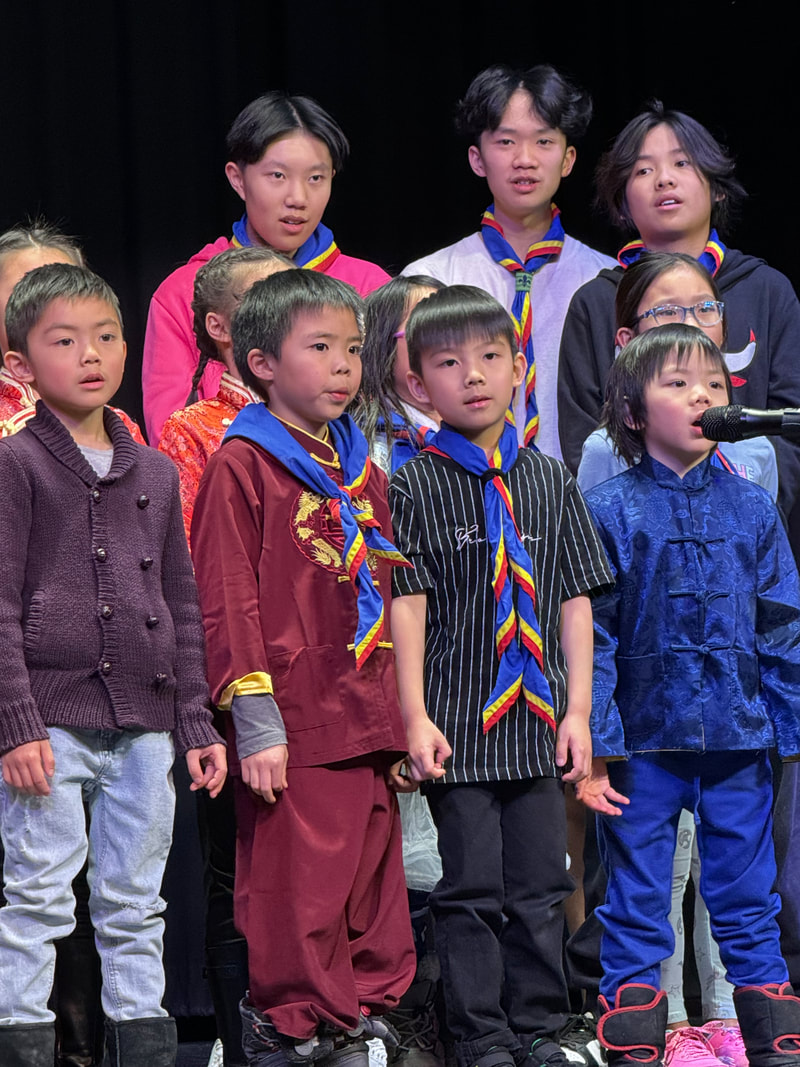
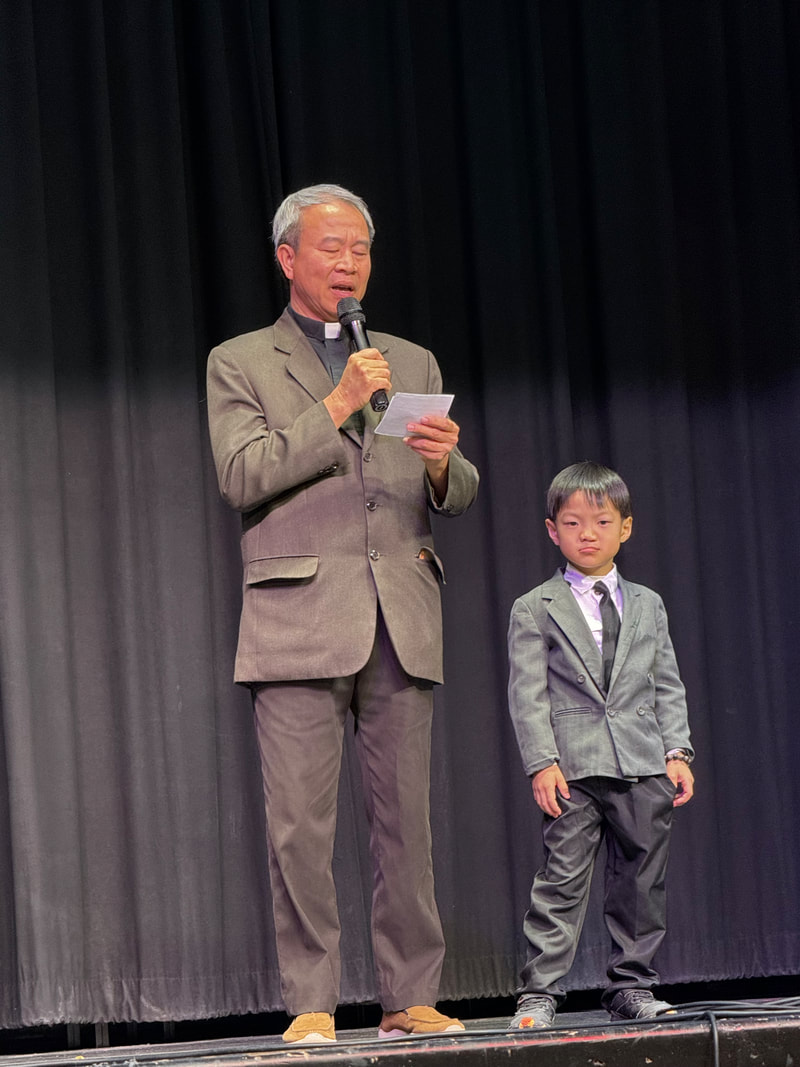
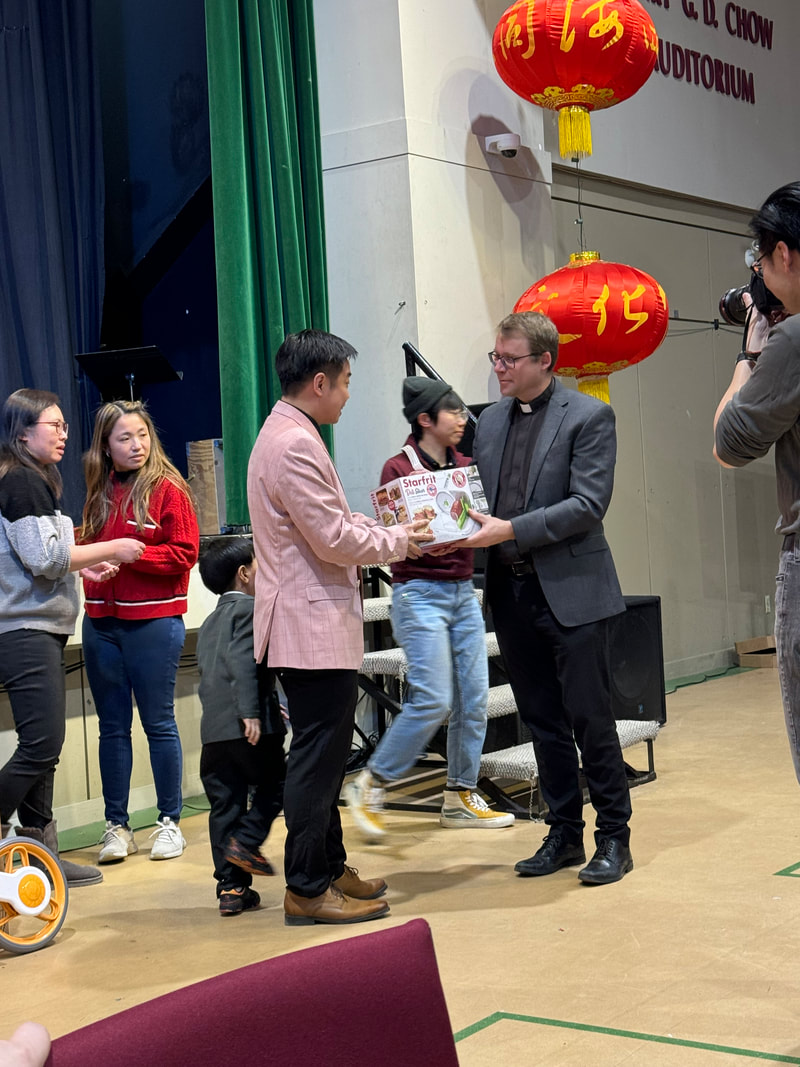
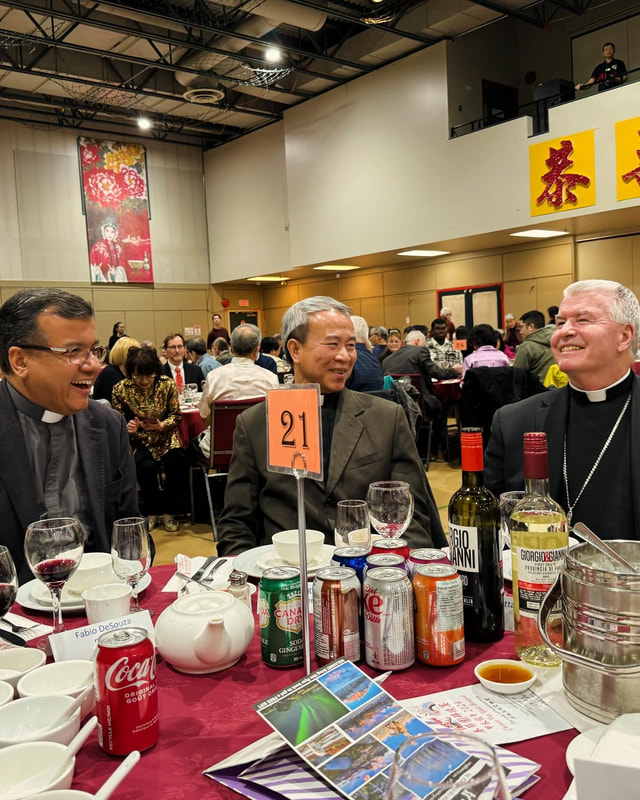
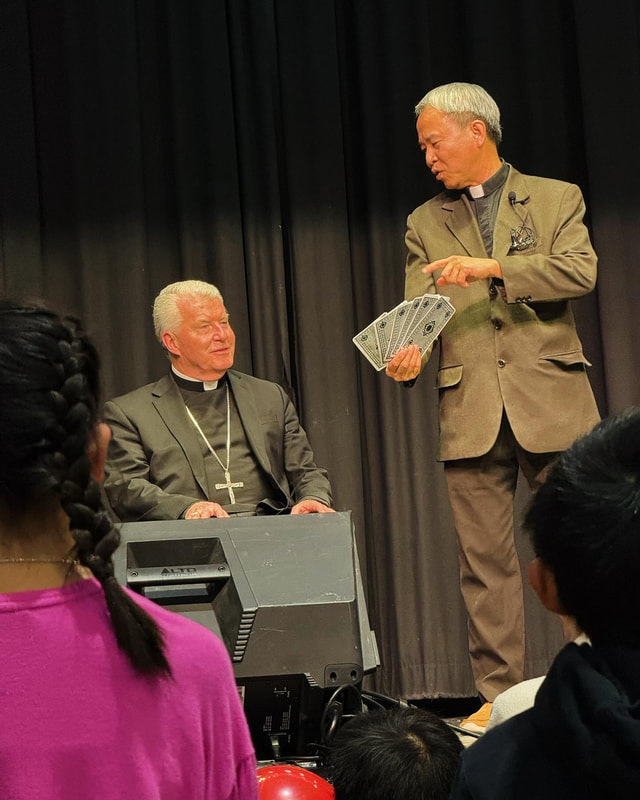
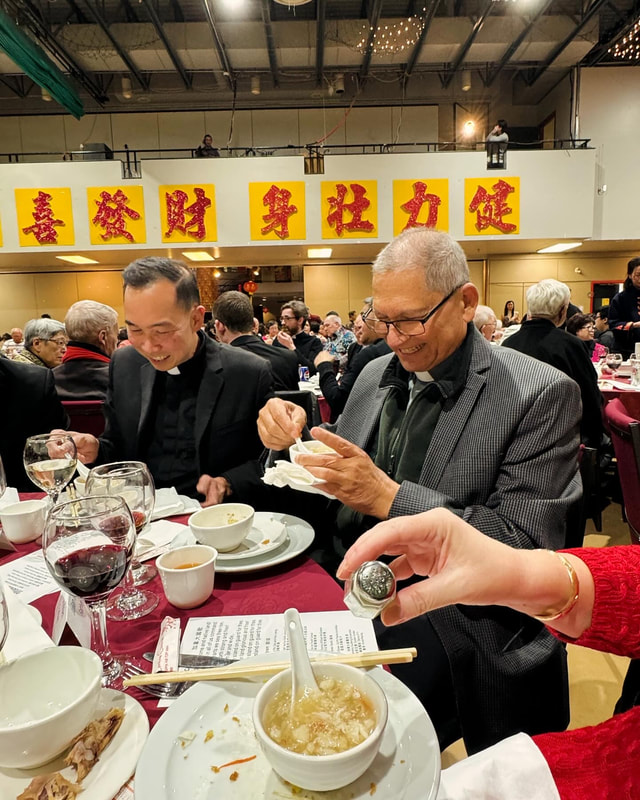
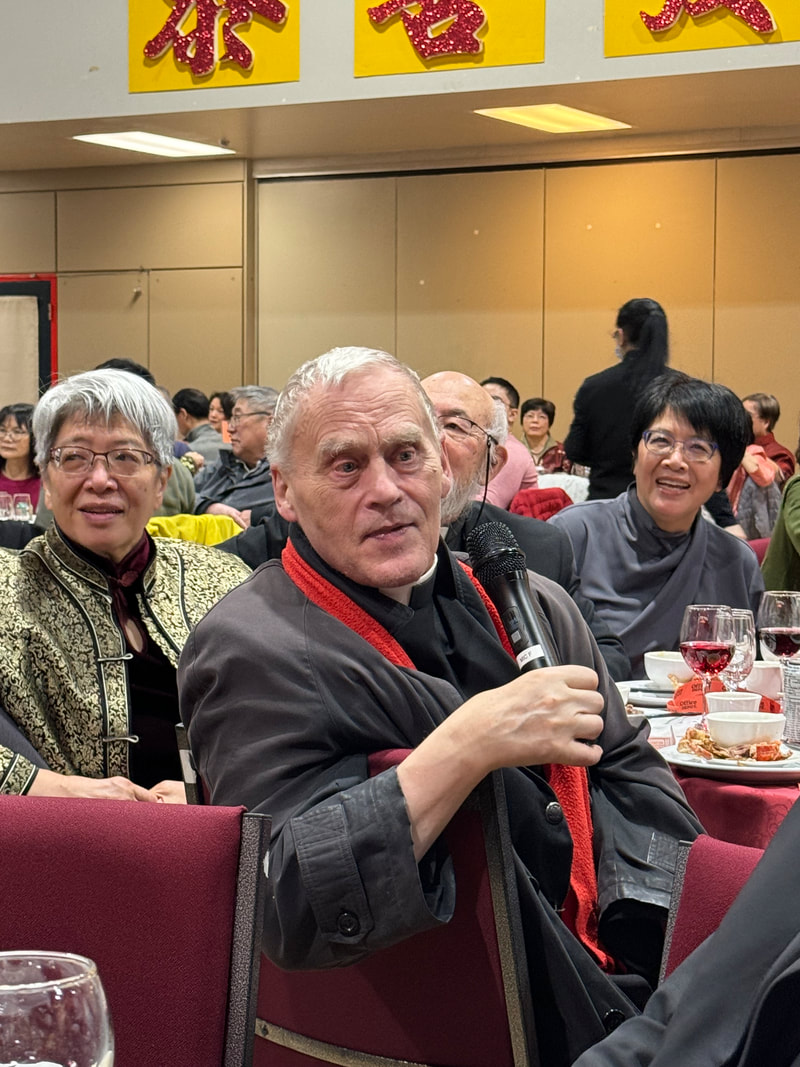

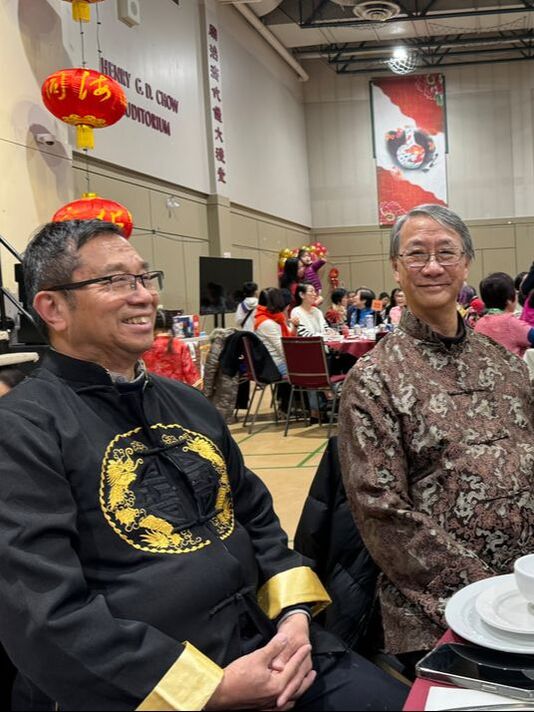
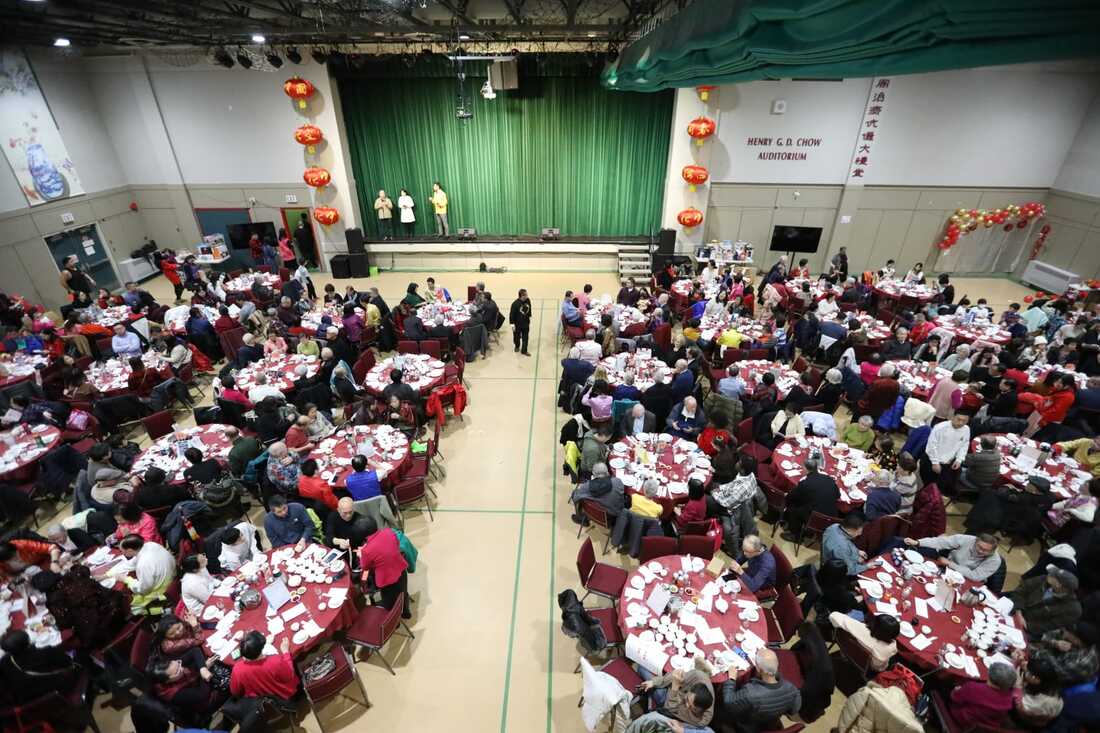
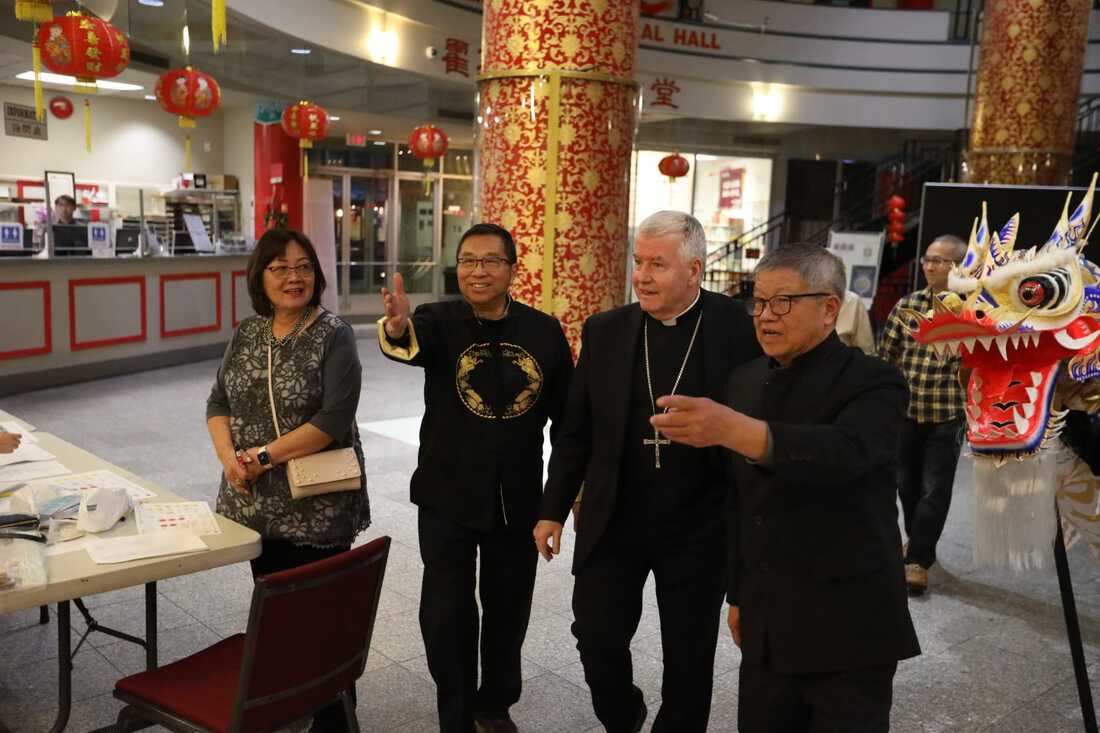
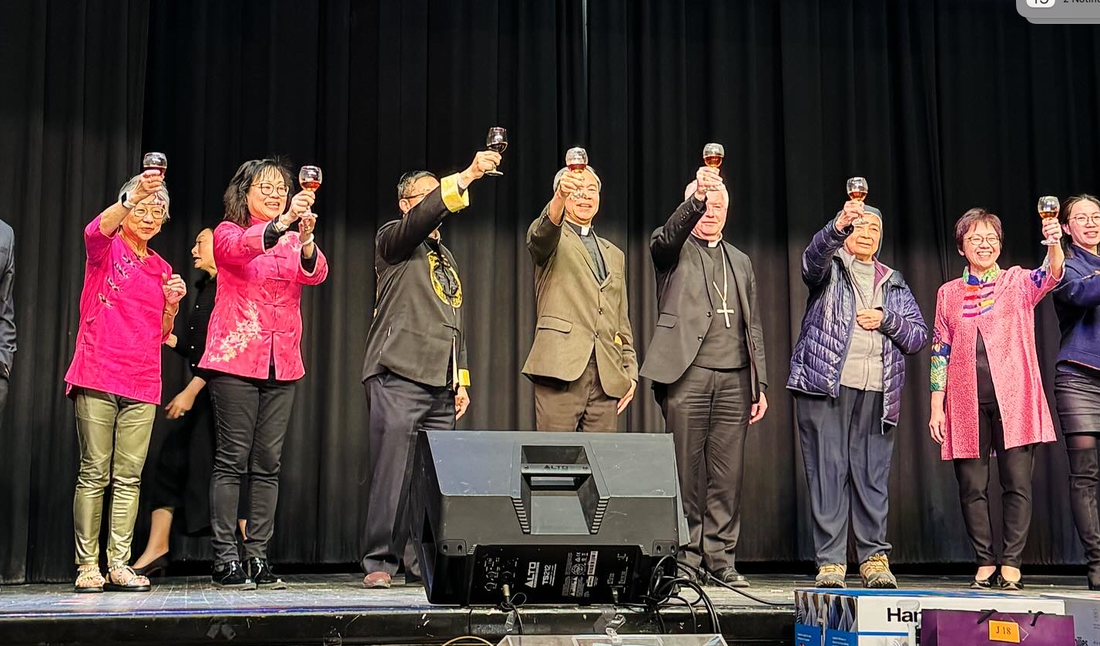

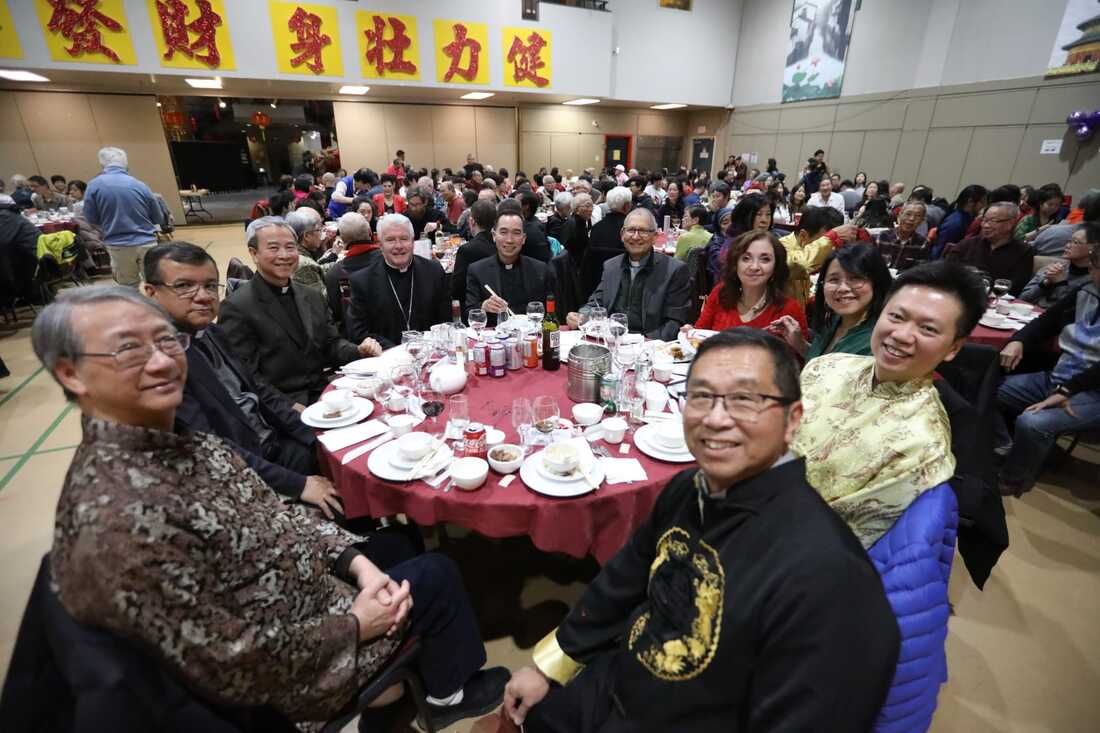
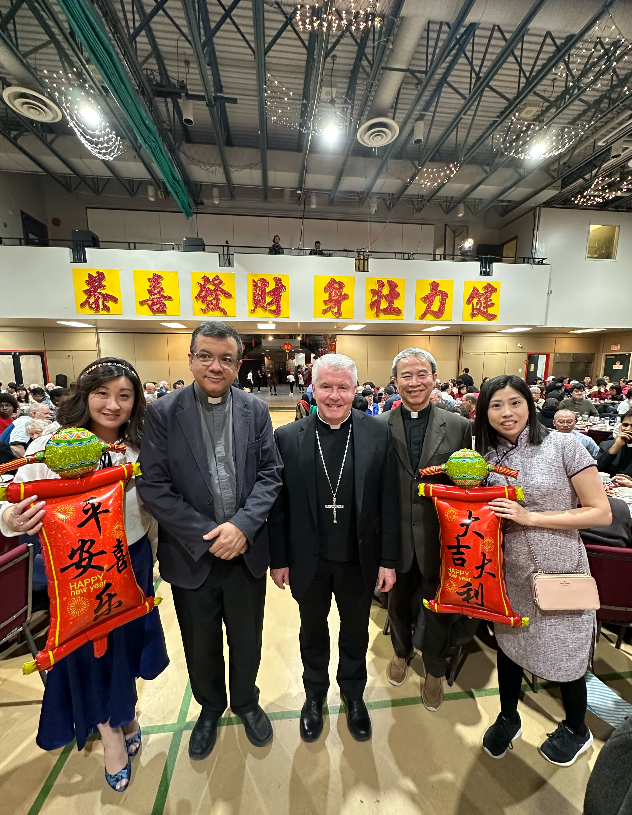
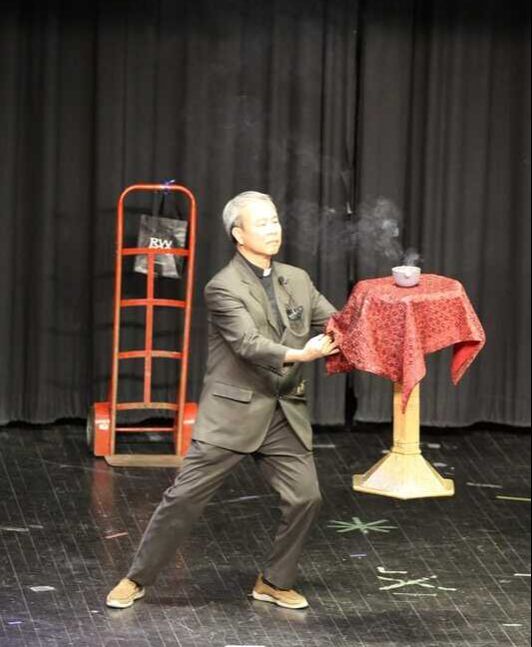
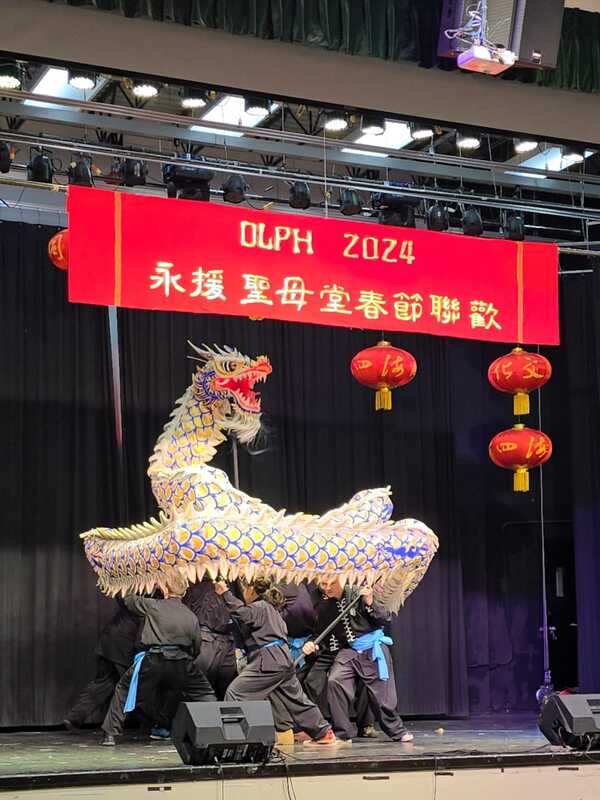
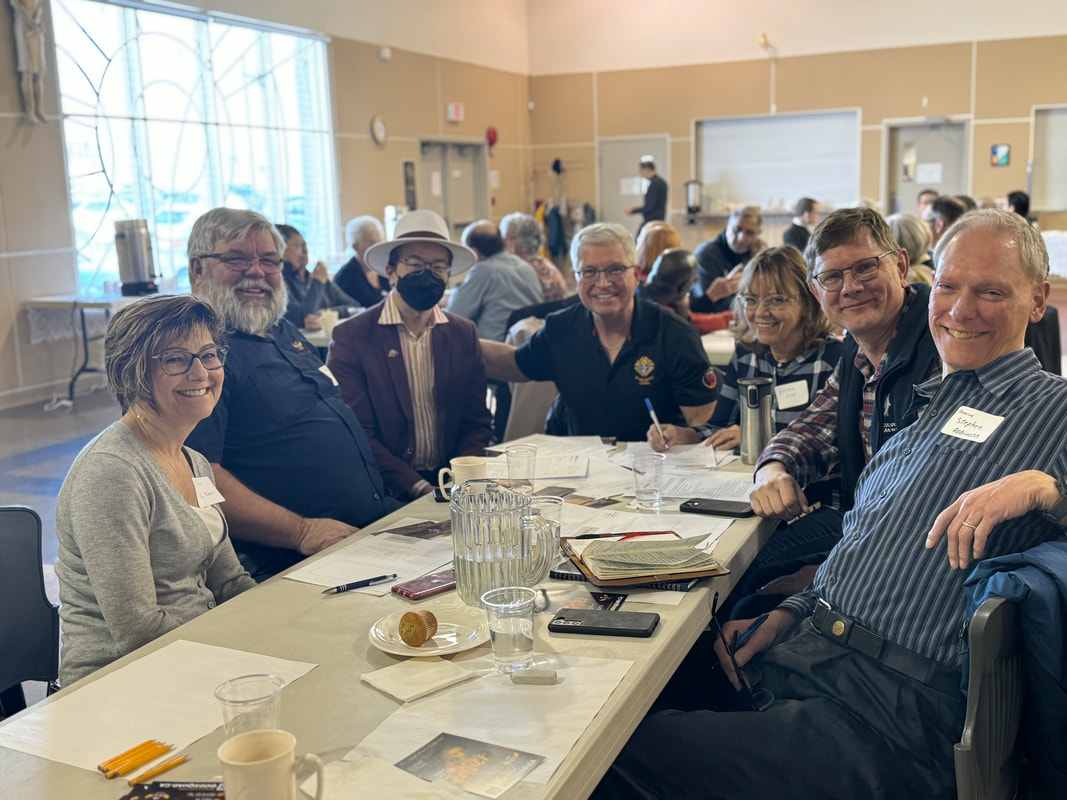
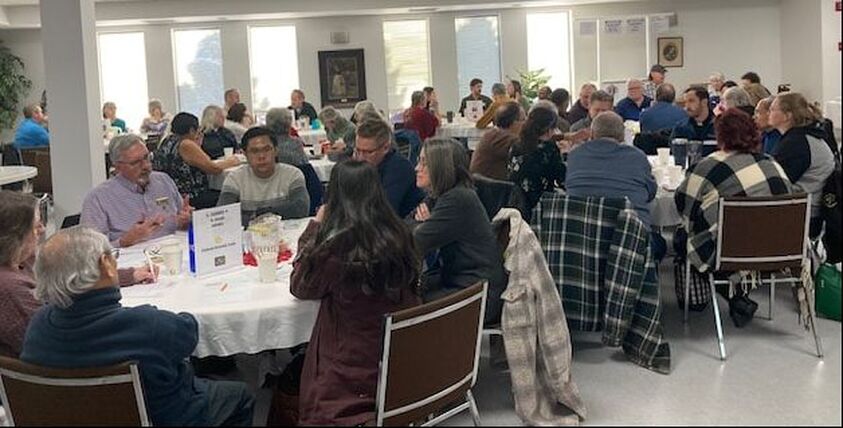
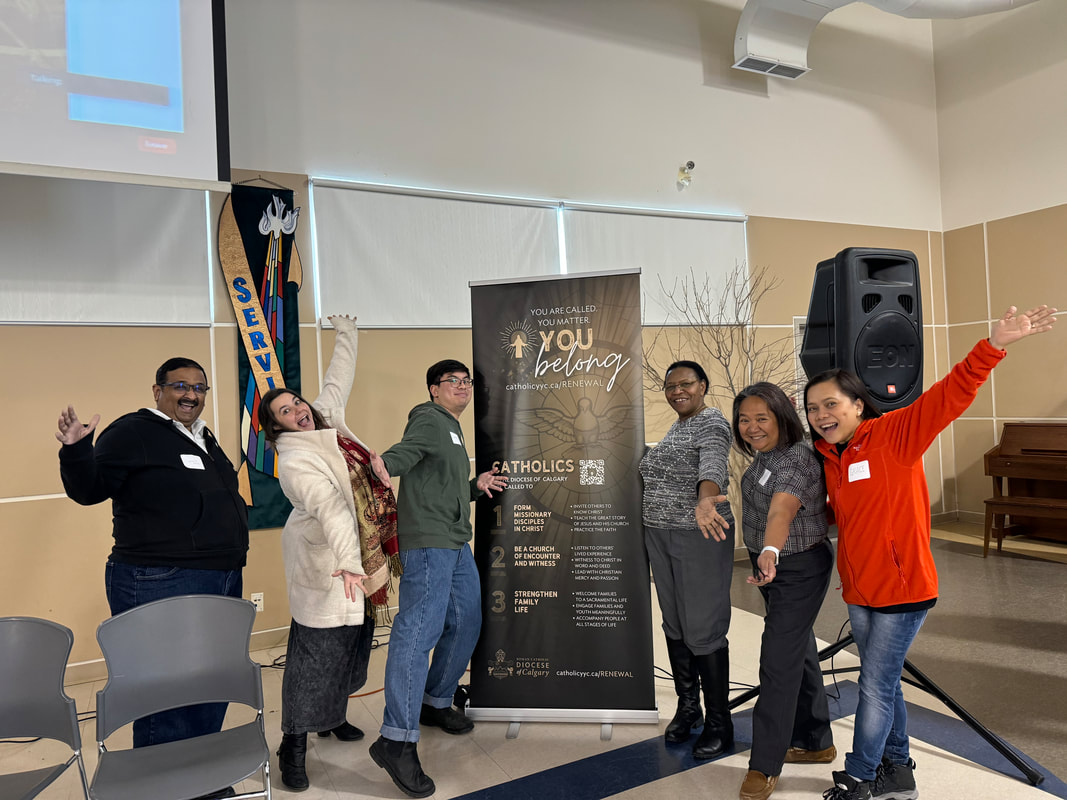
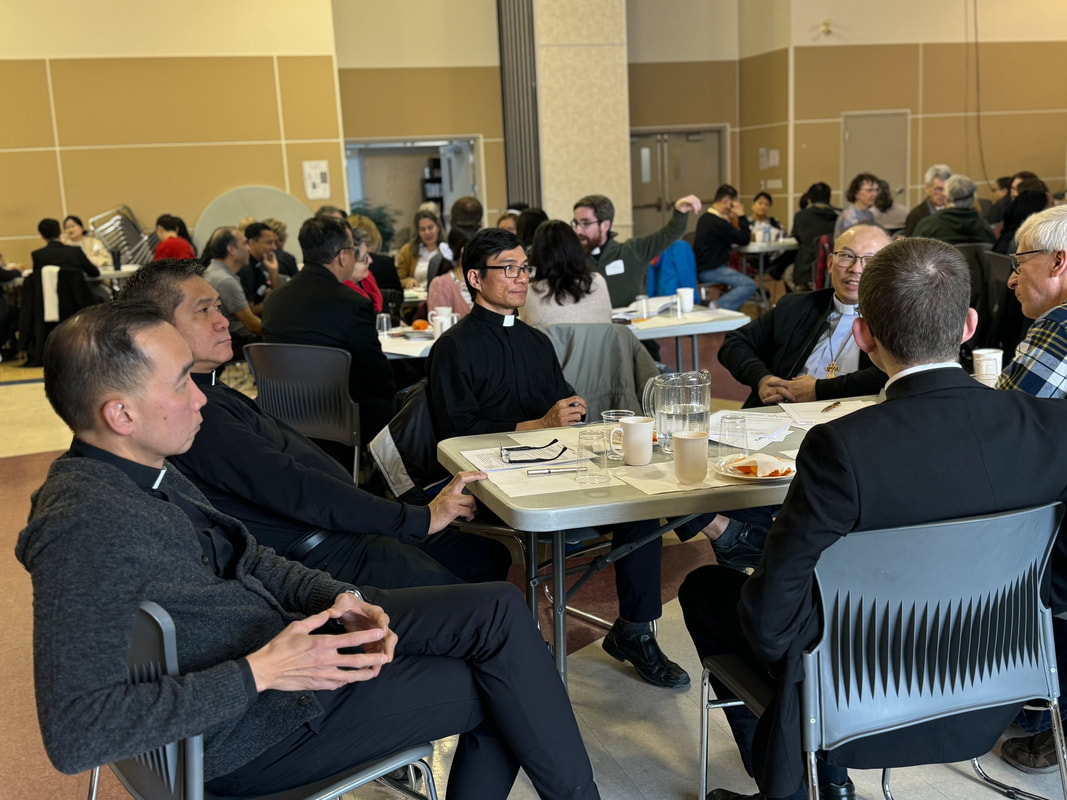
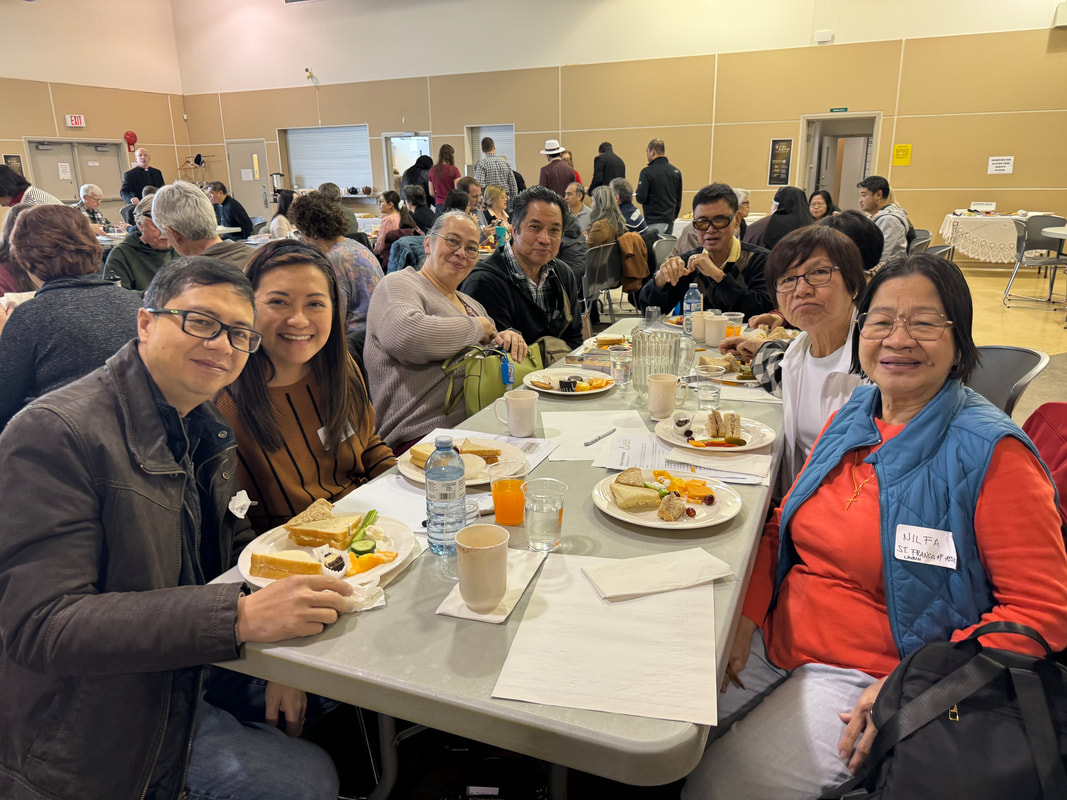
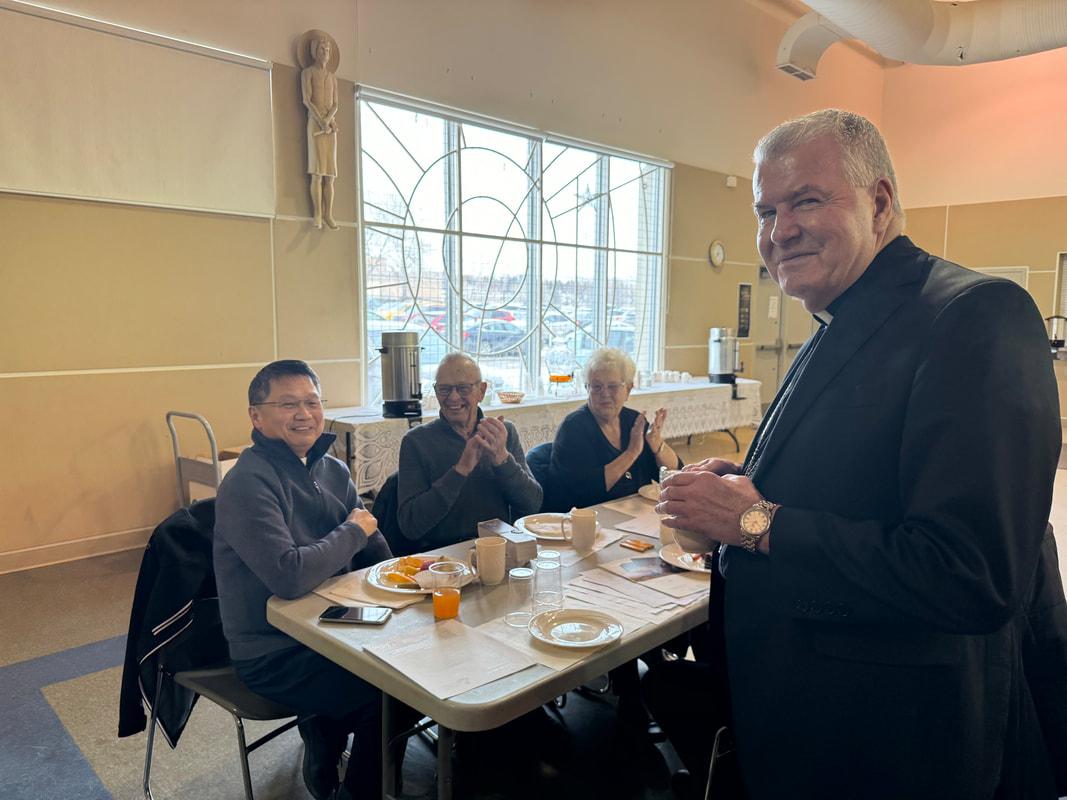
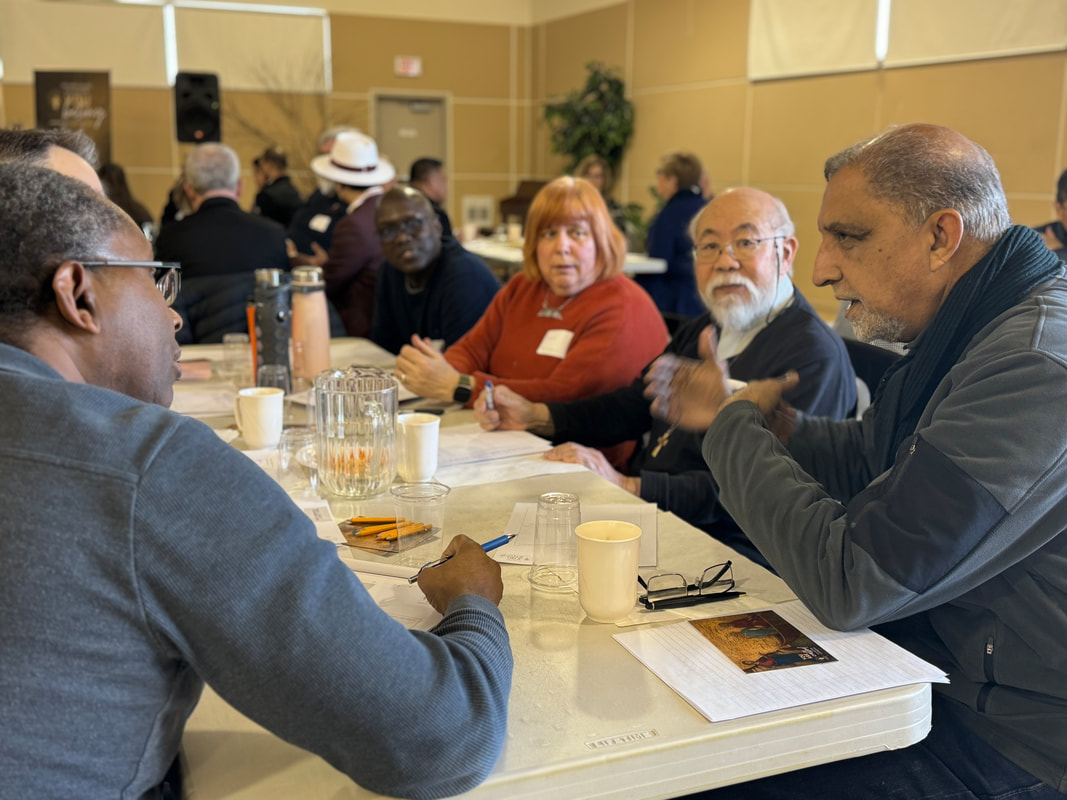
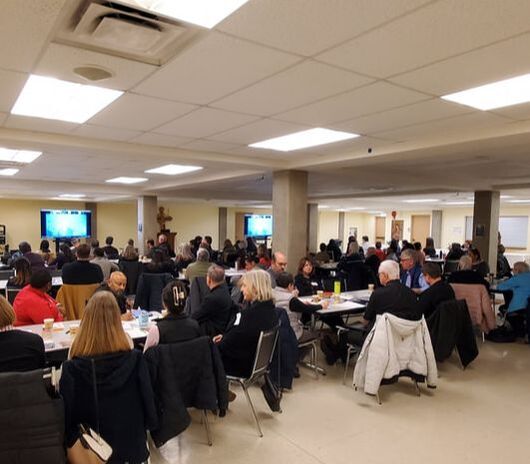
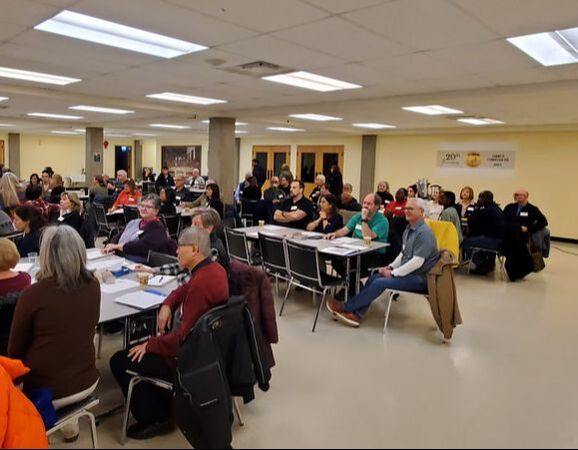
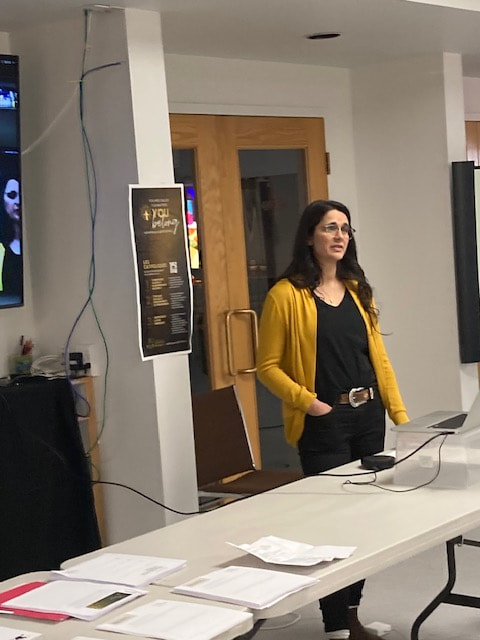
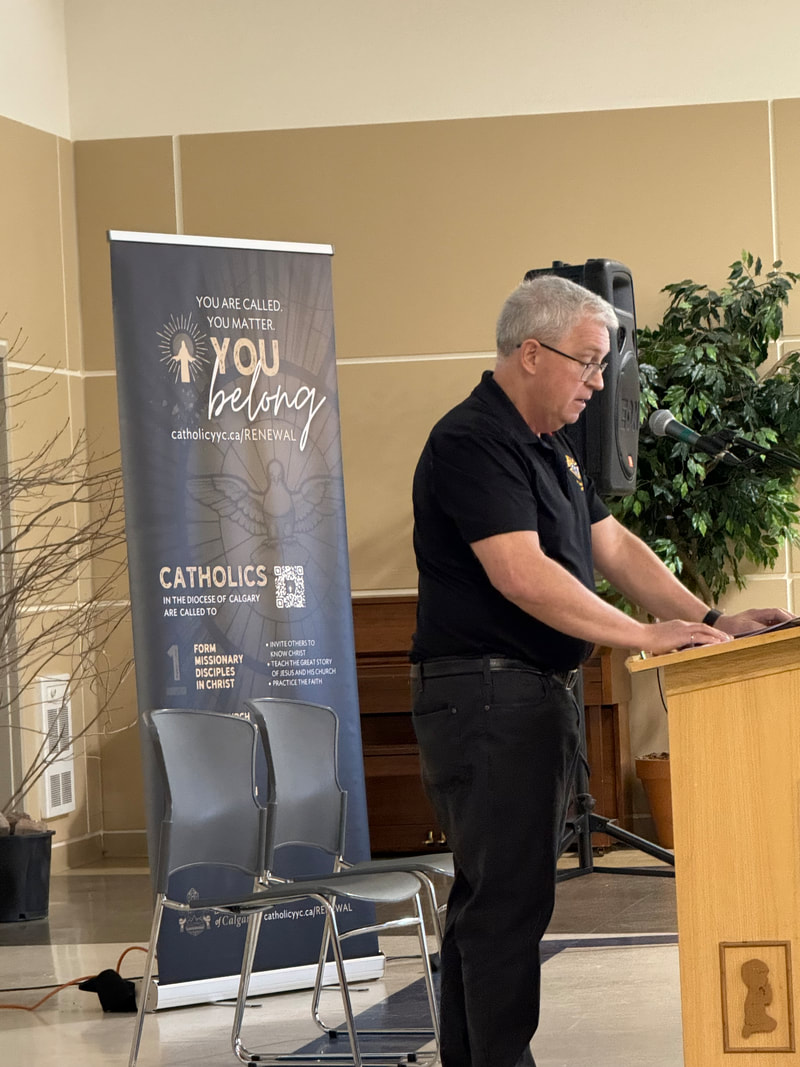
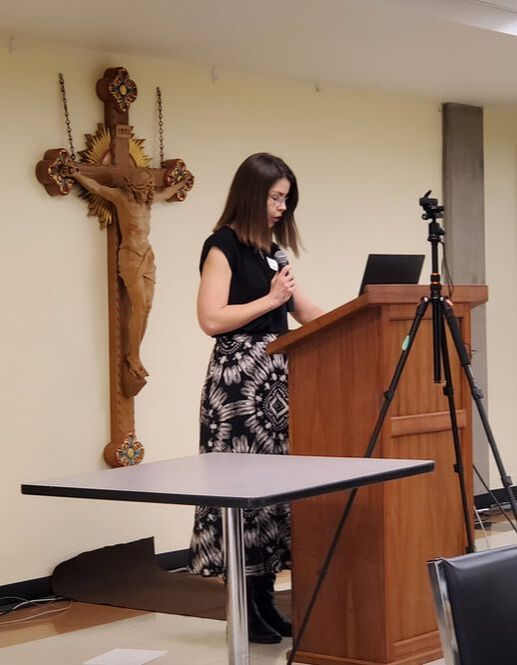

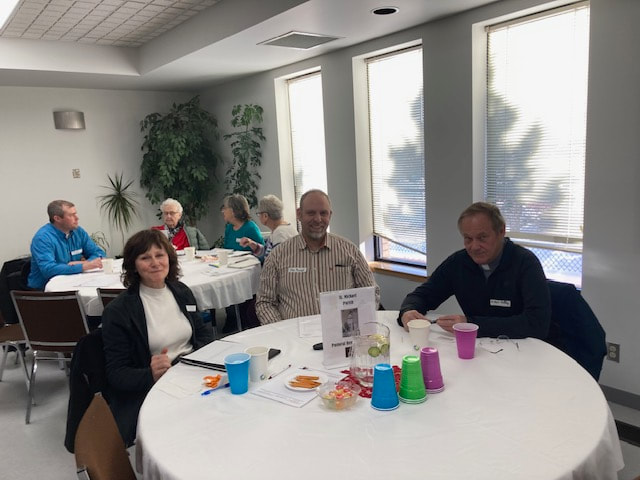
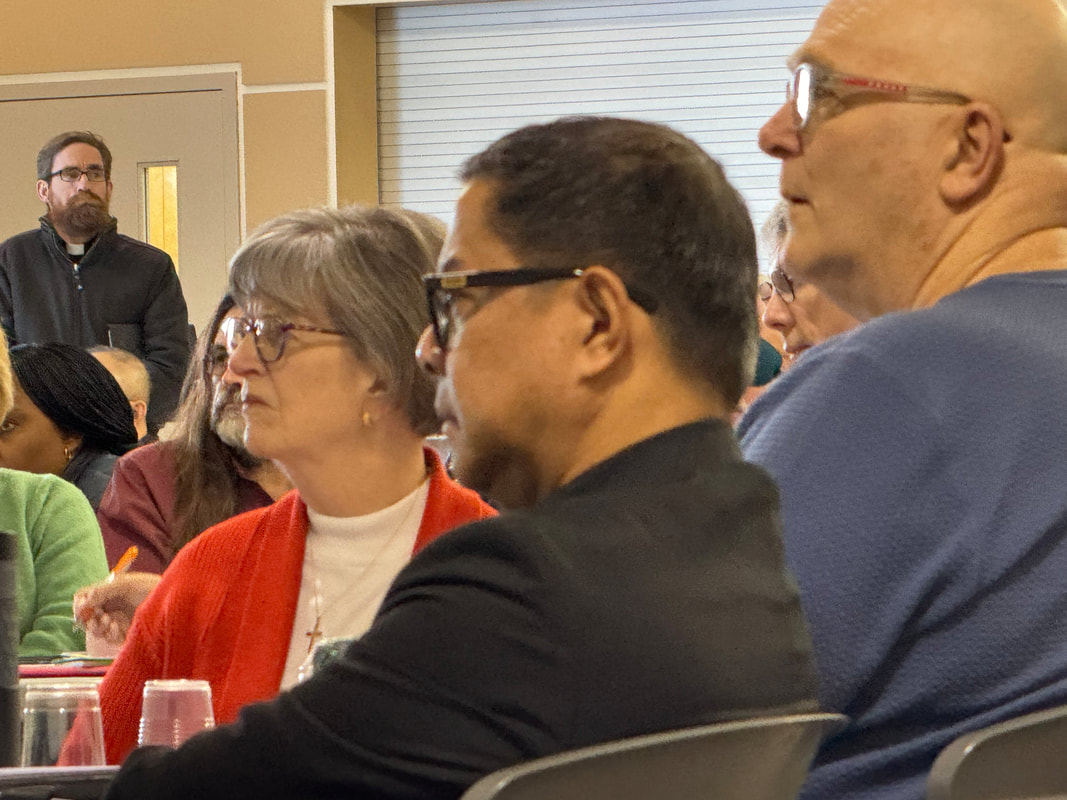
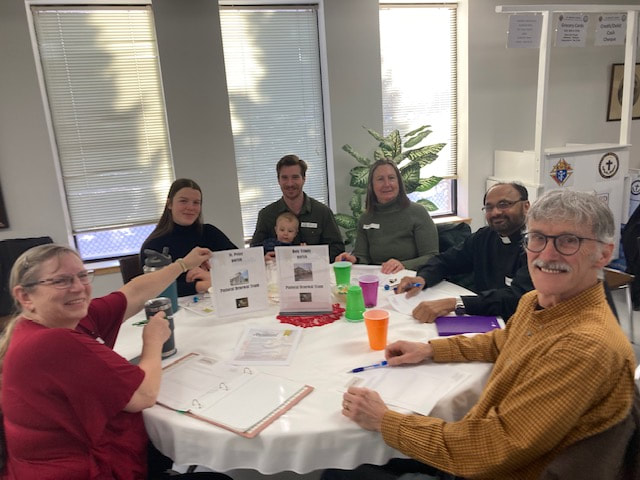
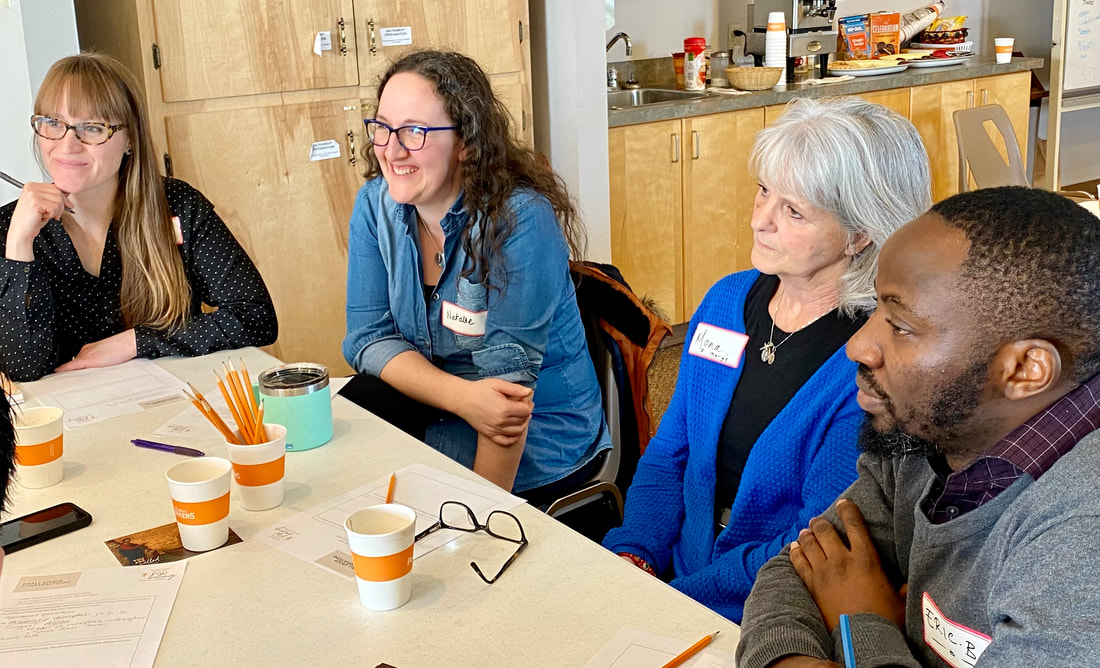
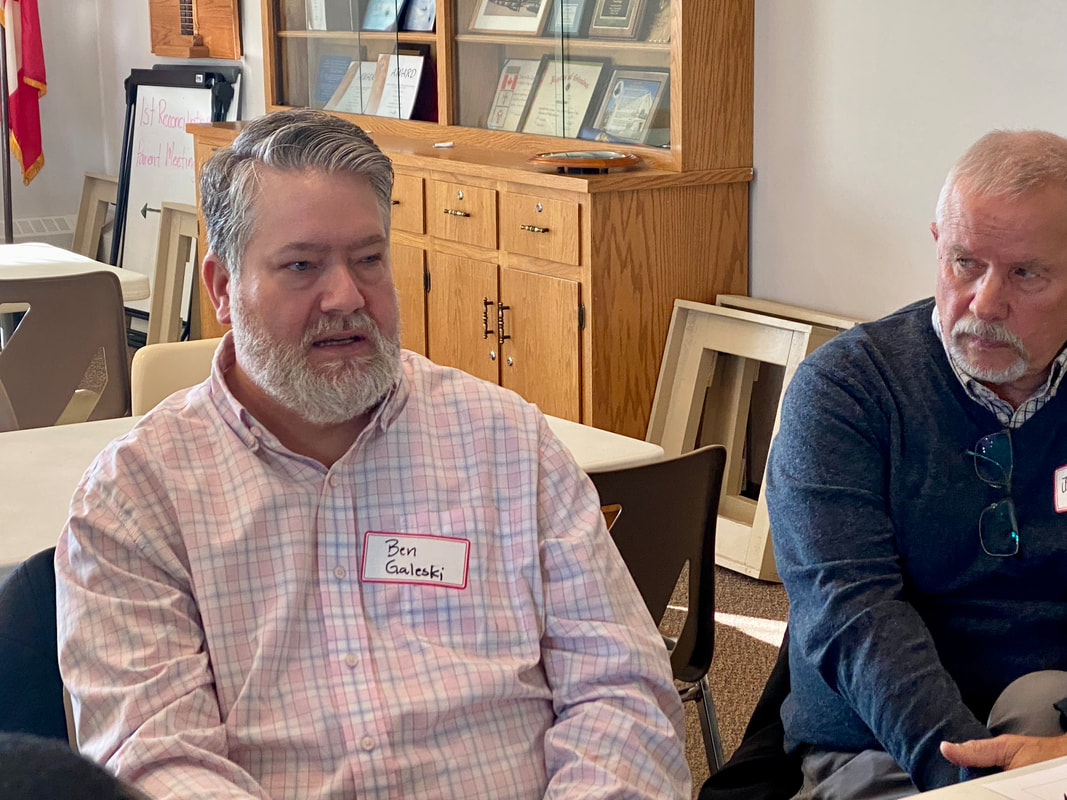
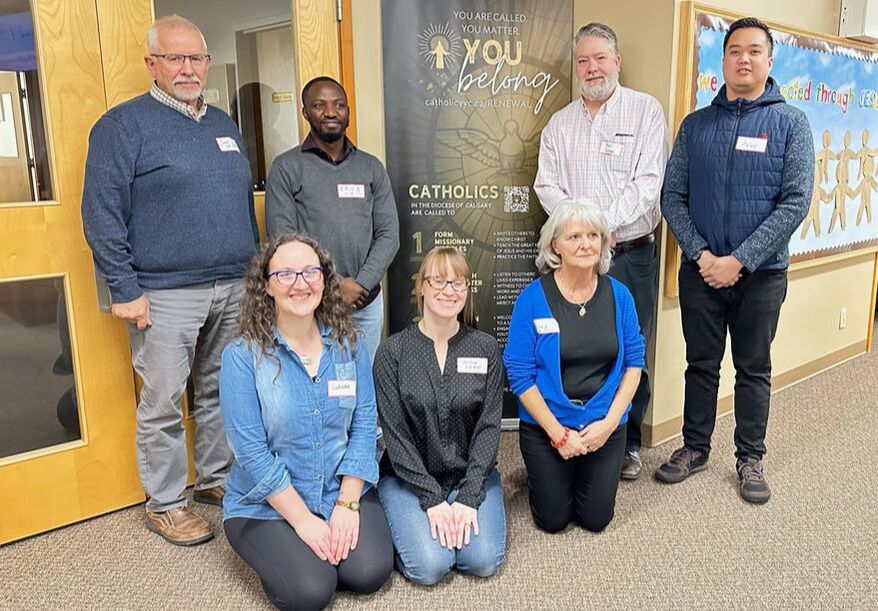
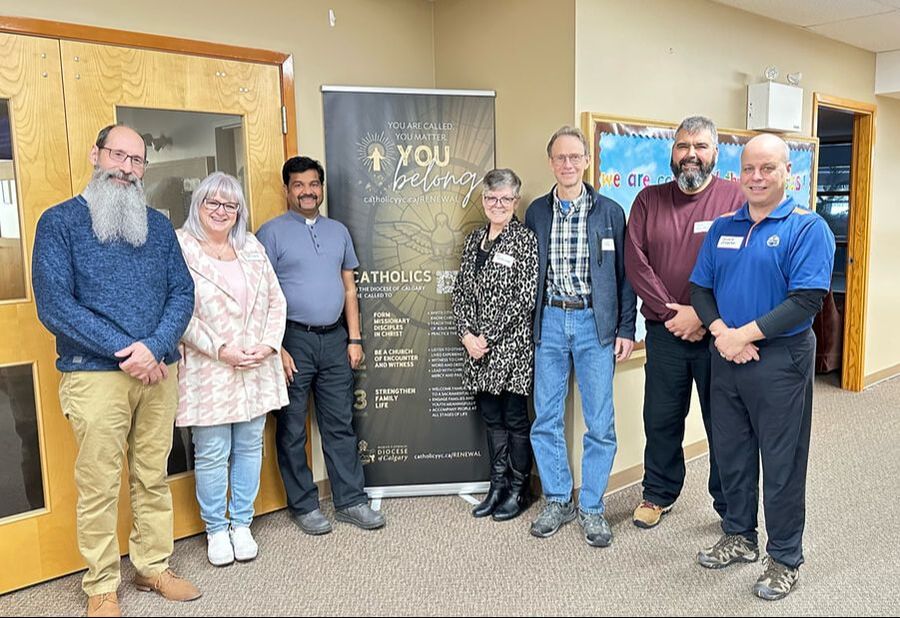
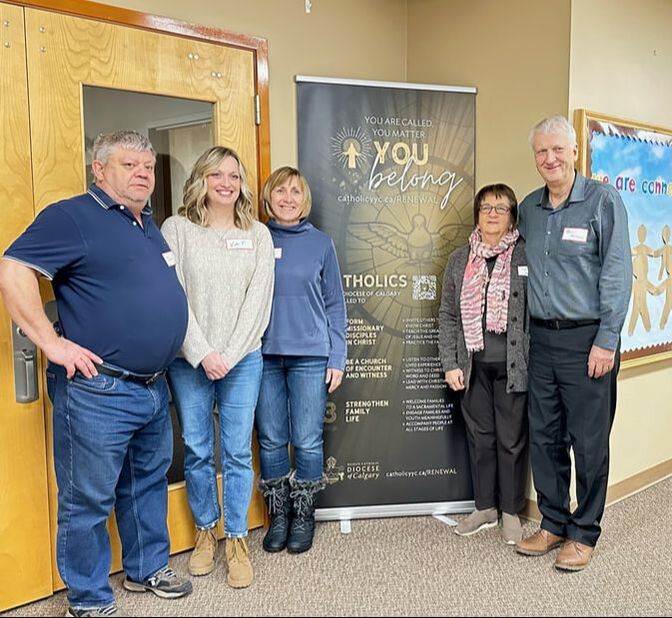
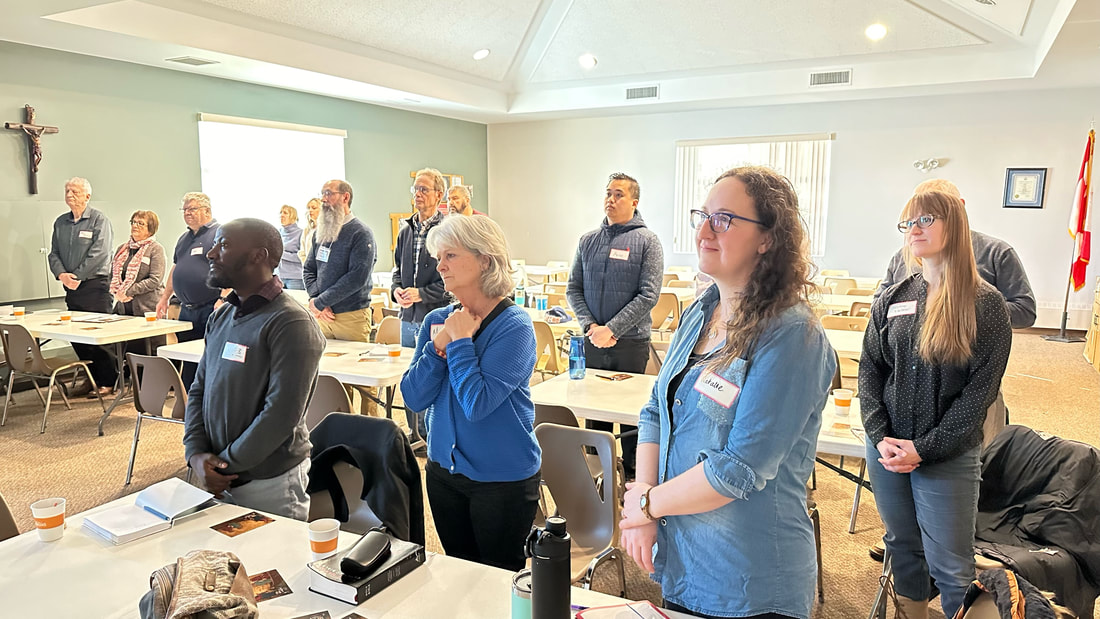
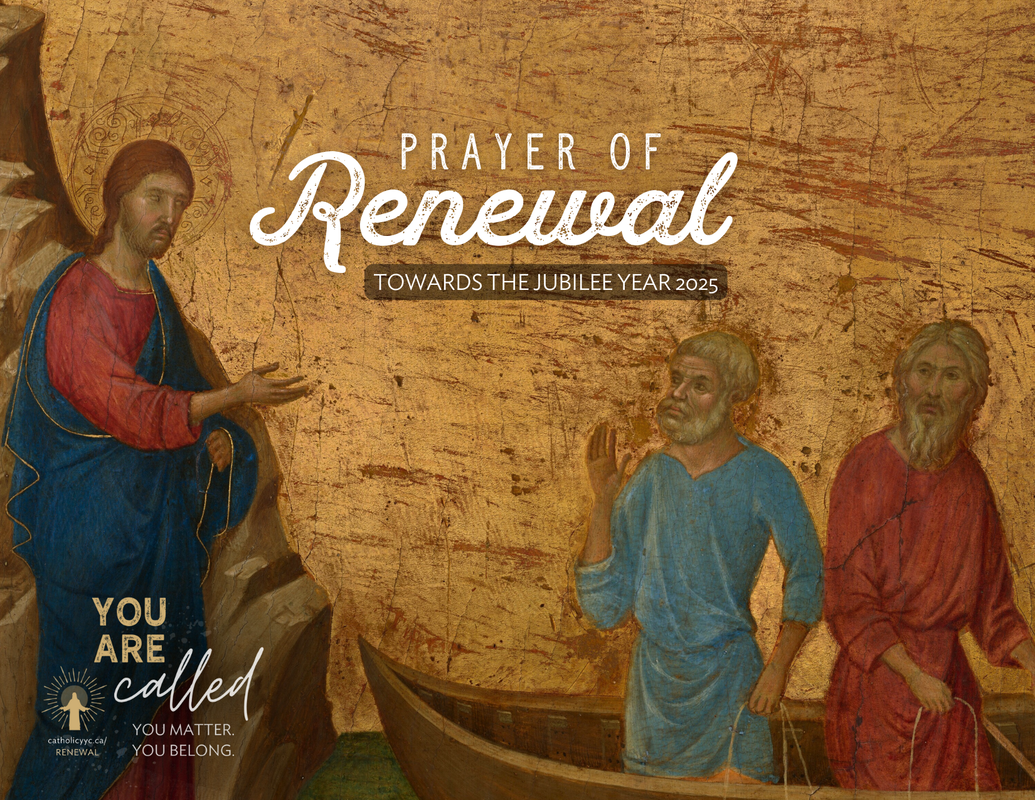

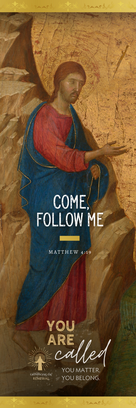


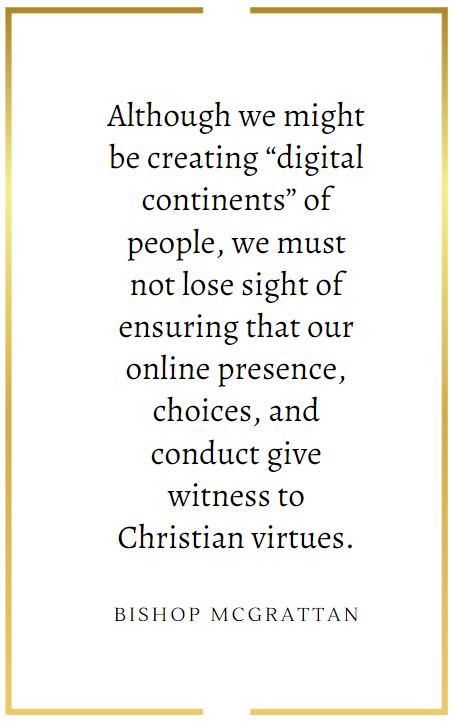

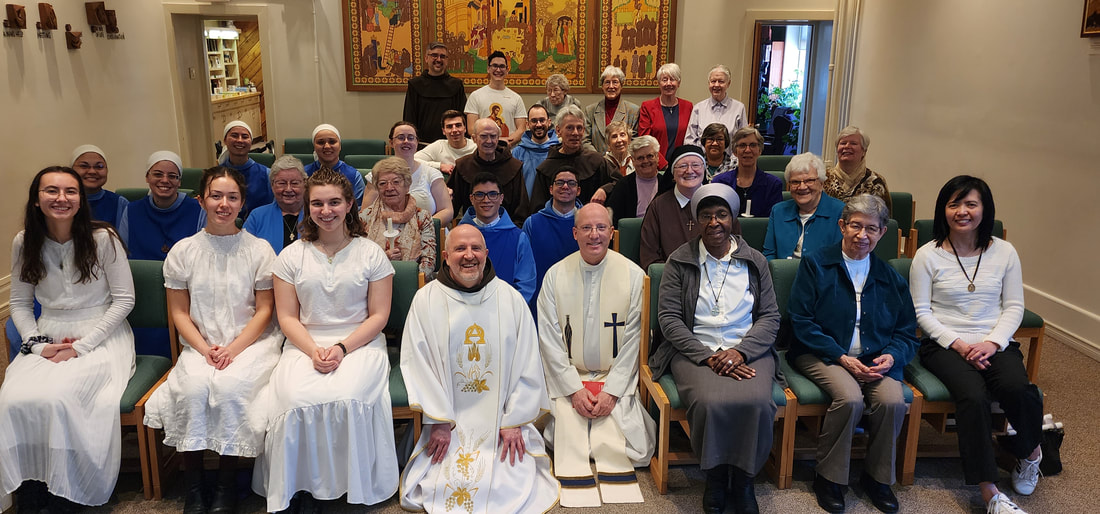
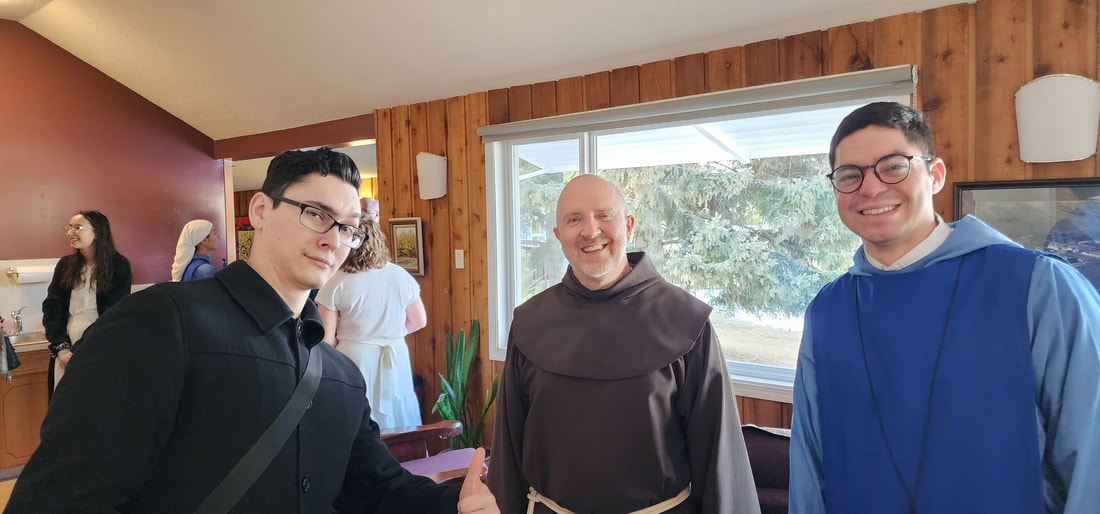
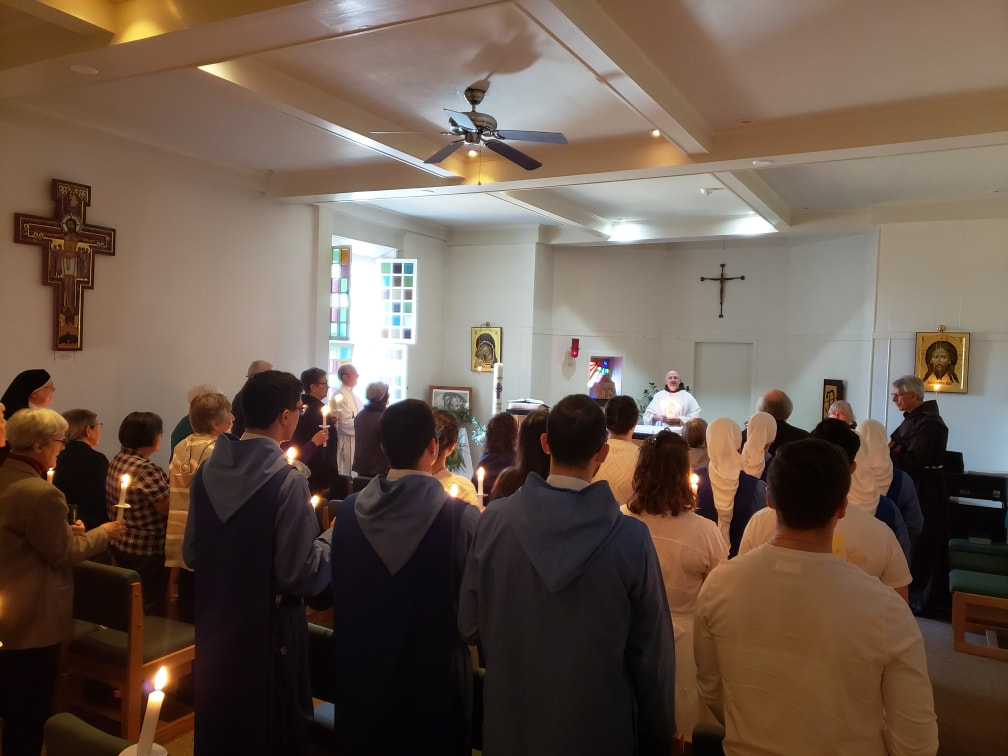
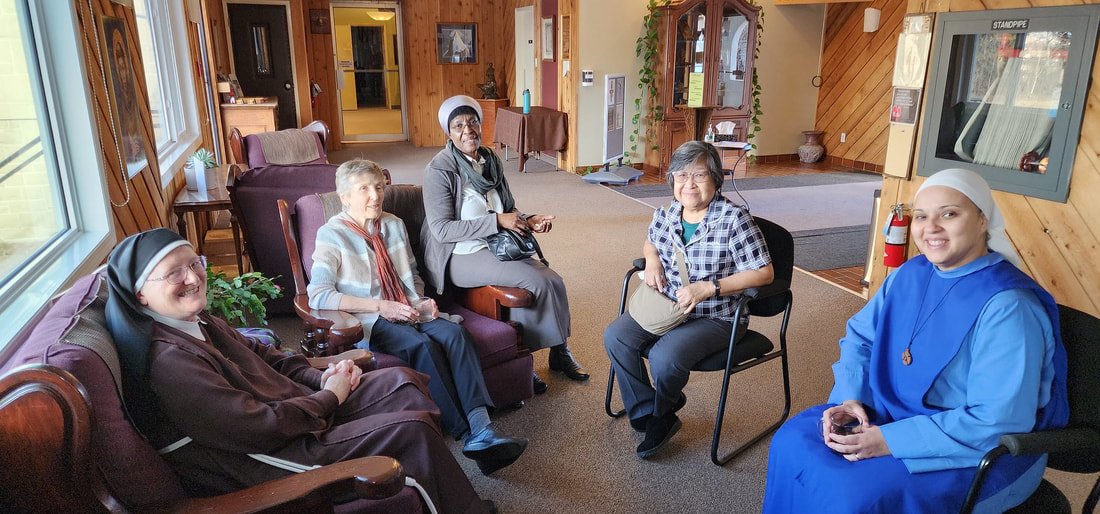
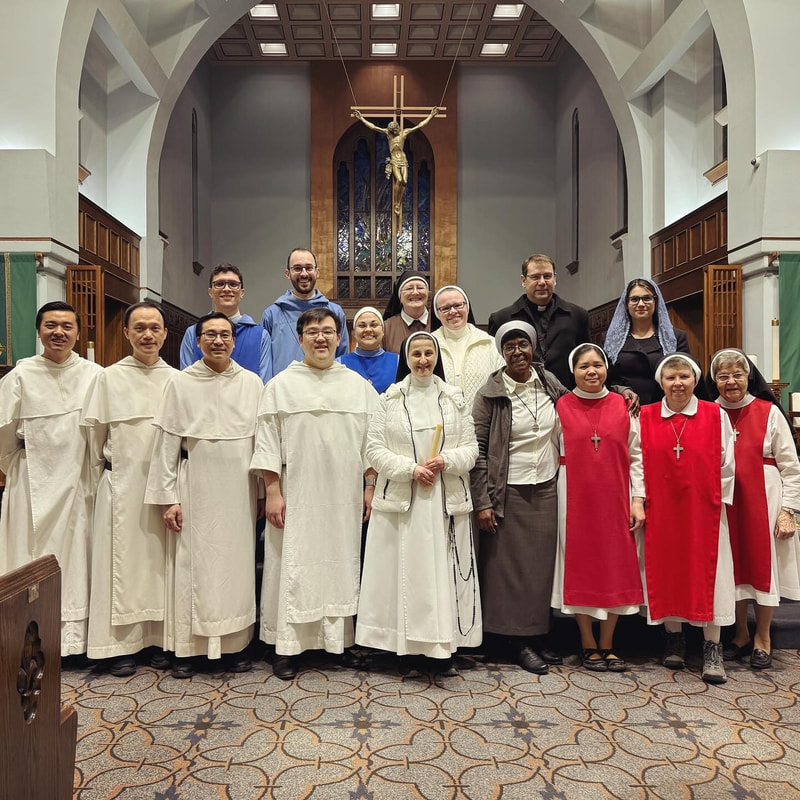
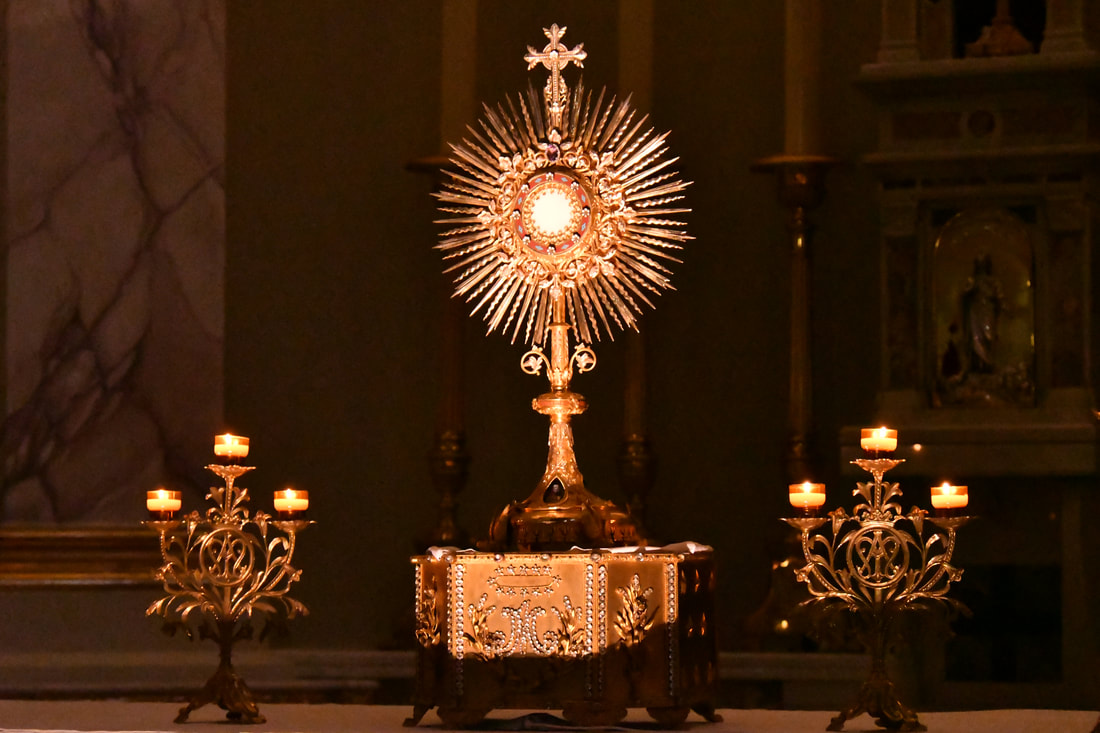
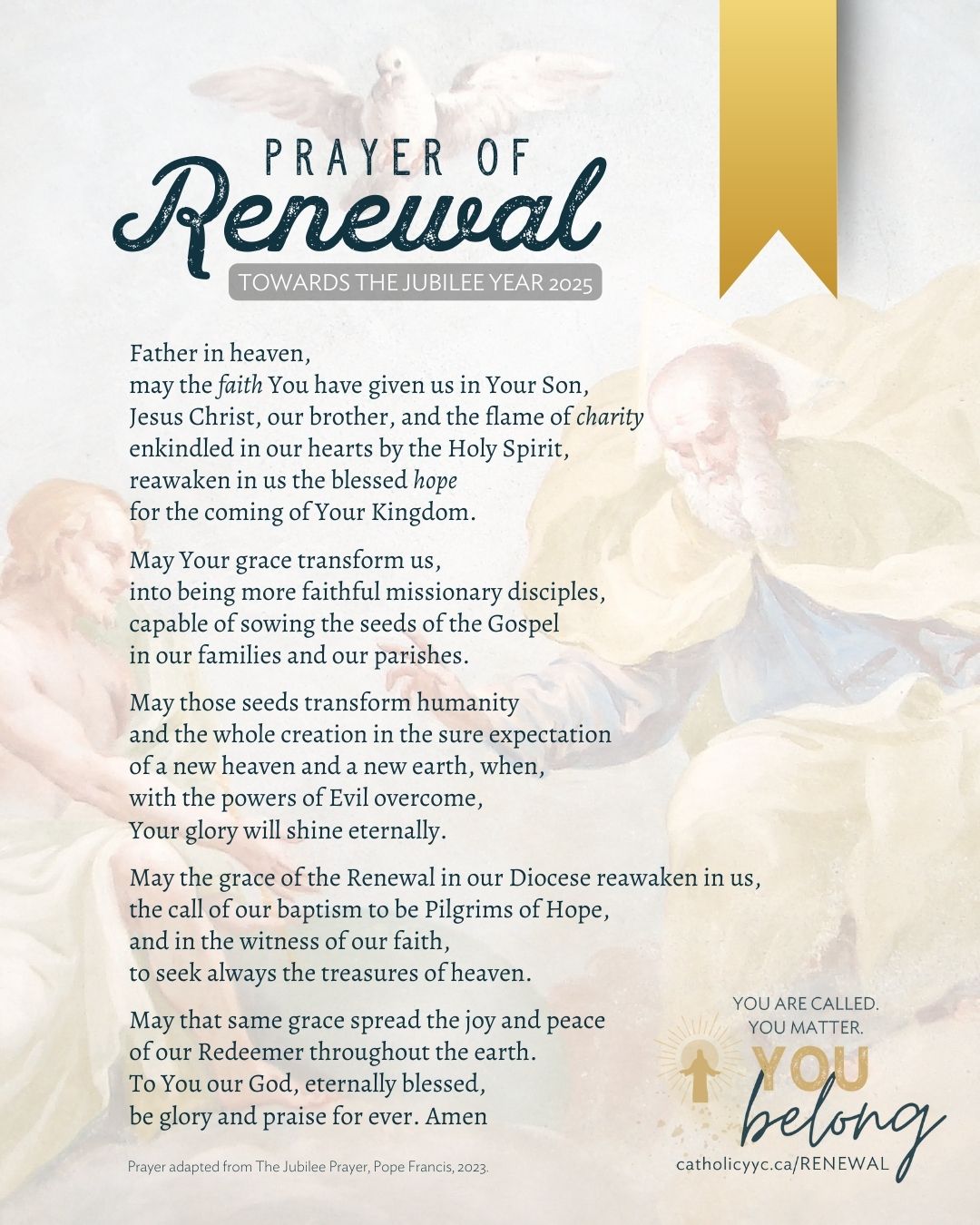
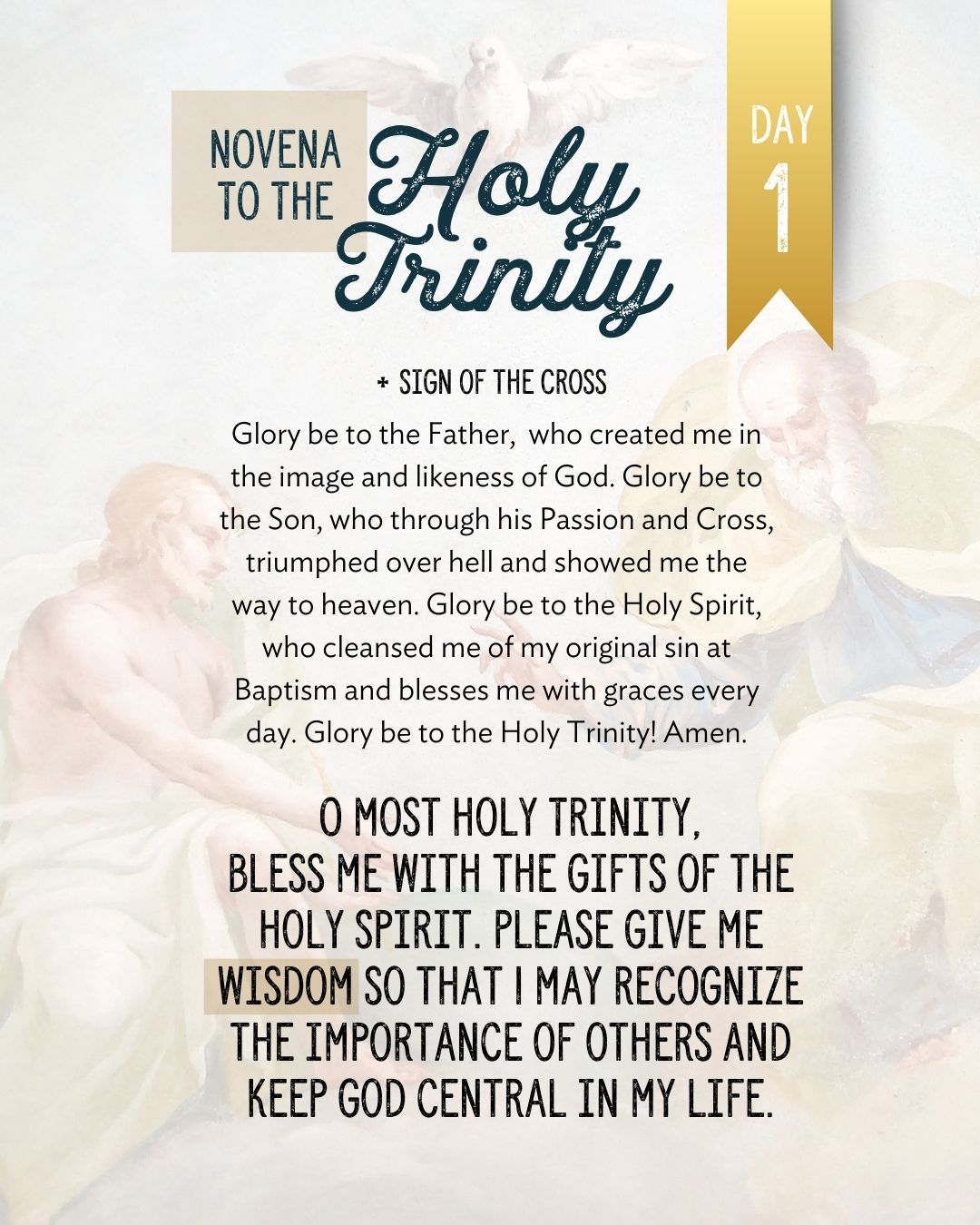
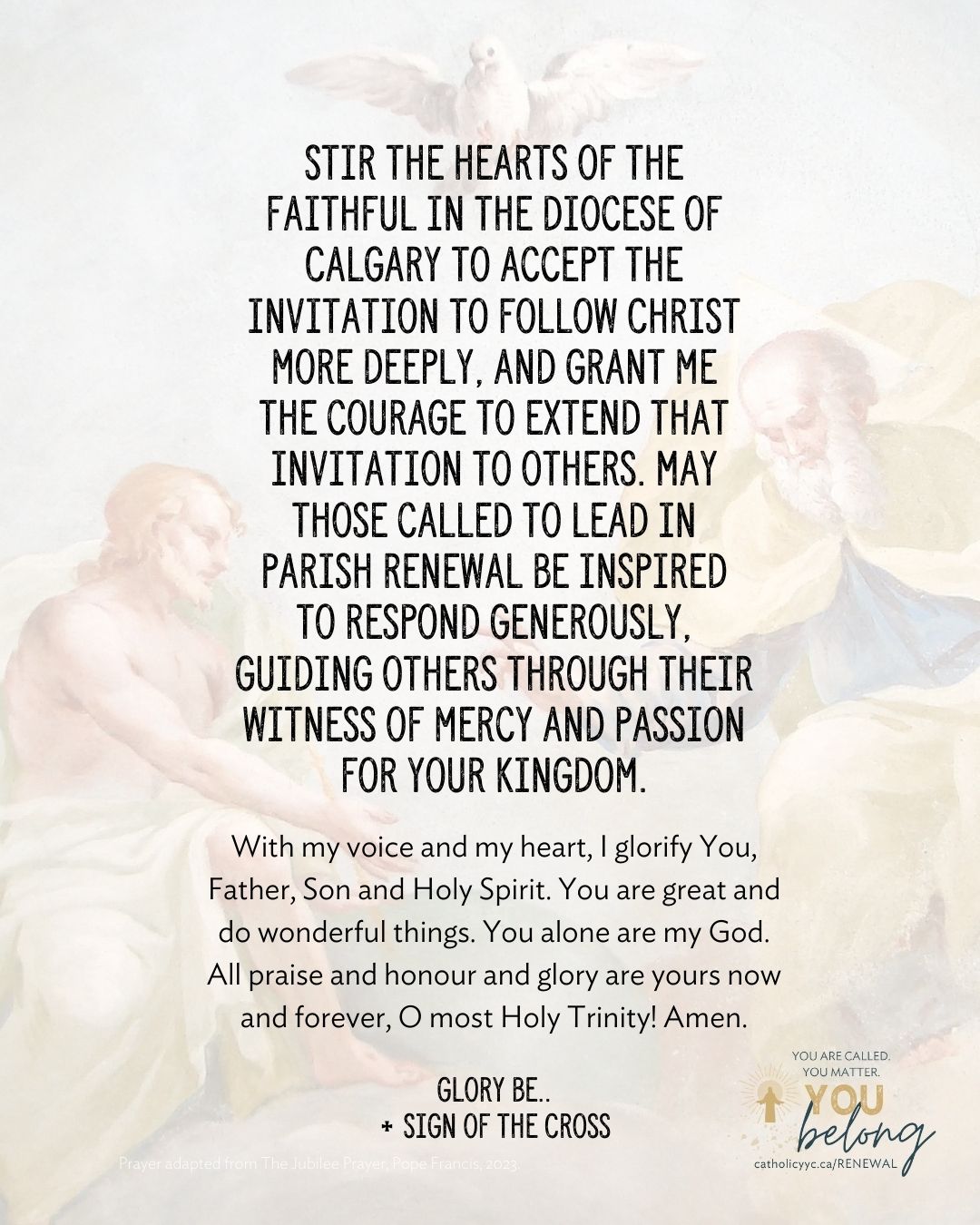
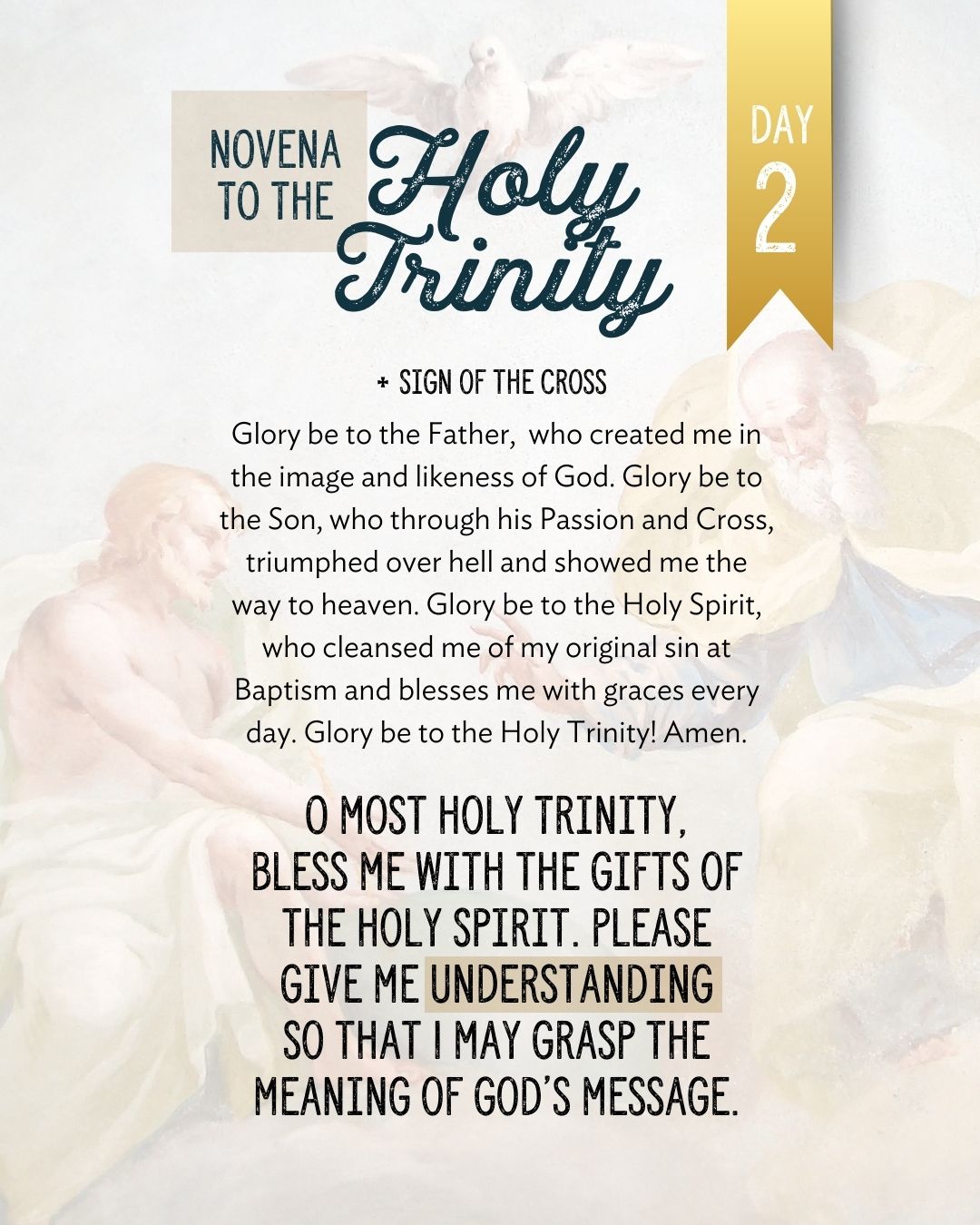
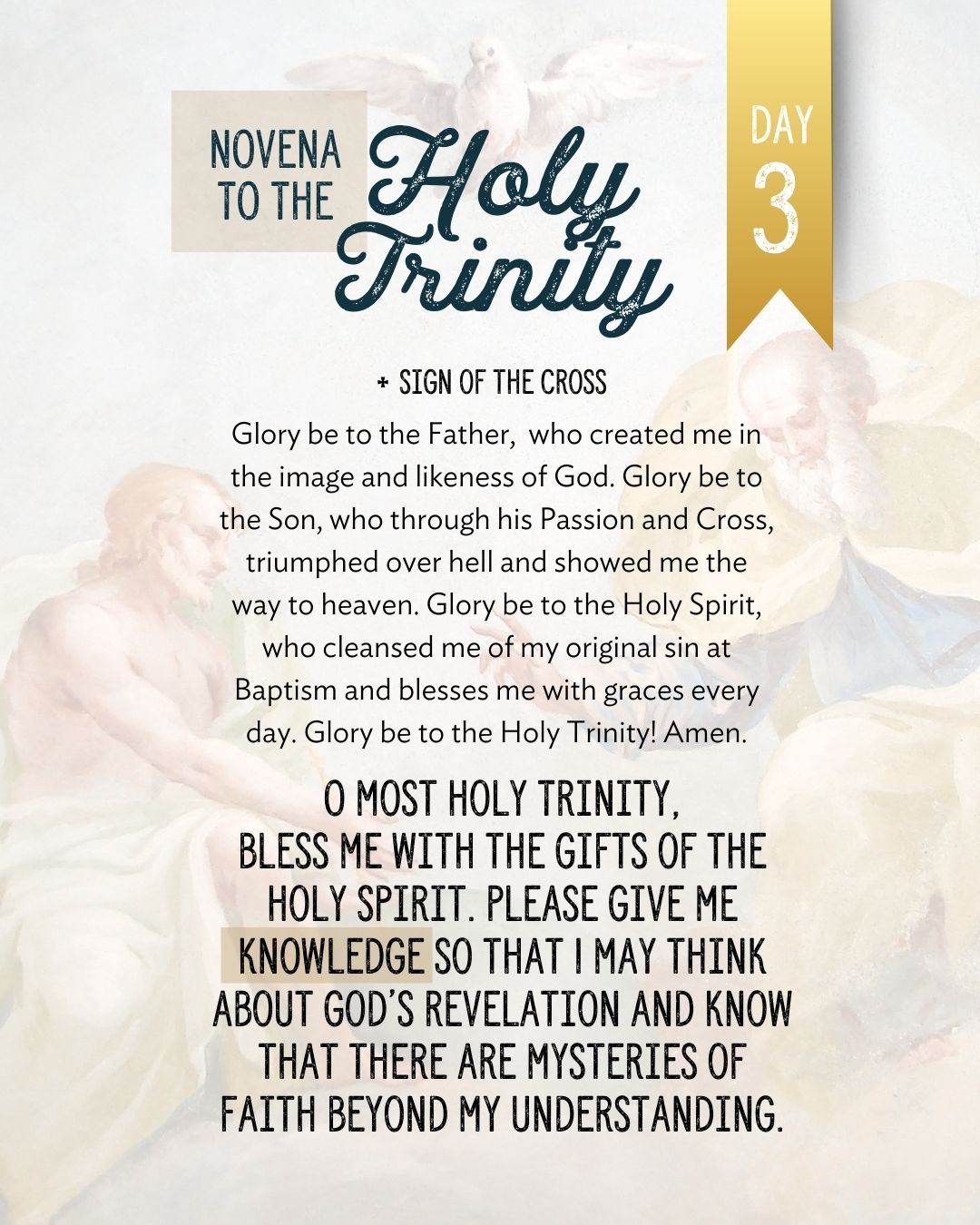
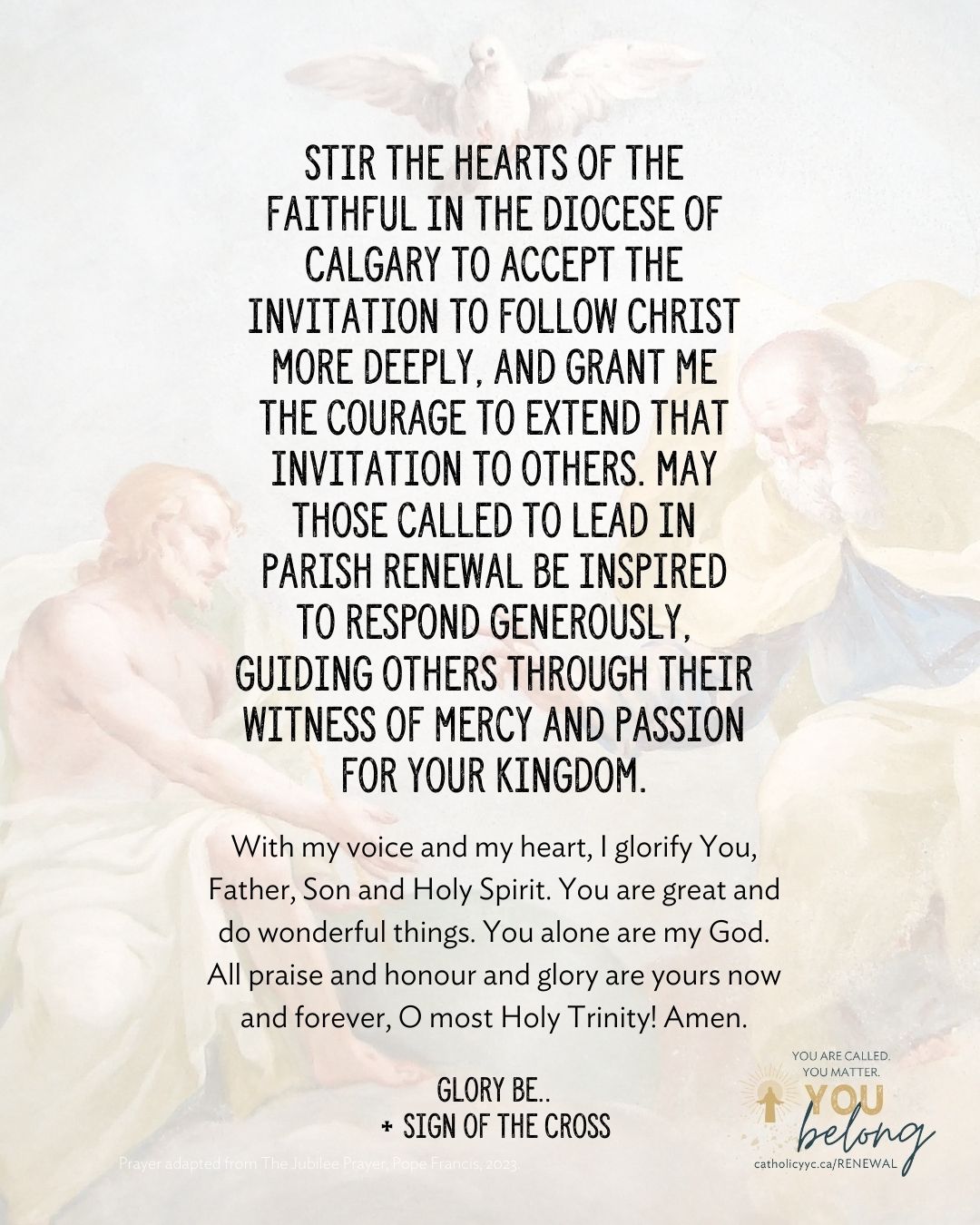
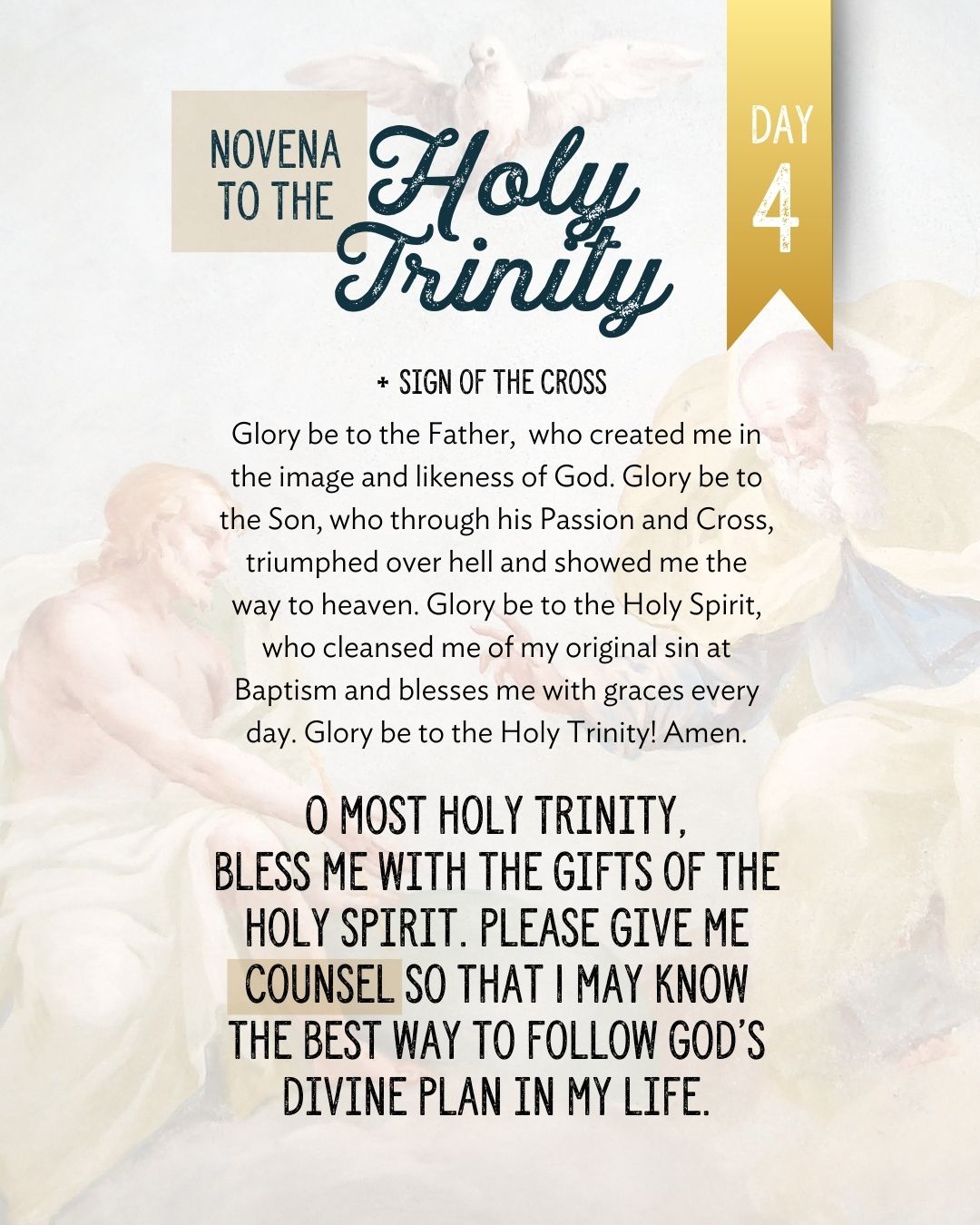
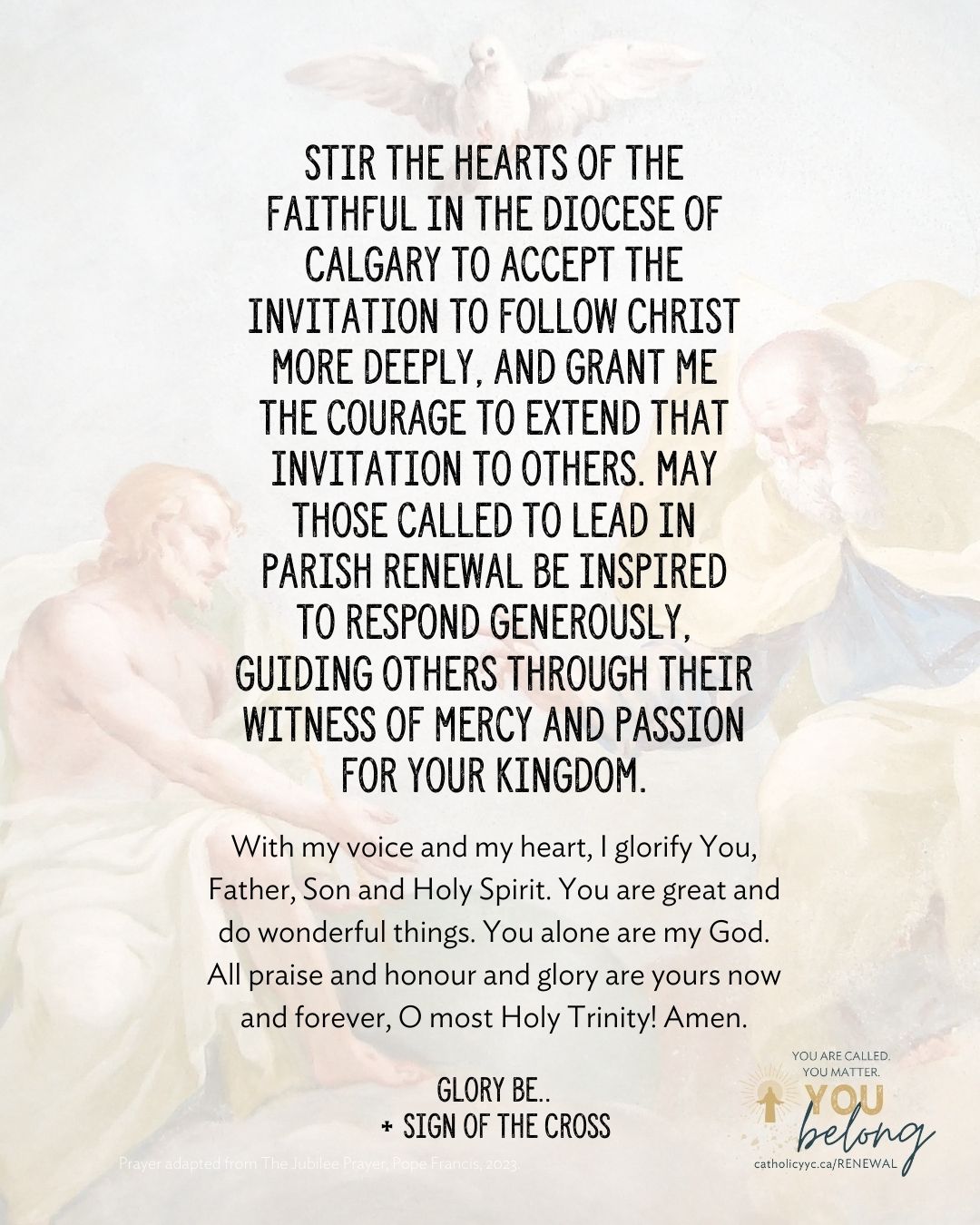
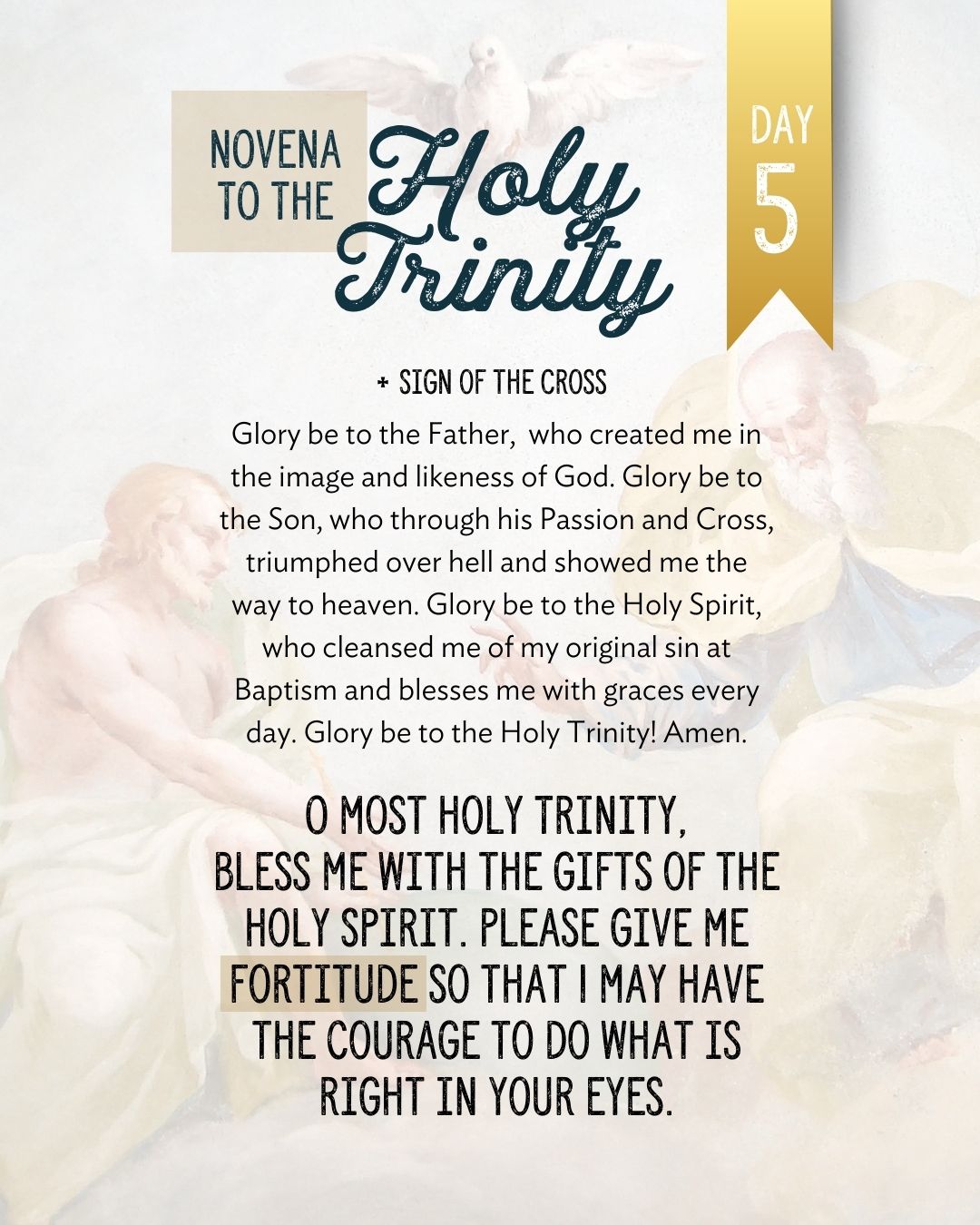
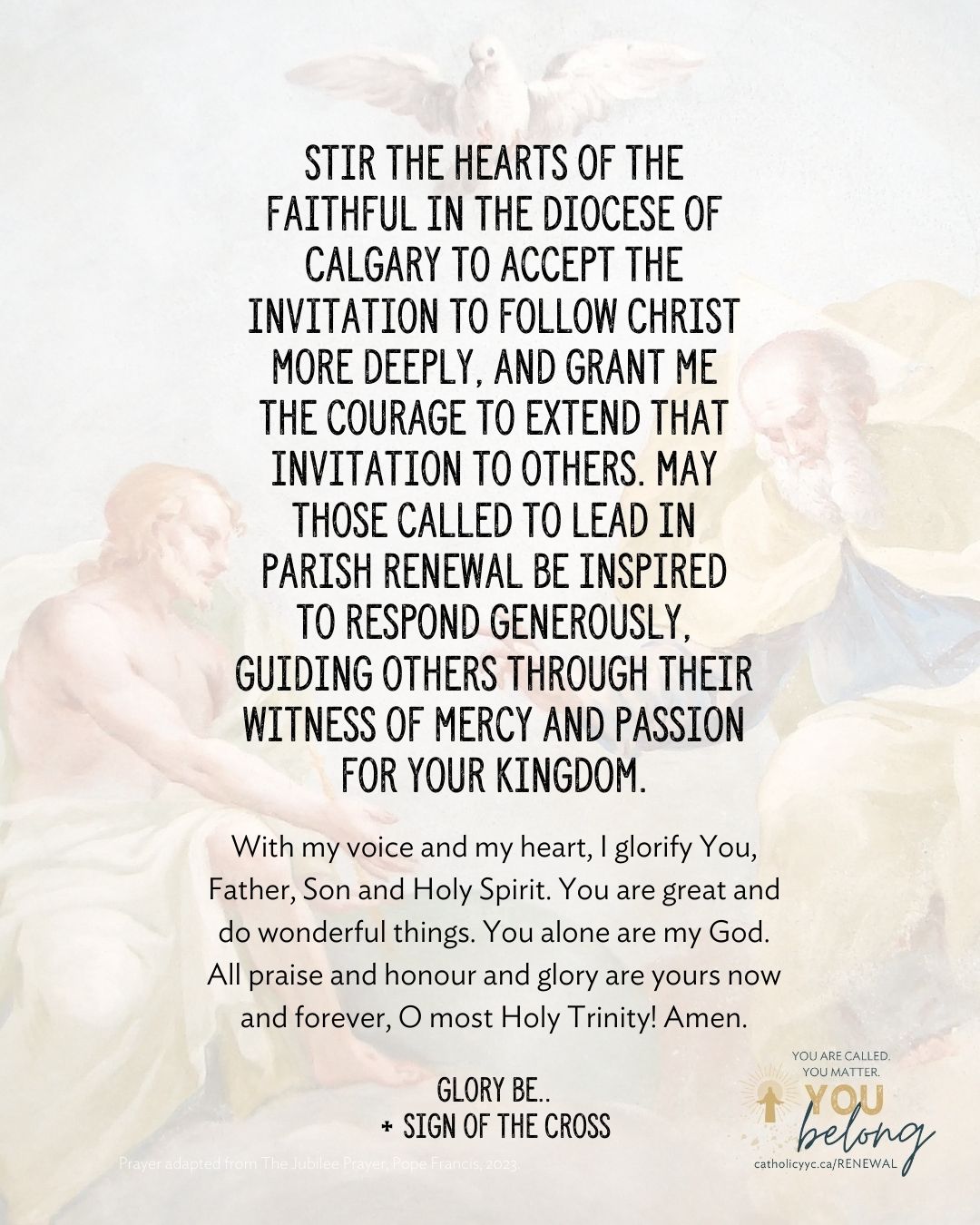
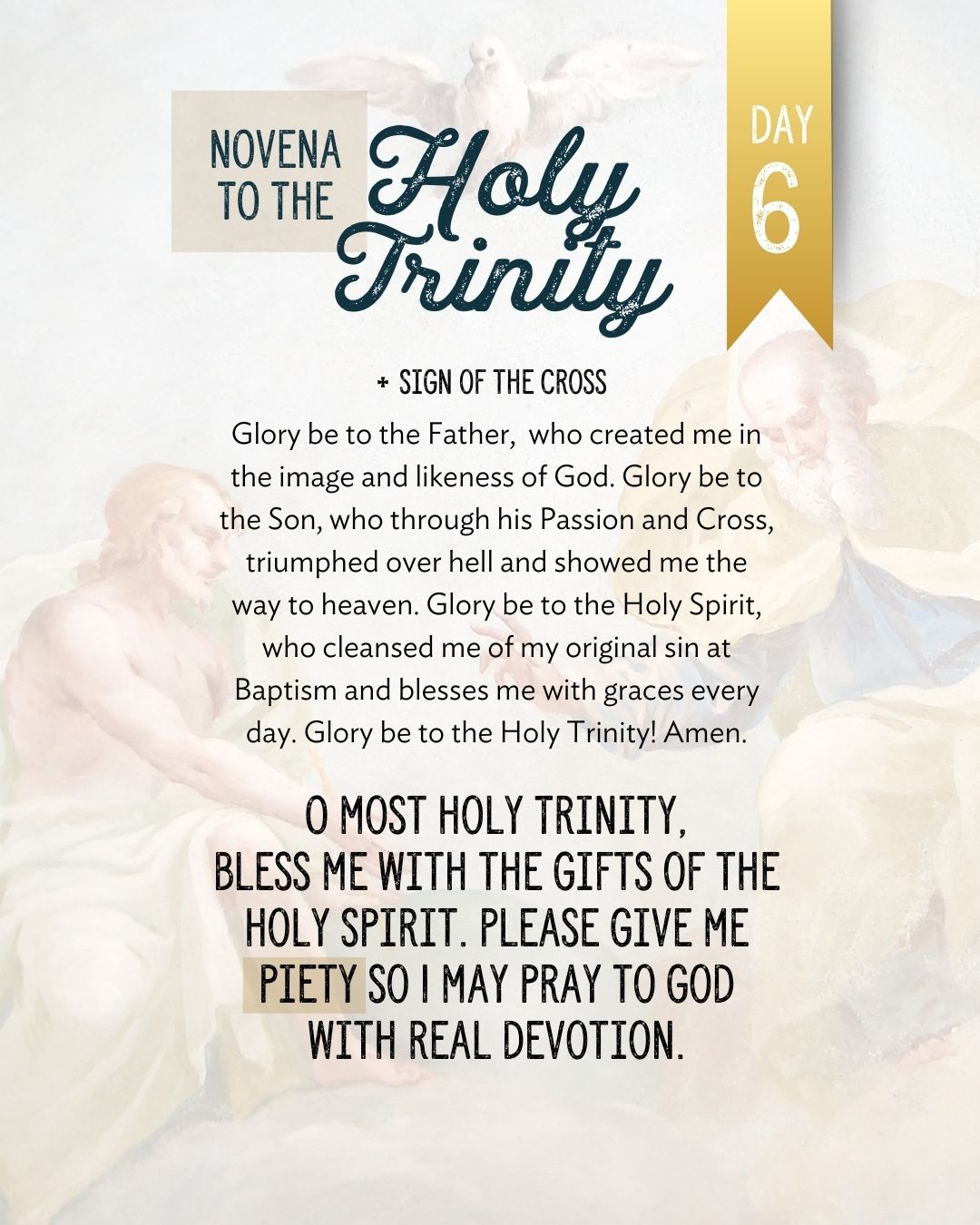
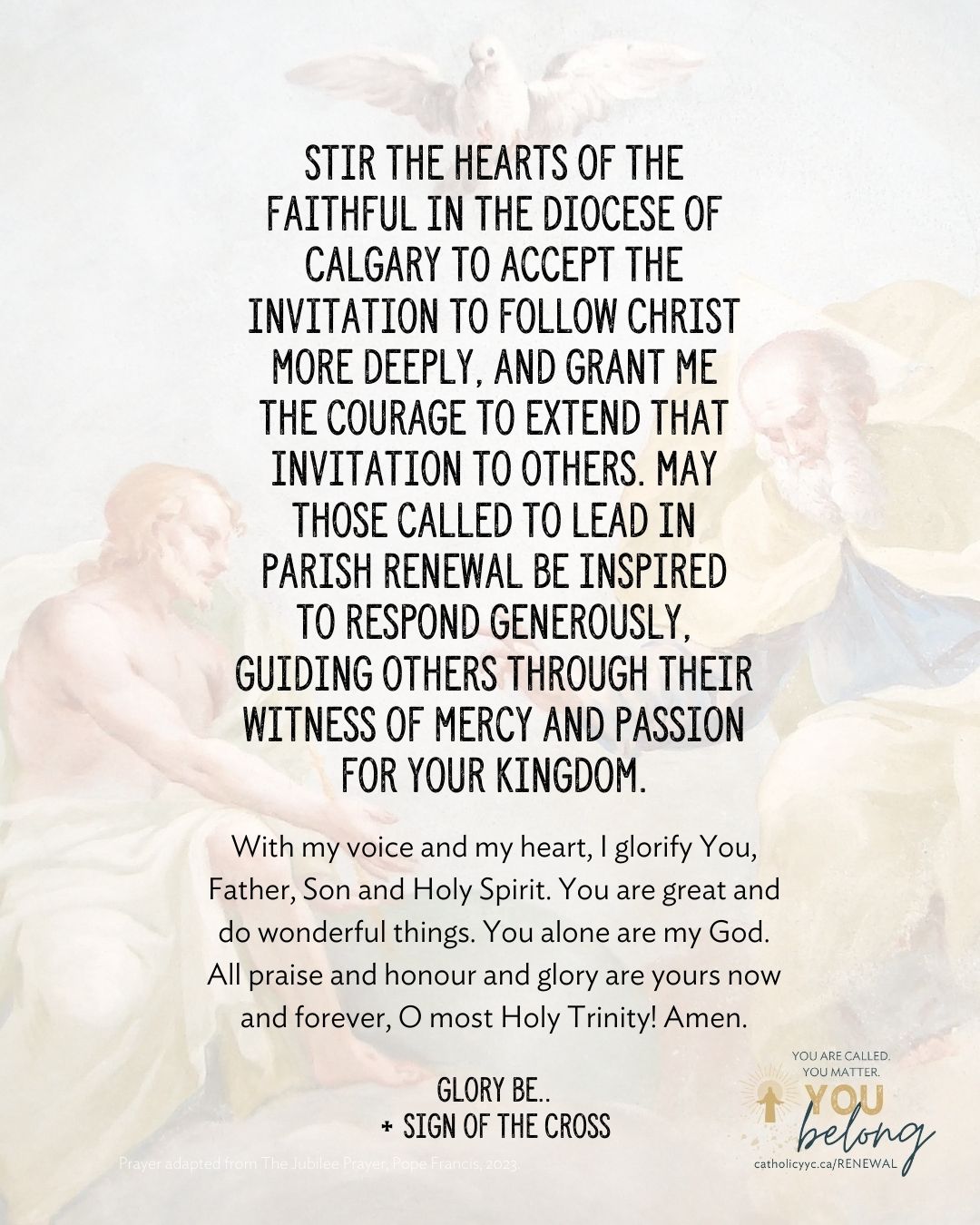
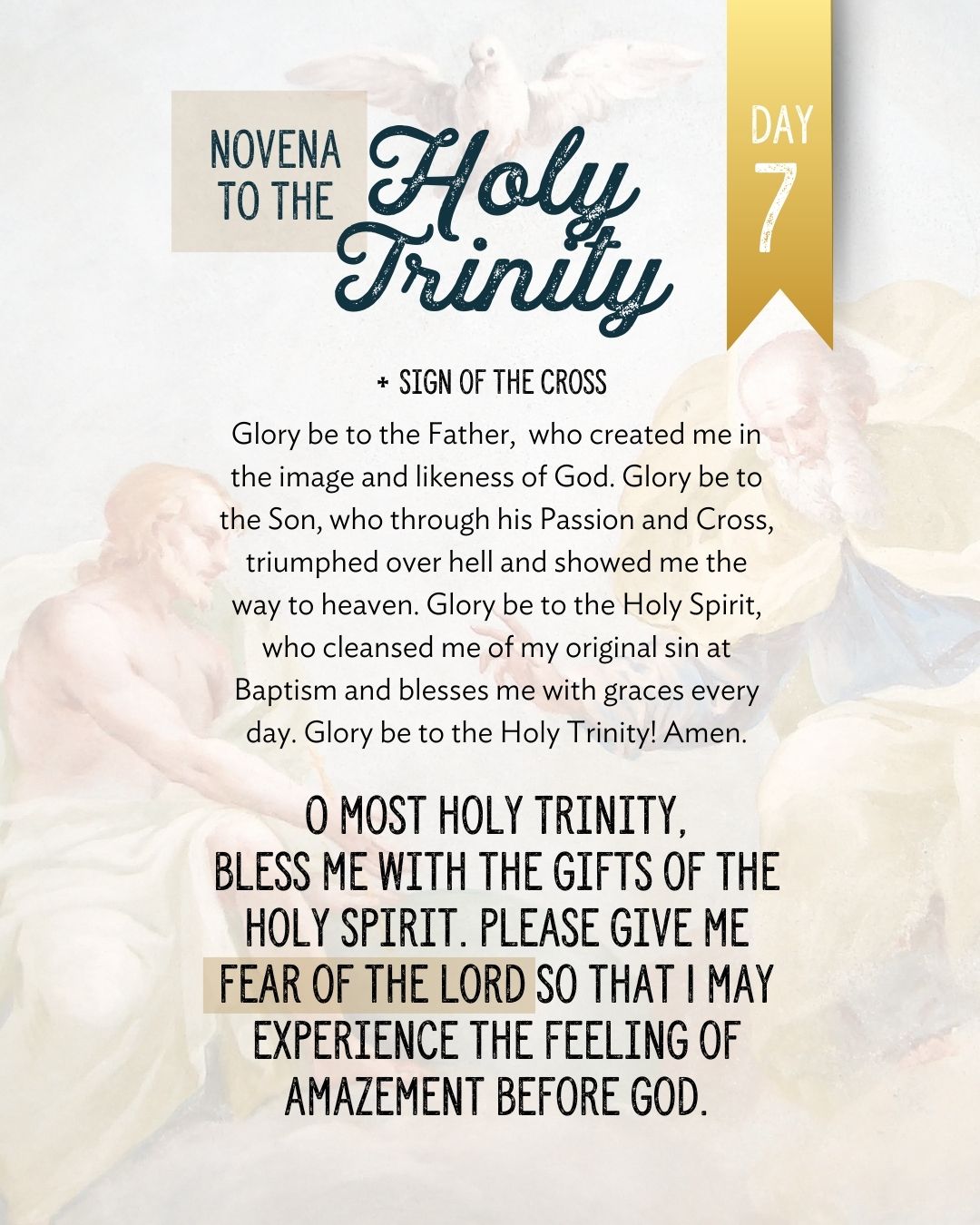
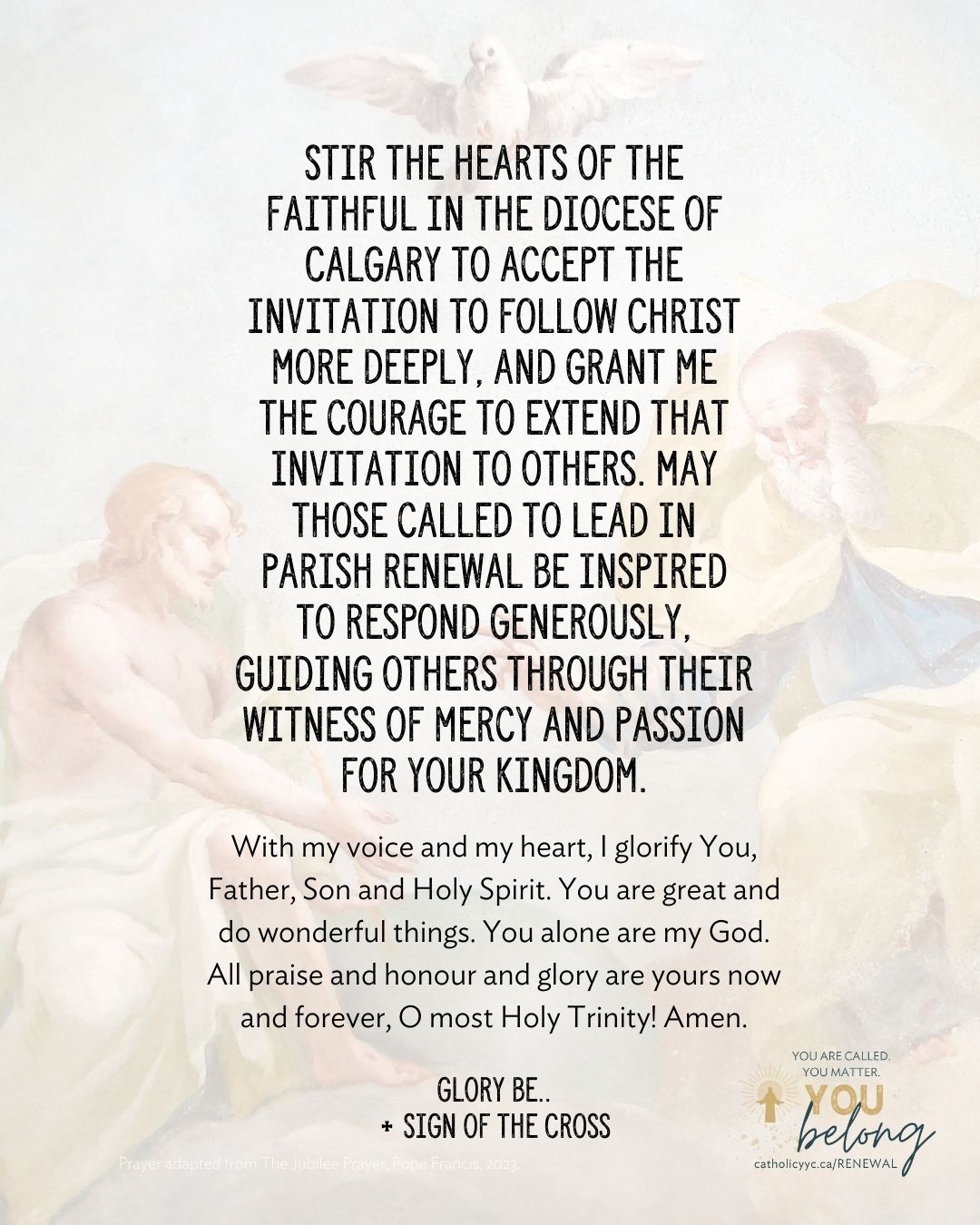
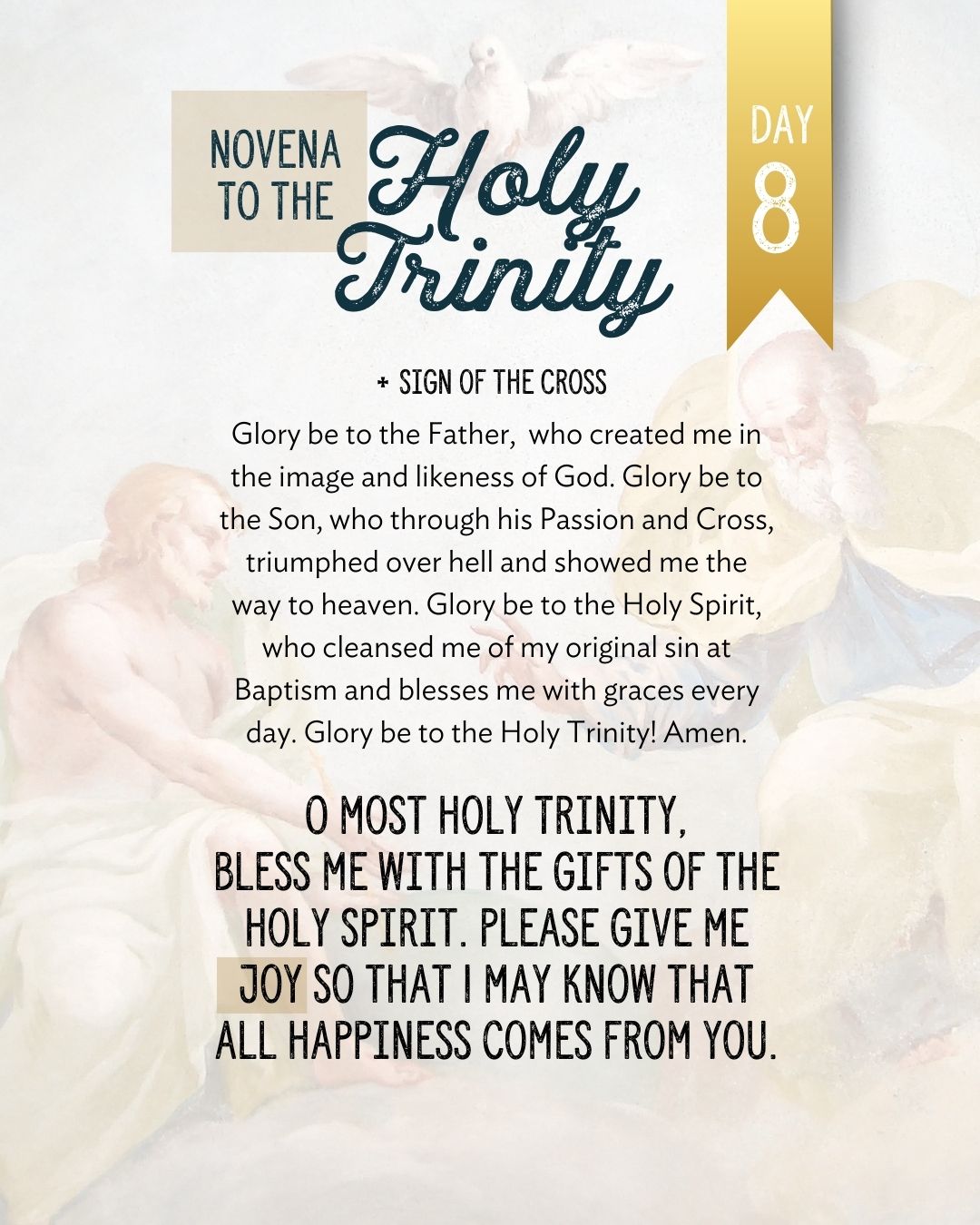
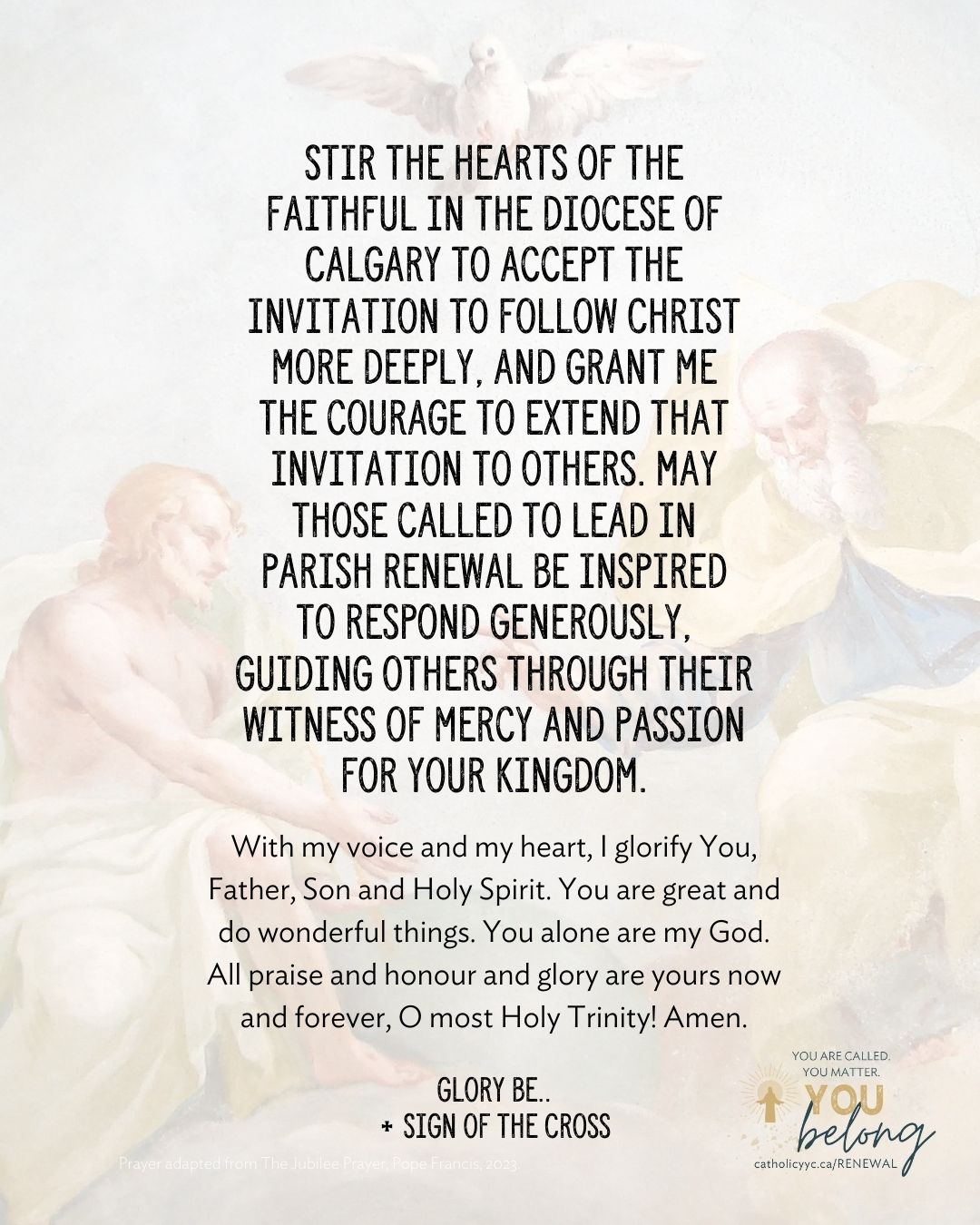
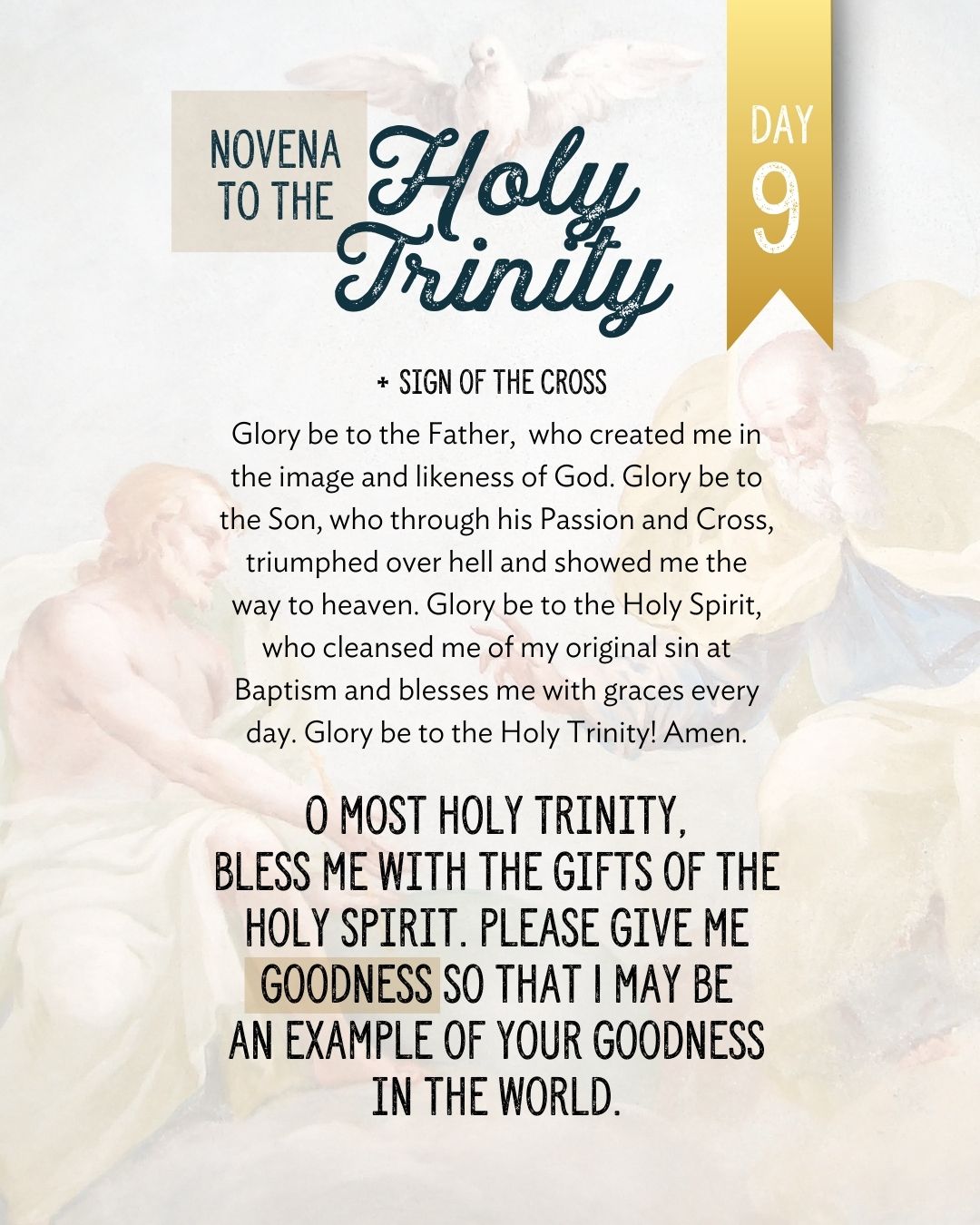
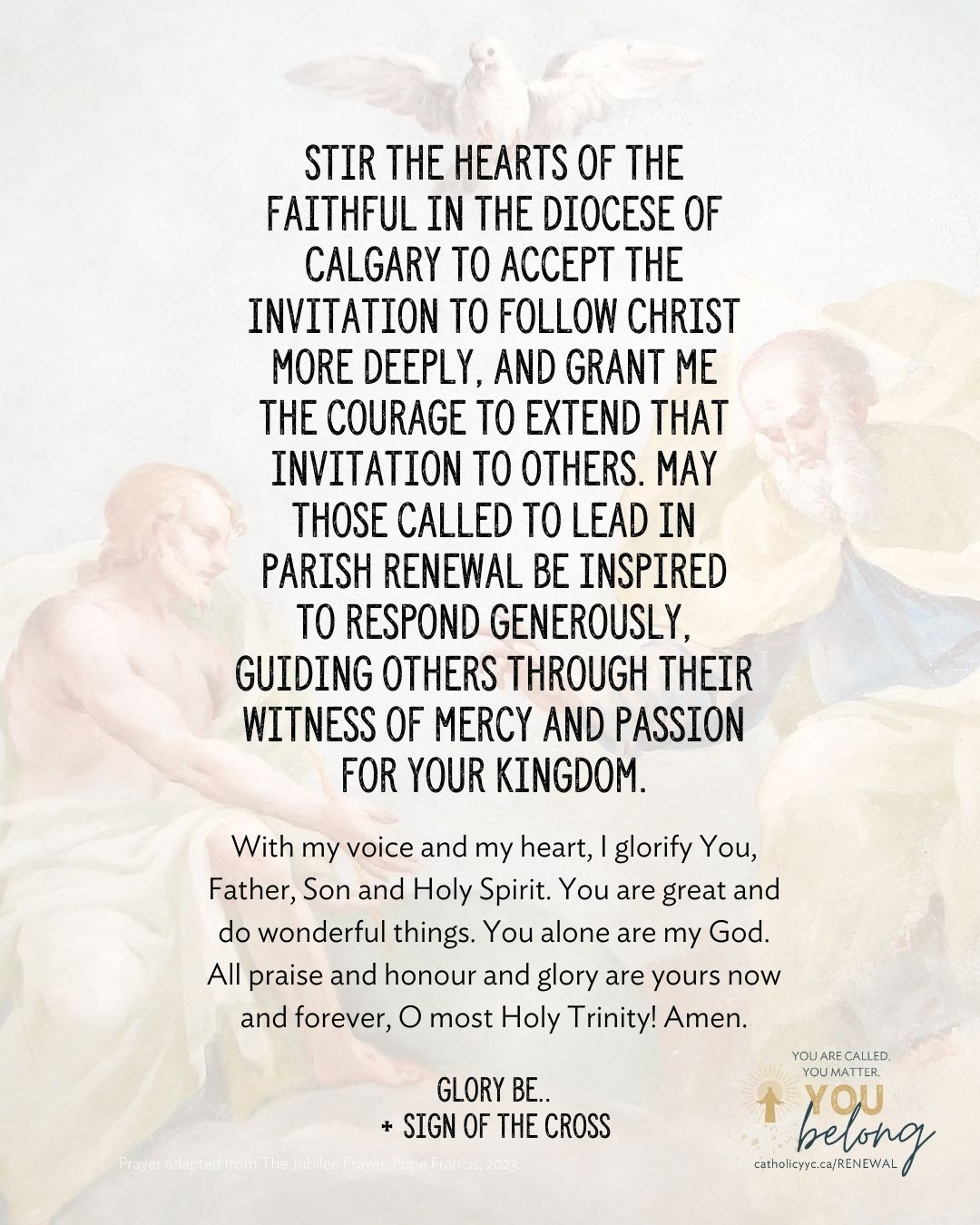
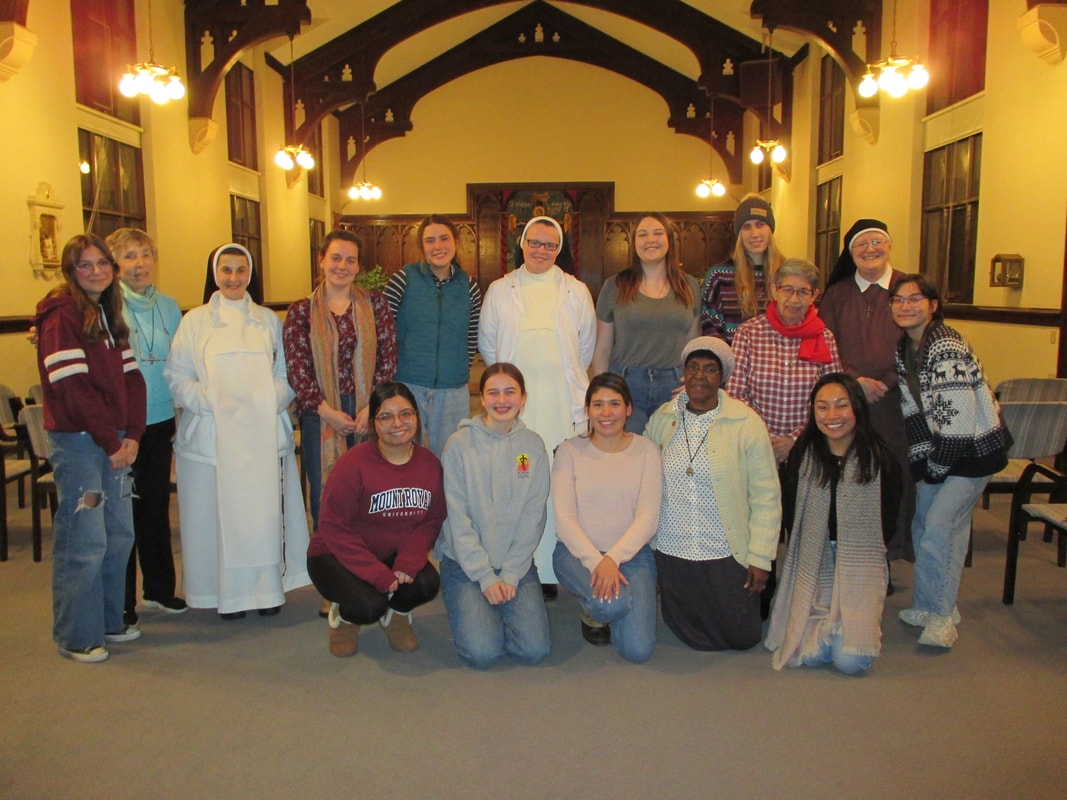
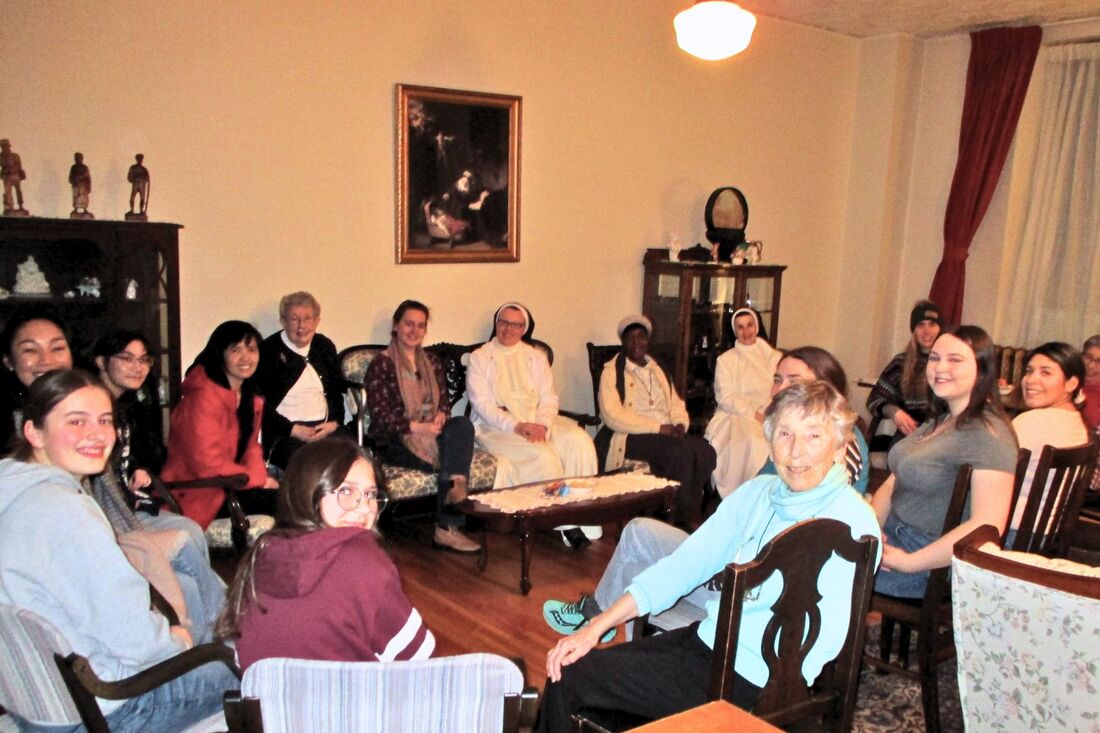
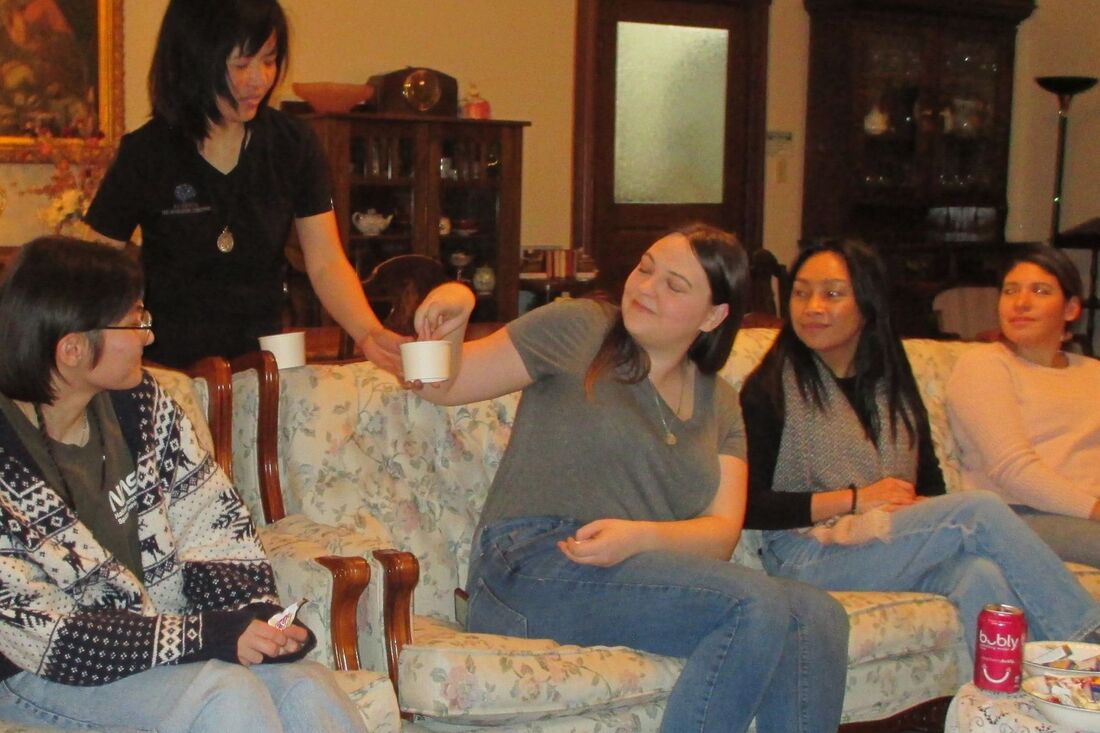
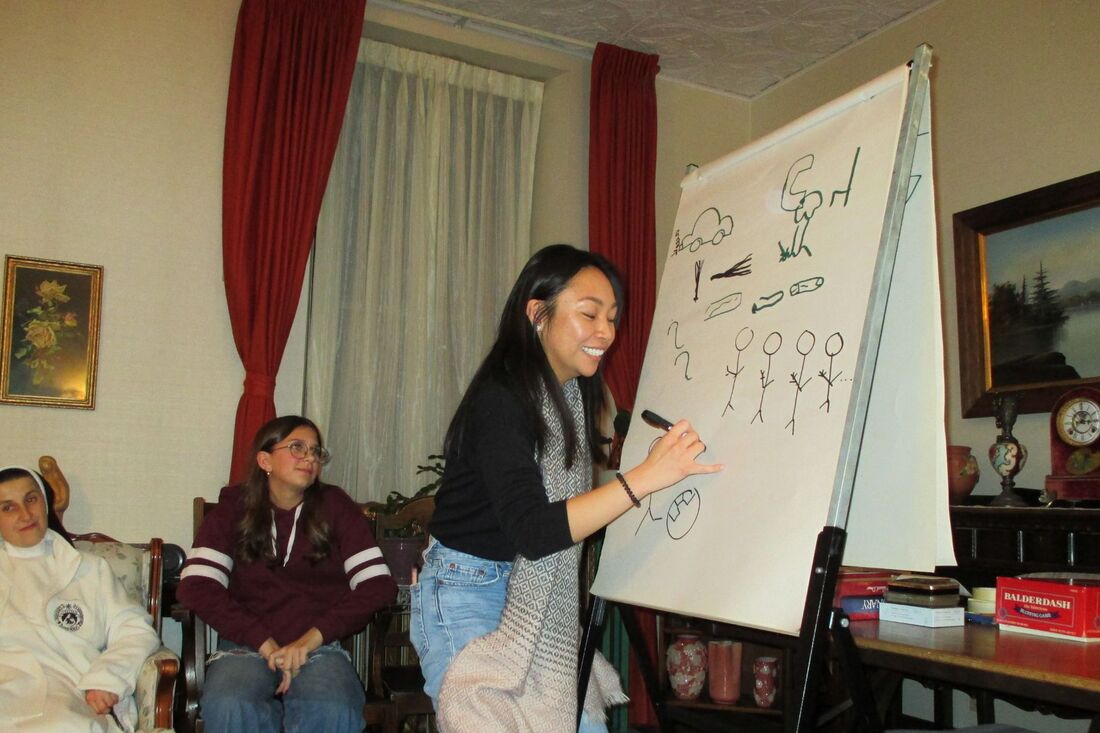
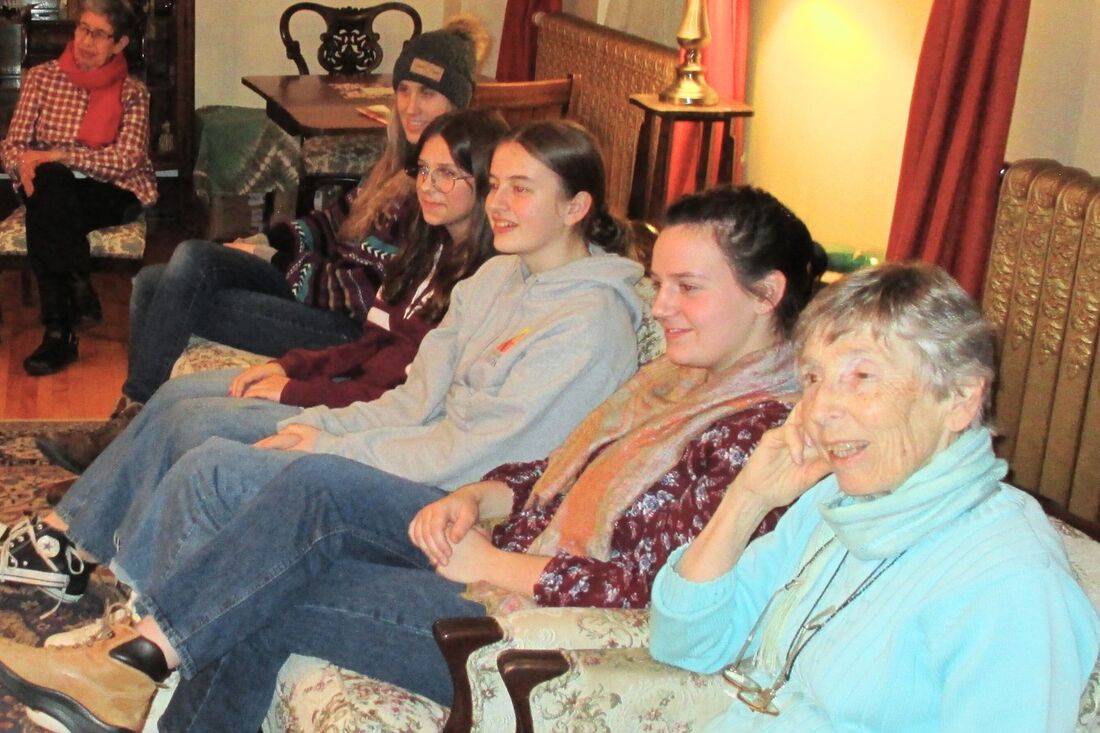
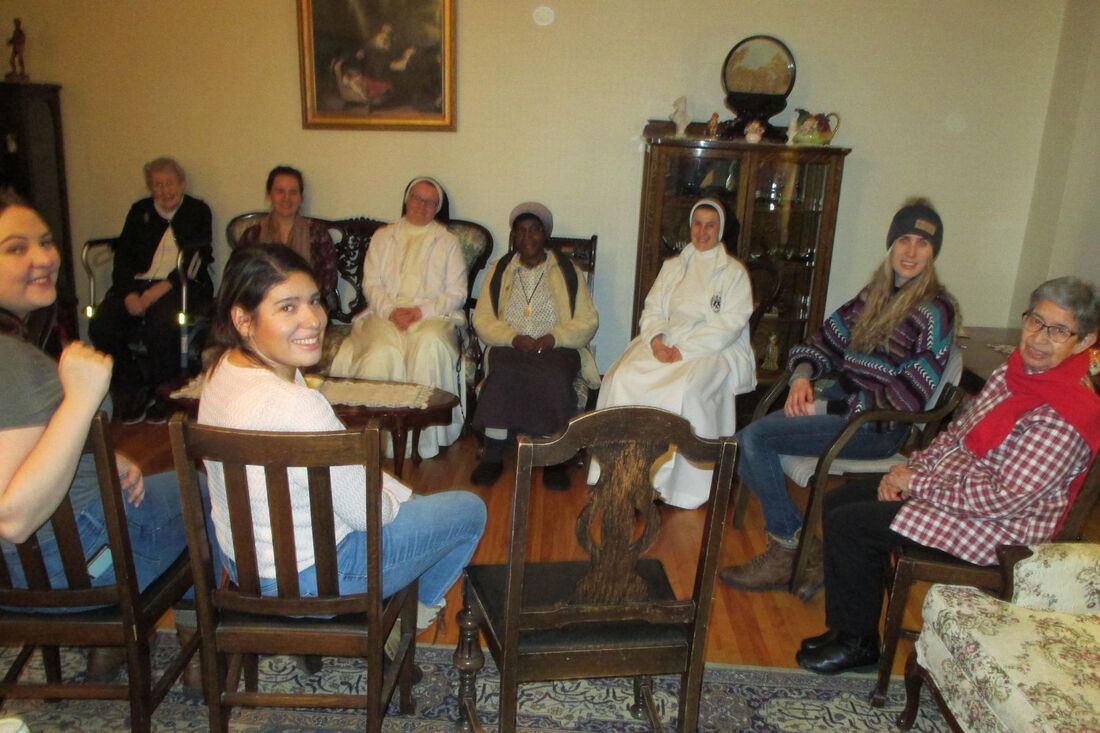
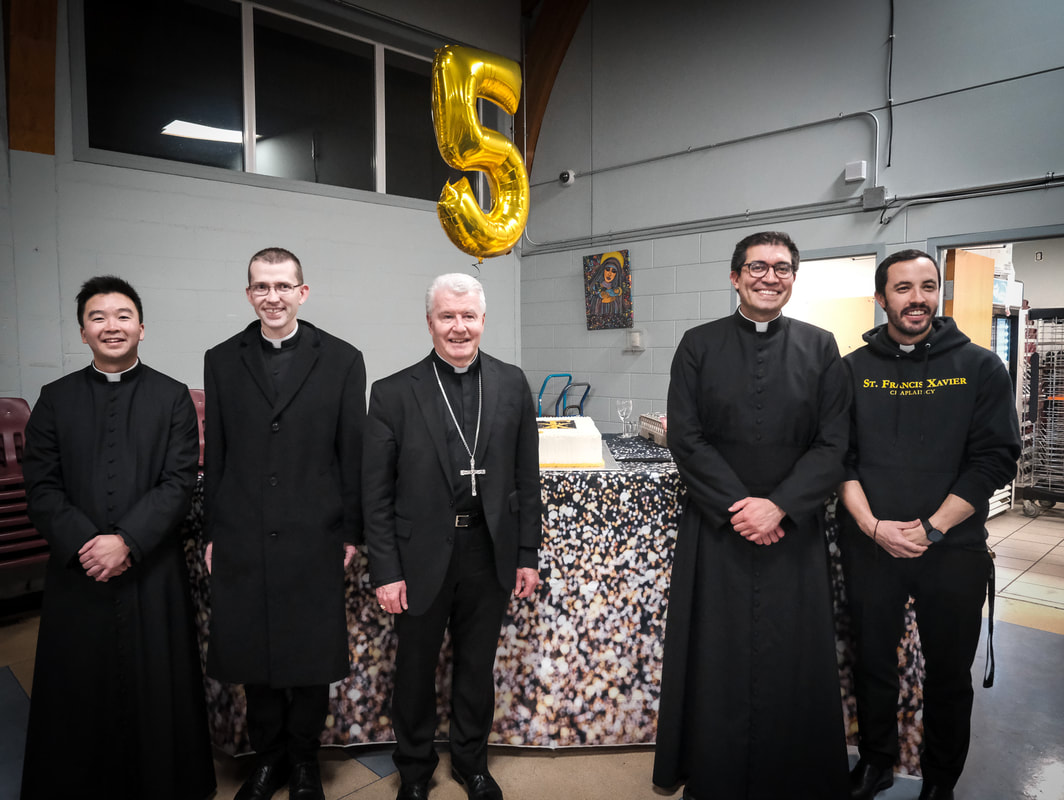
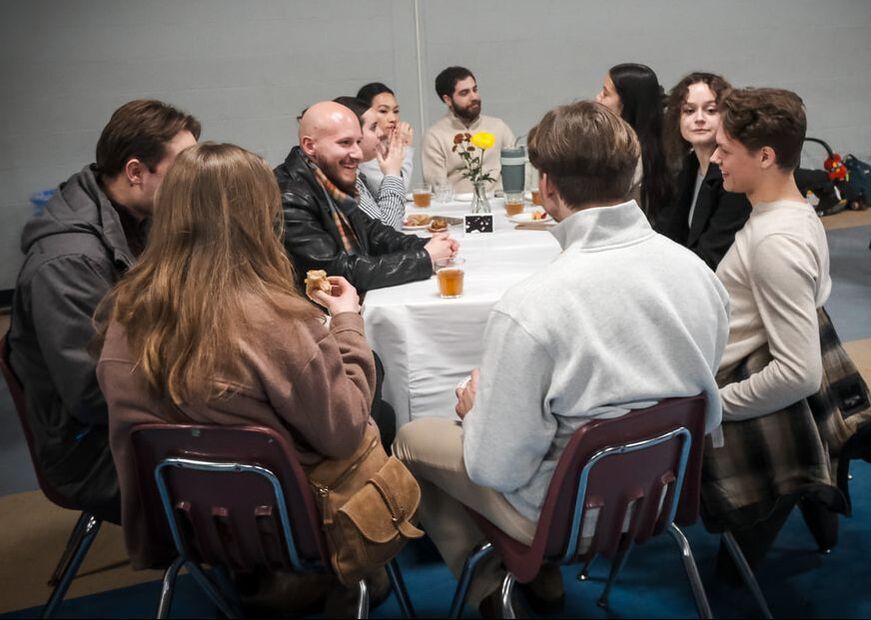

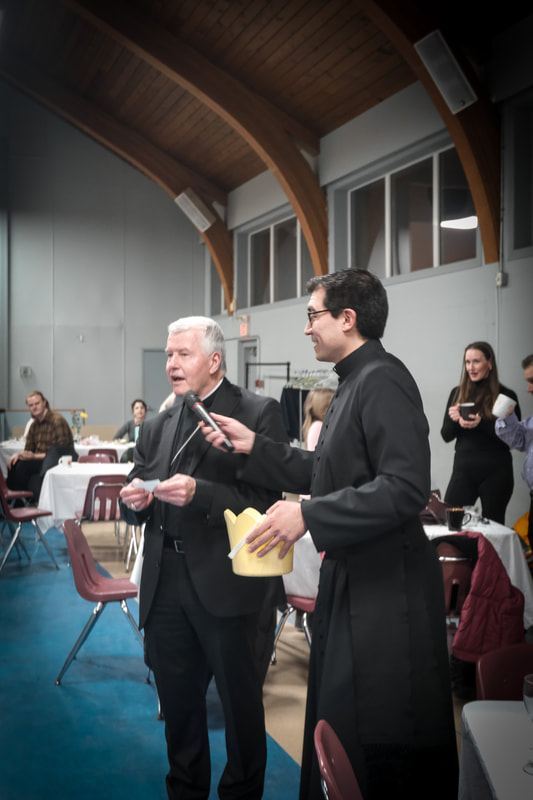
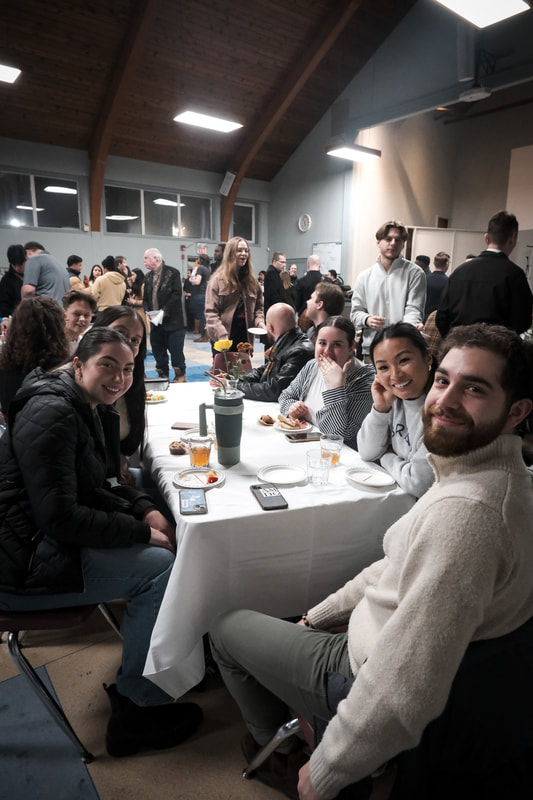
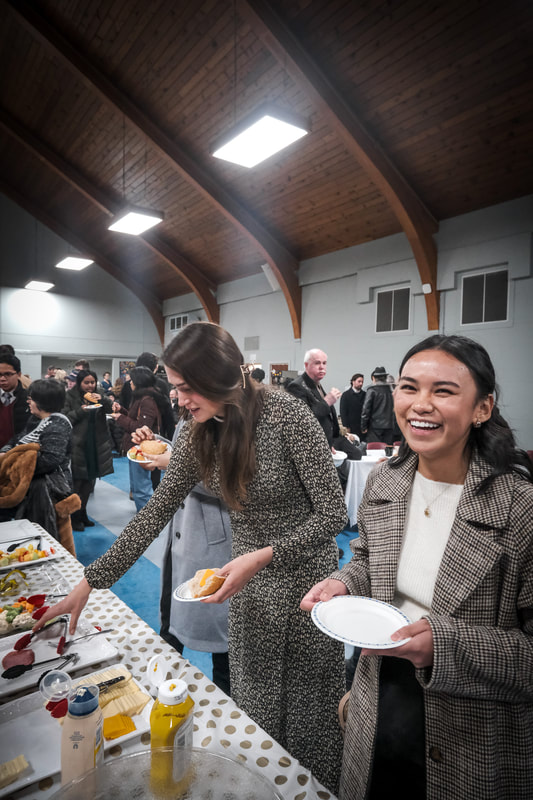
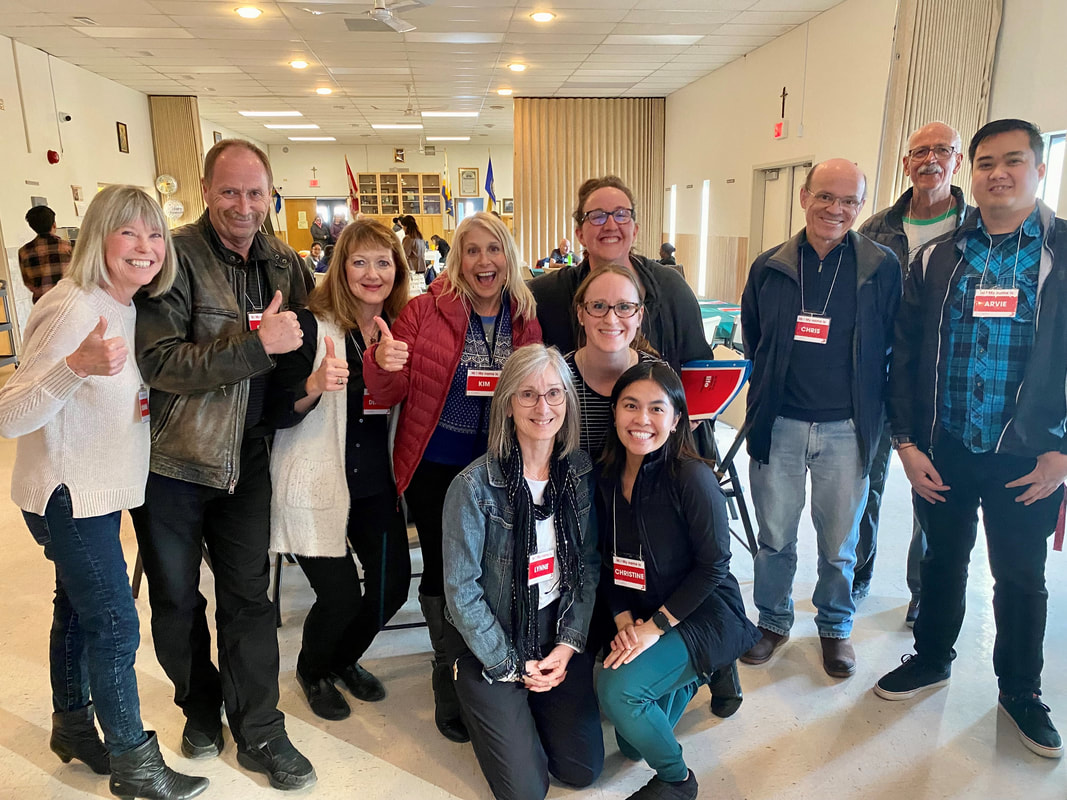
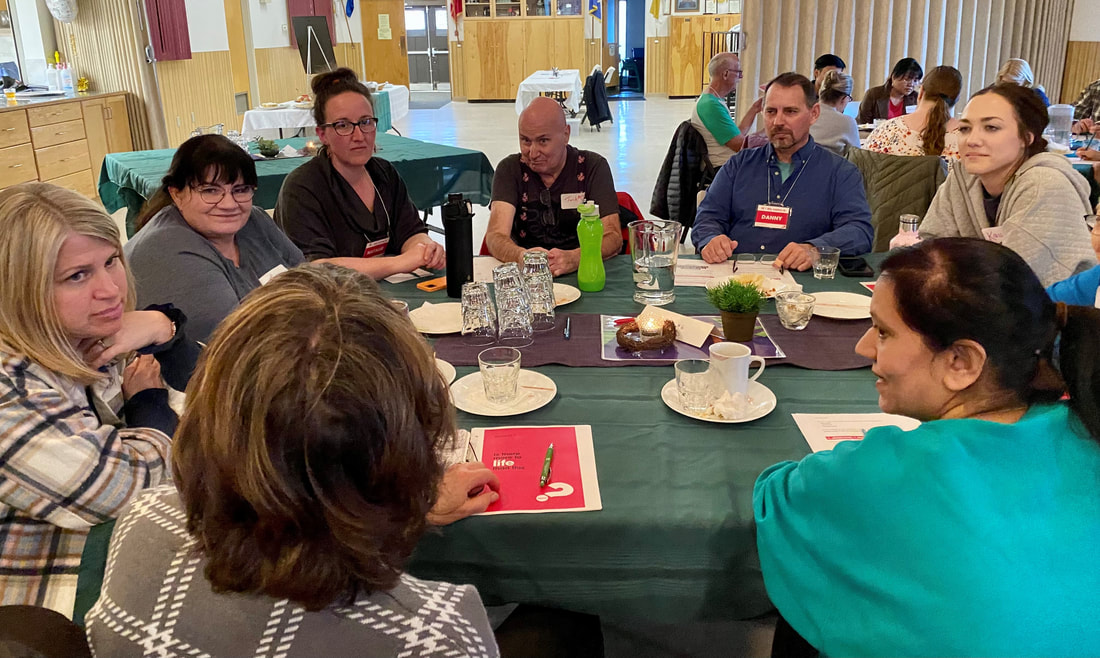
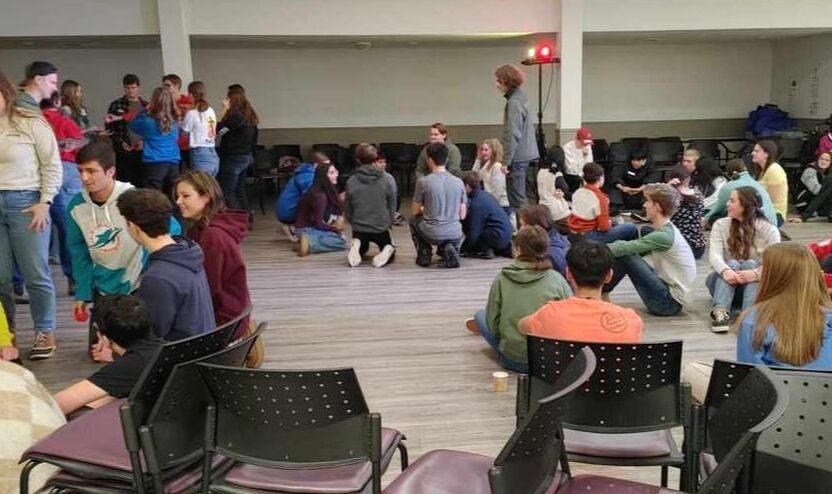
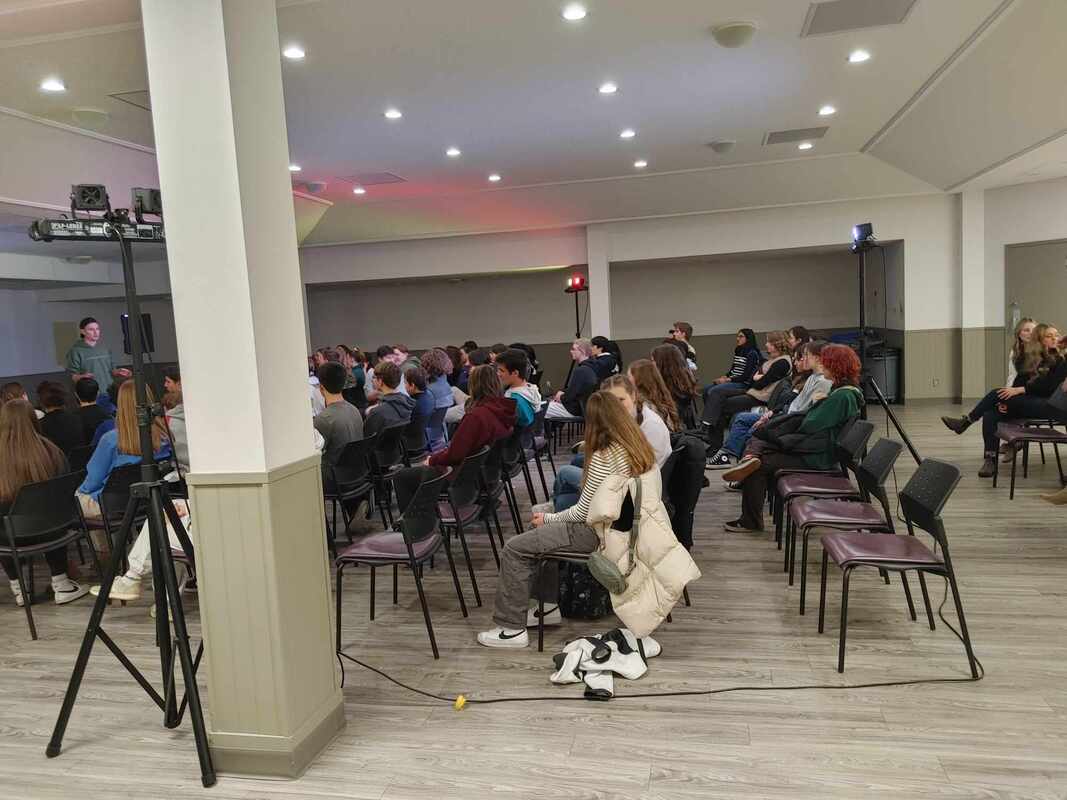
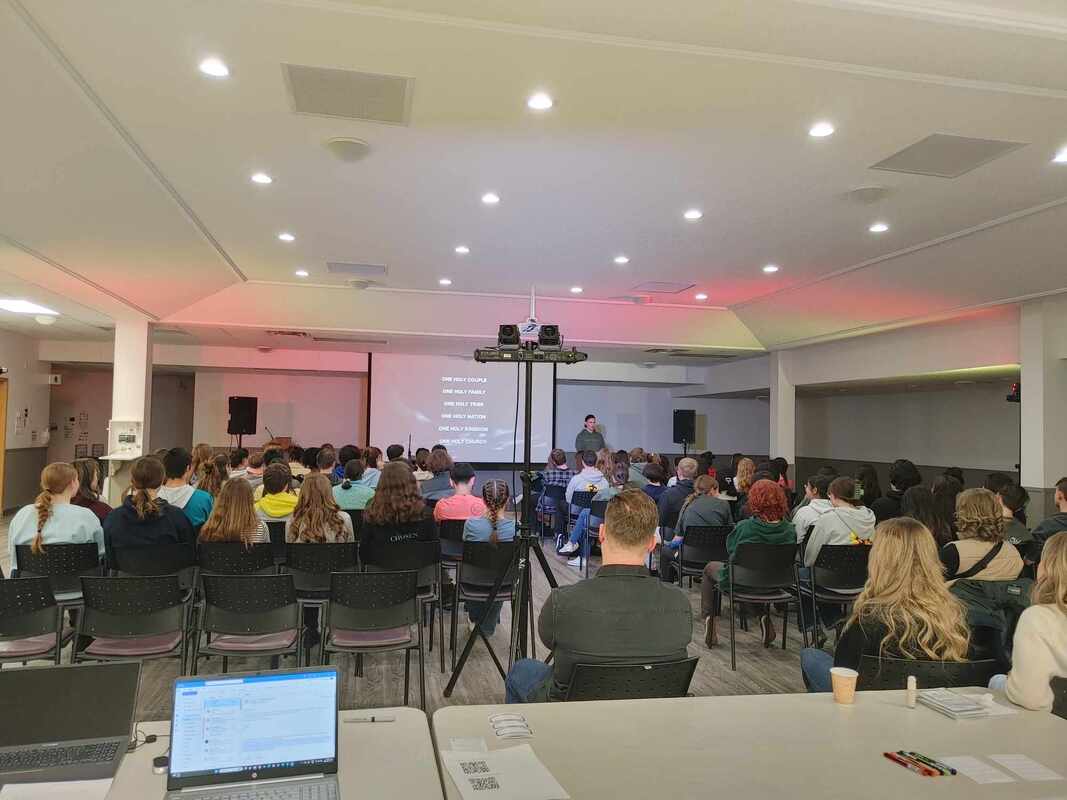
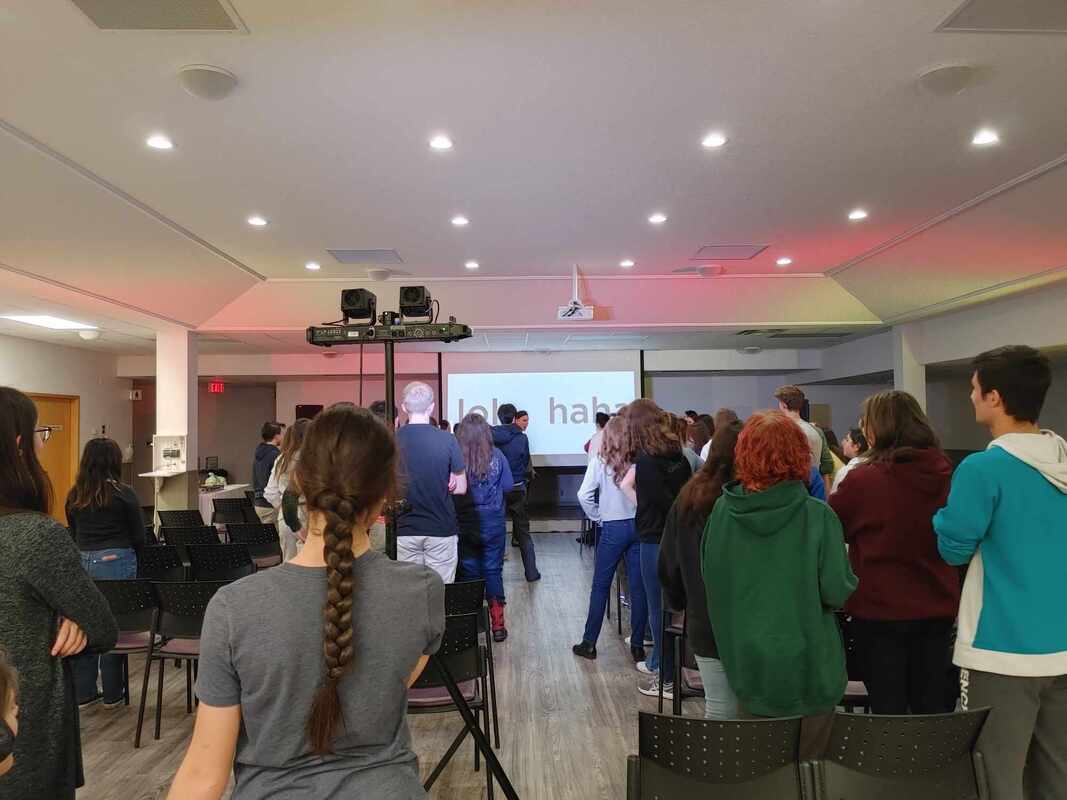
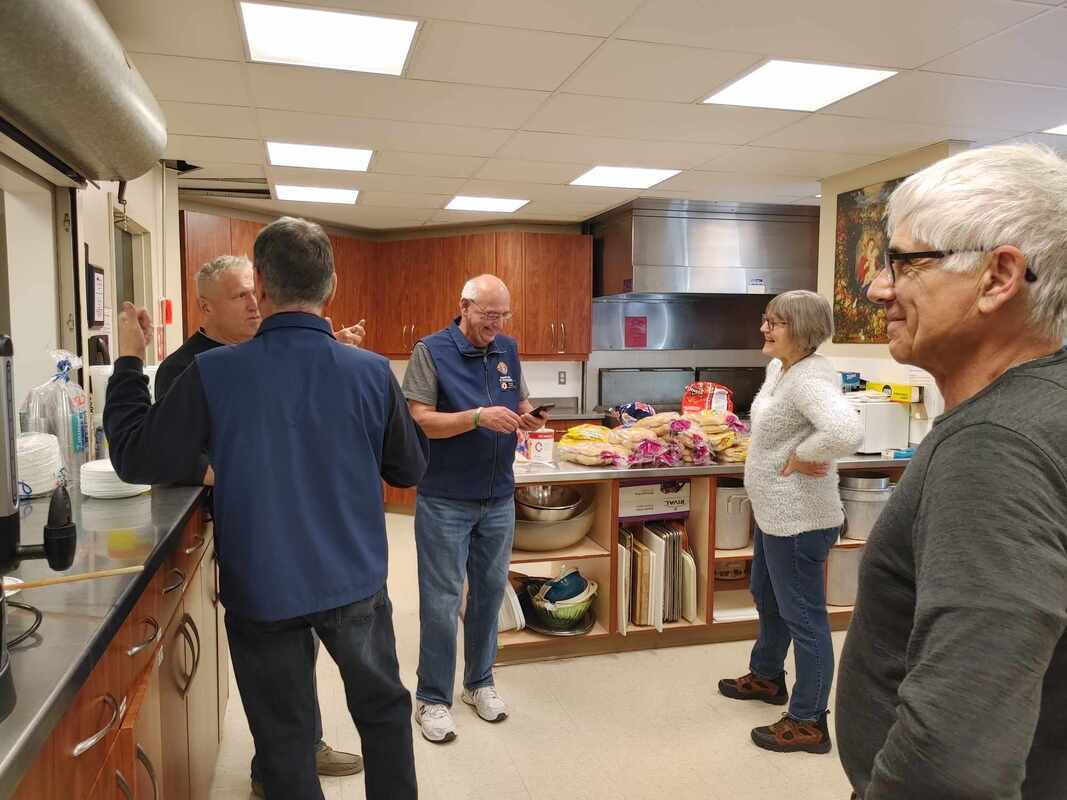
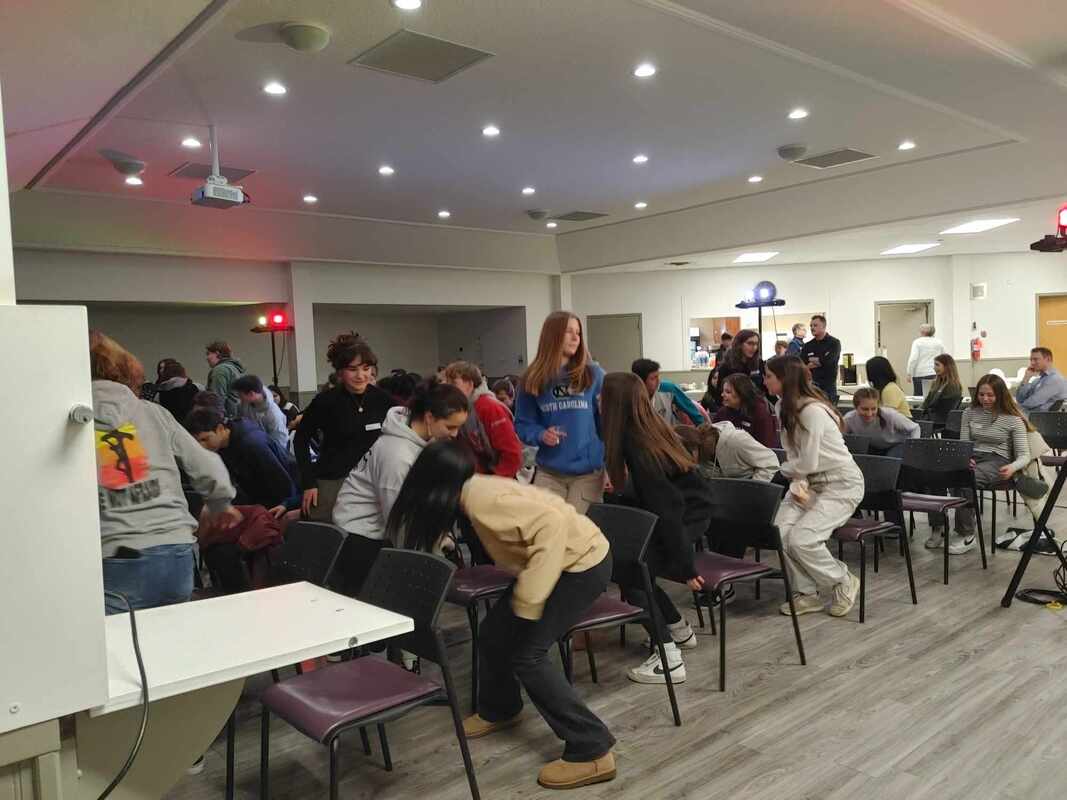
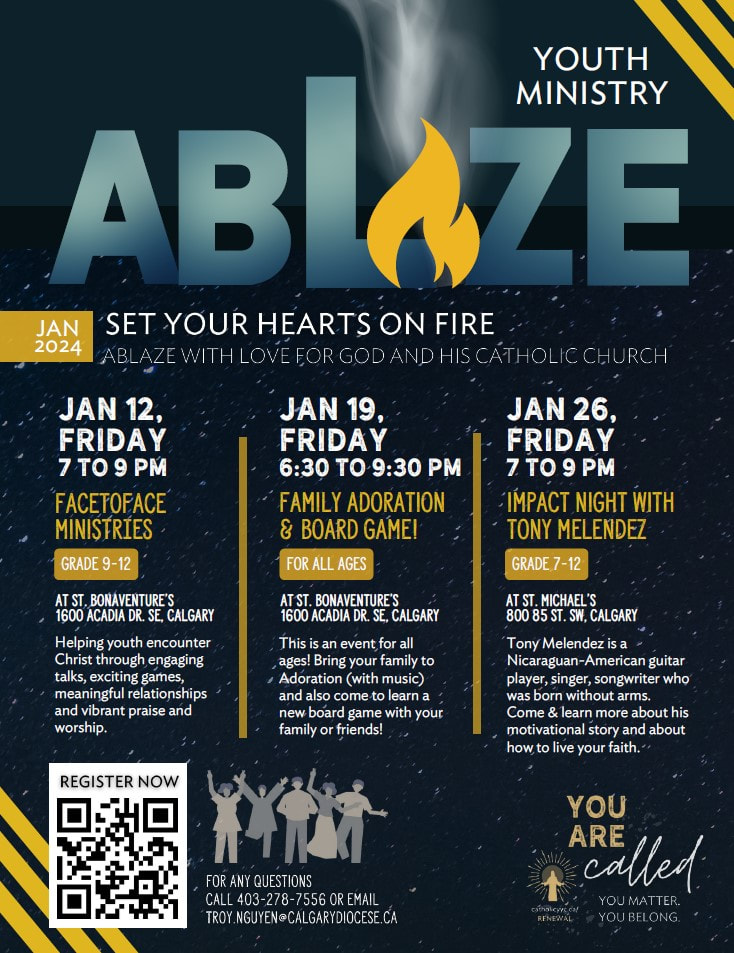
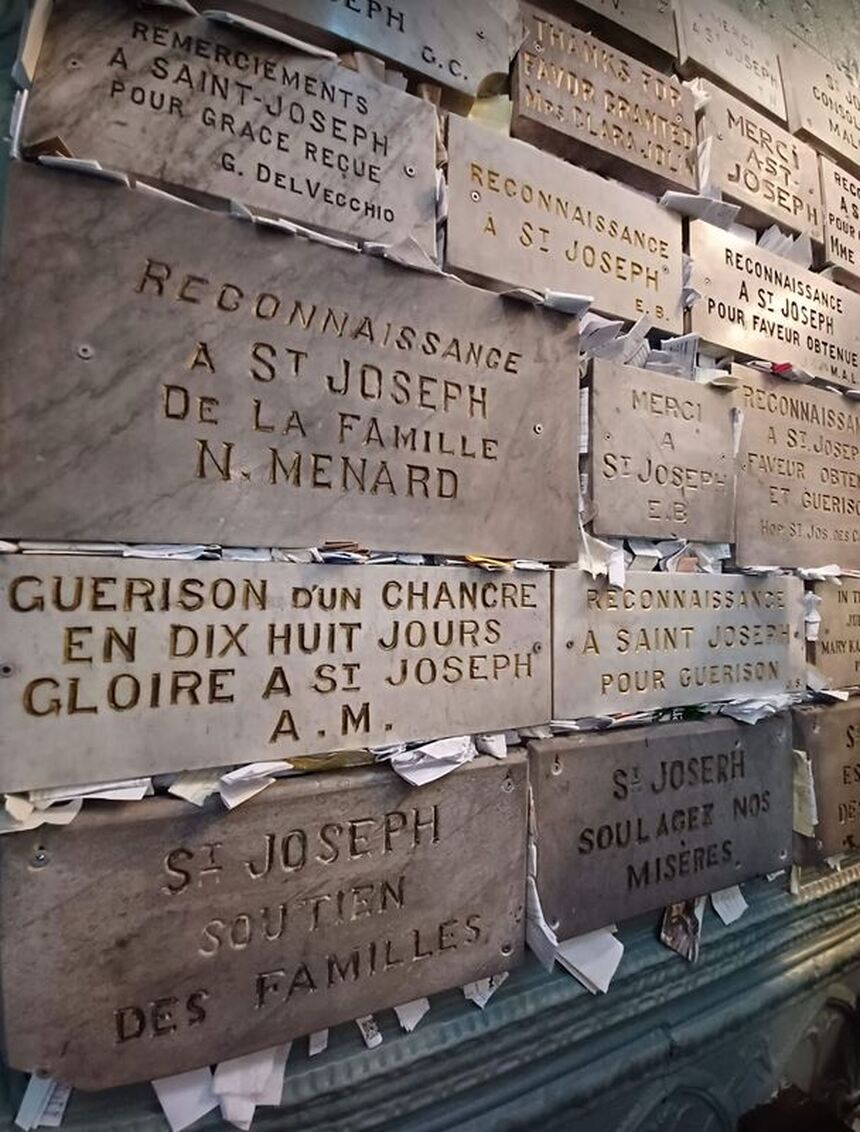
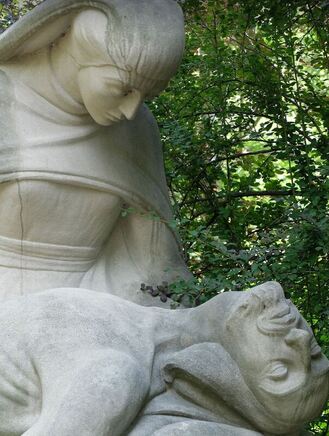
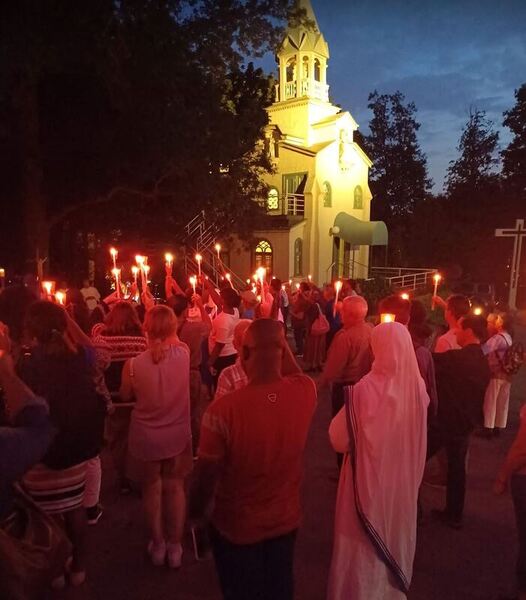
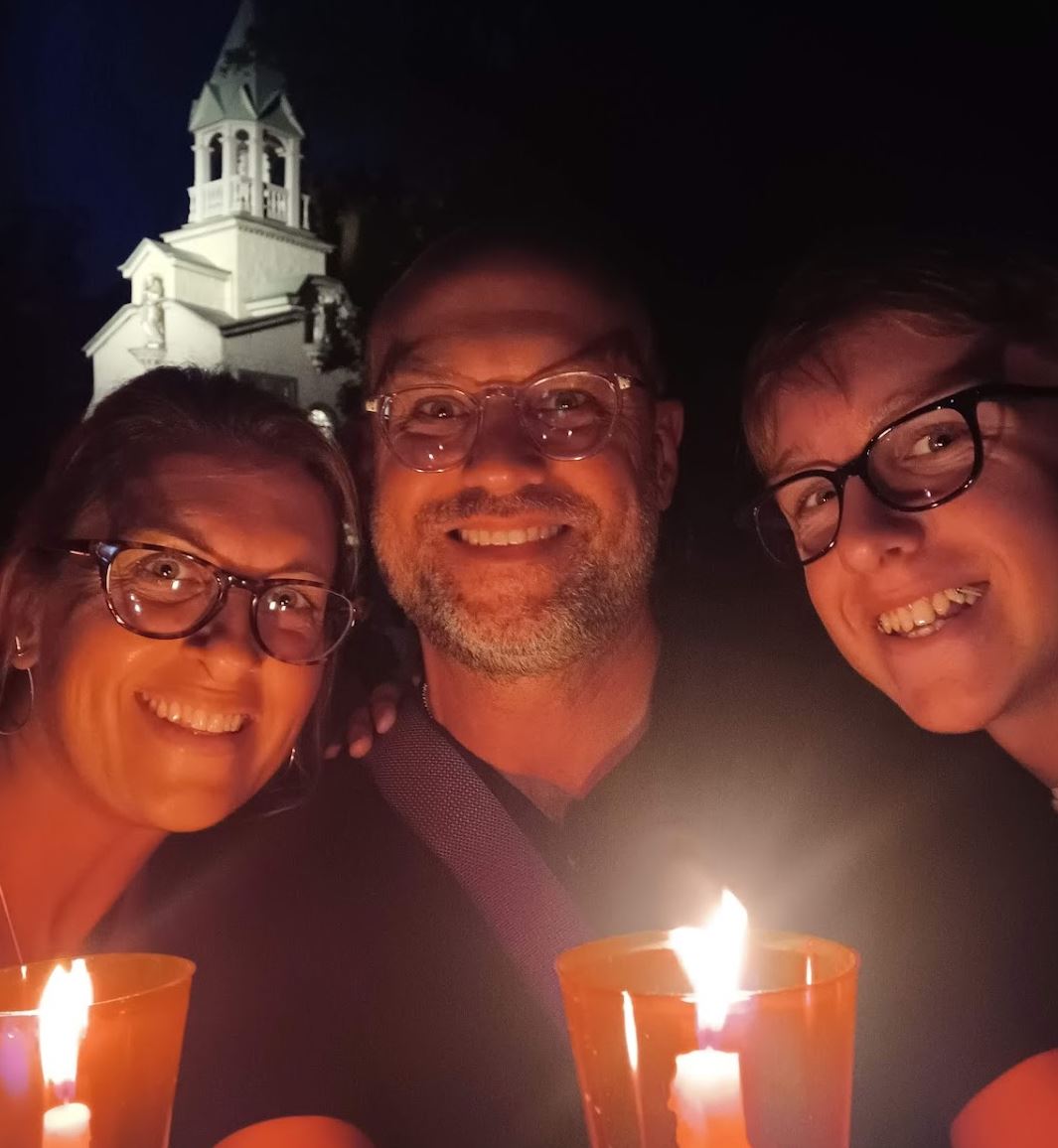
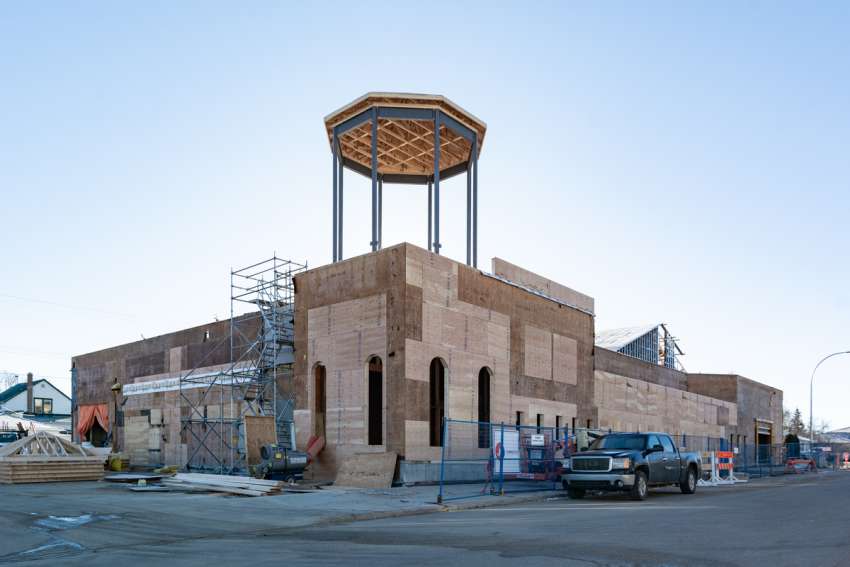
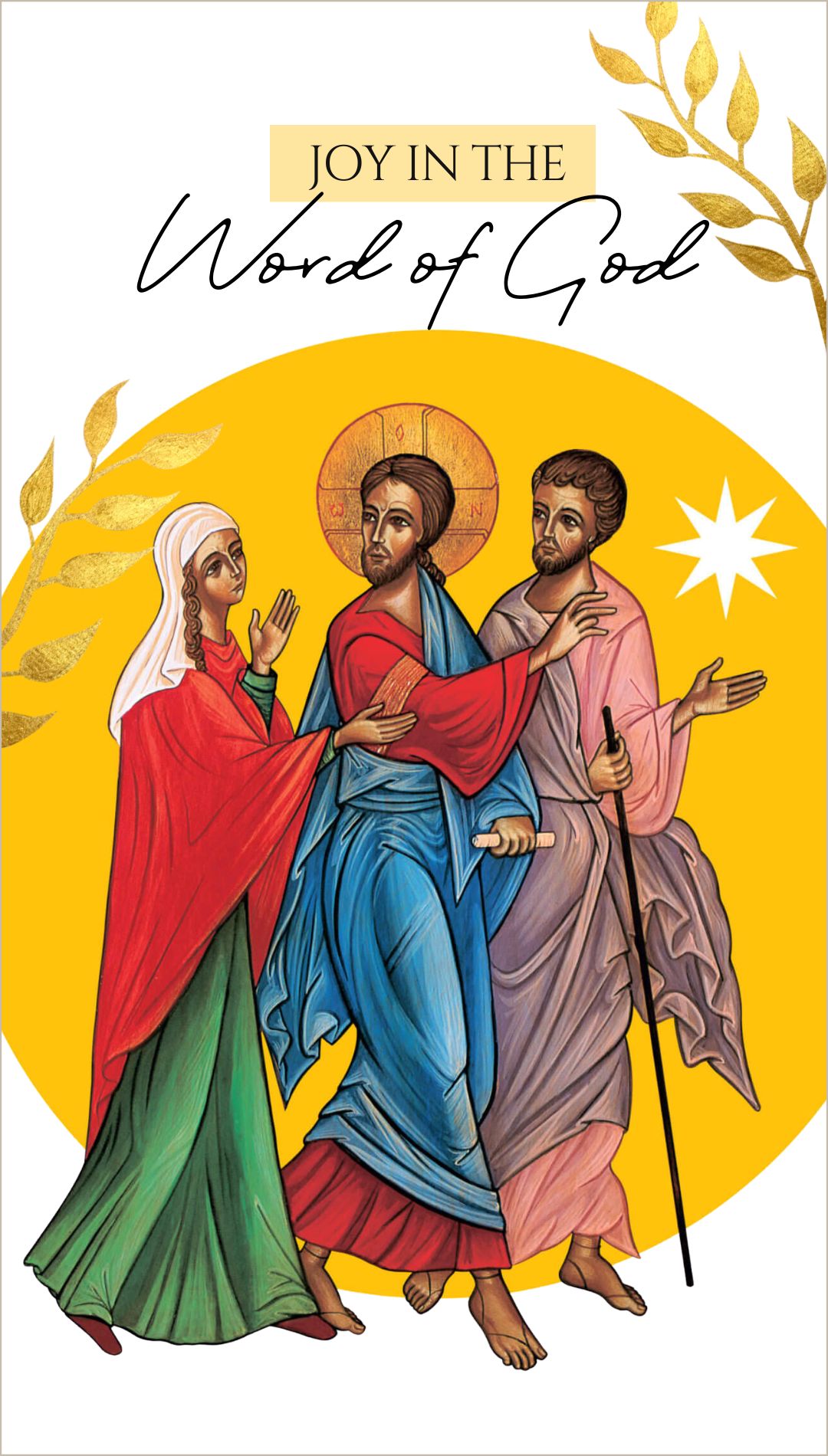
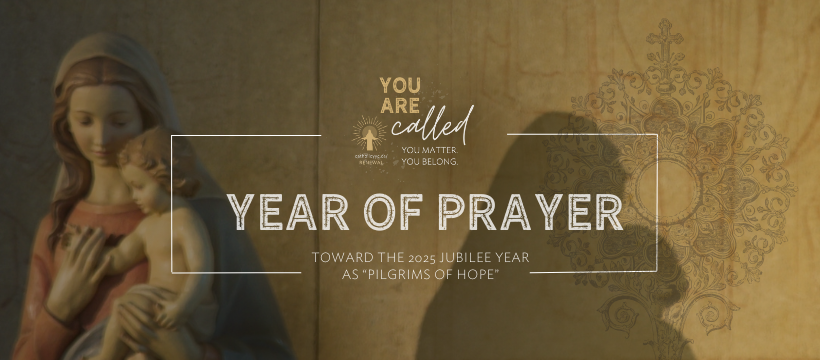

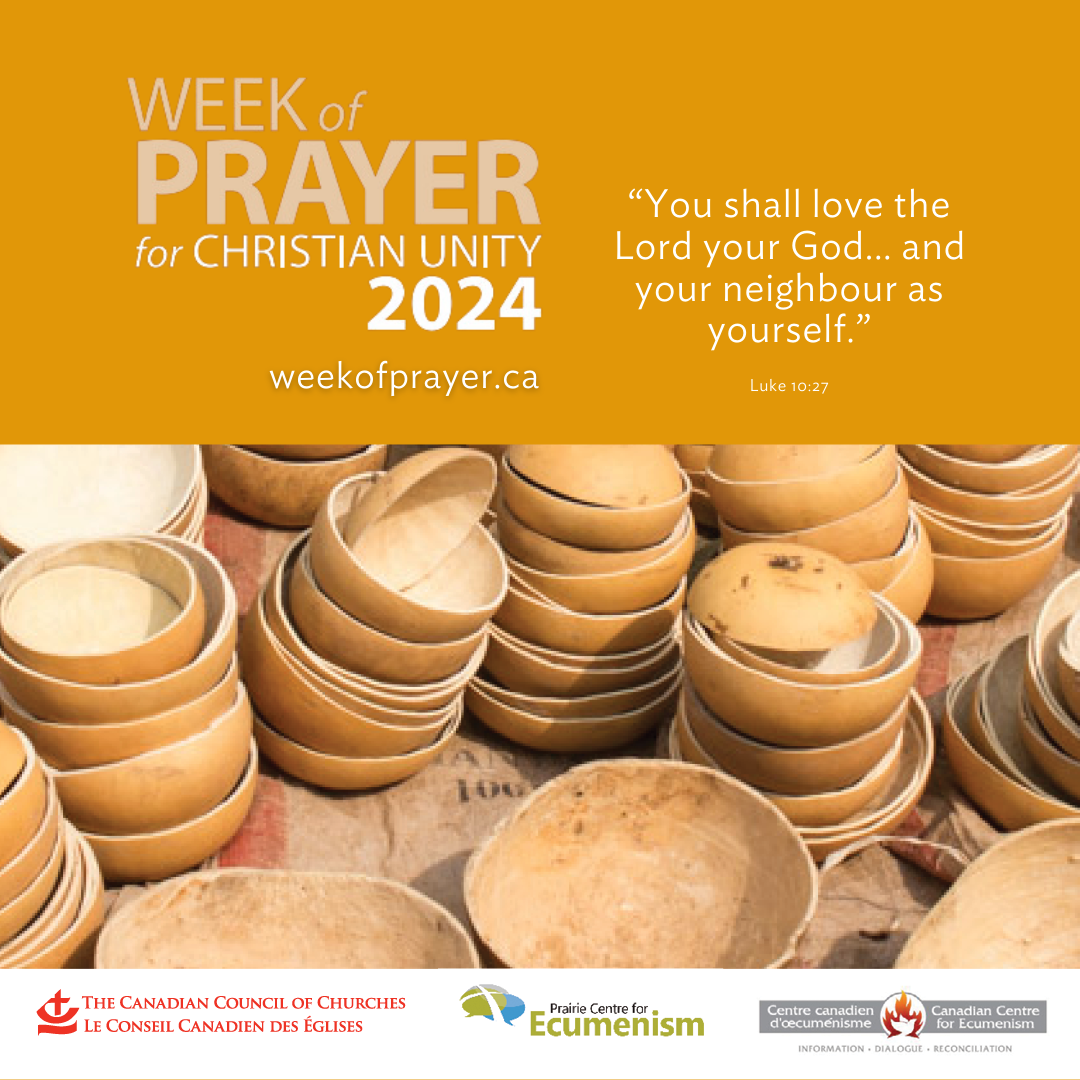
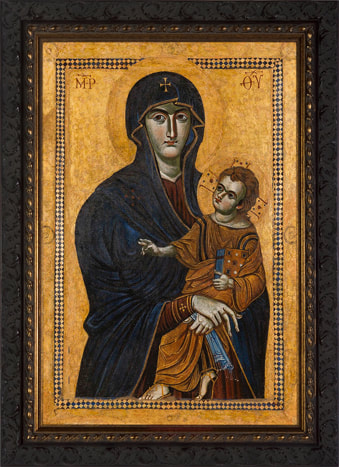

 RSS Feed
RSS Feed